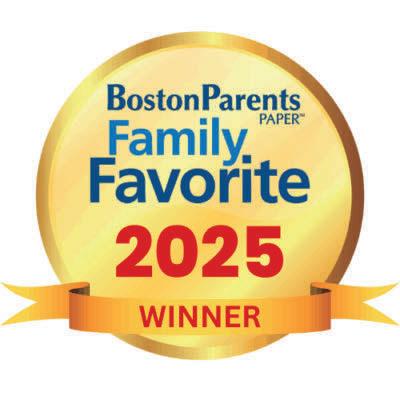


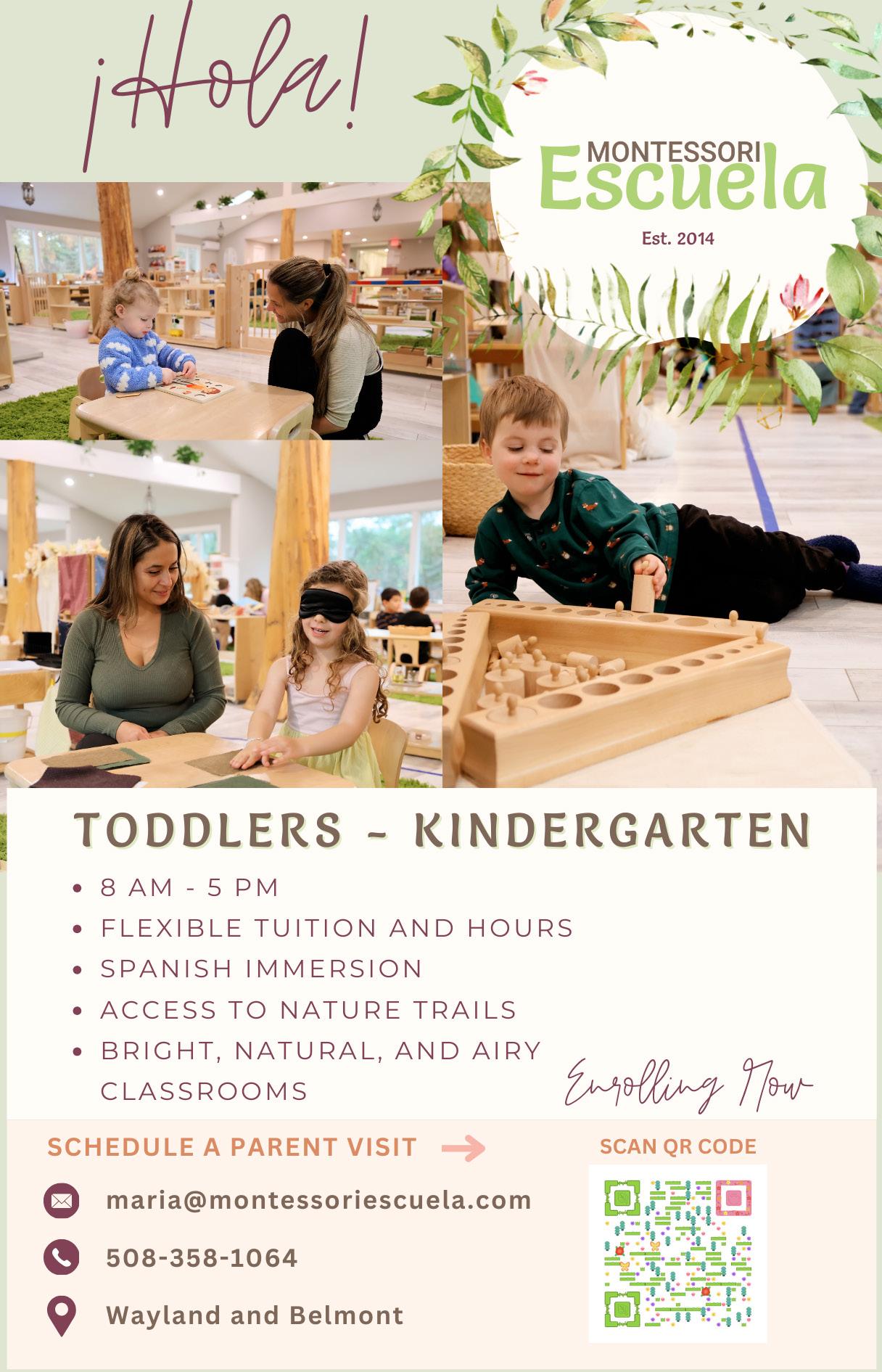
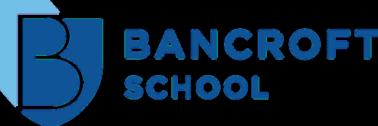
The #1 ranked PreK-12 independent day school in Central Massachusetts






The #1 ranked PreK-12 independent day school in Central Massachusetts
OCTOBER 5 | 1:00 PM - 3:00 PM
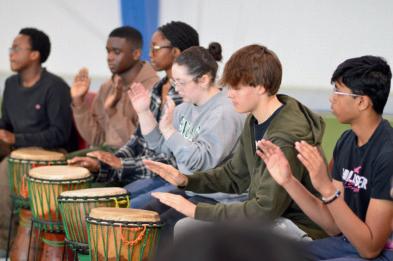
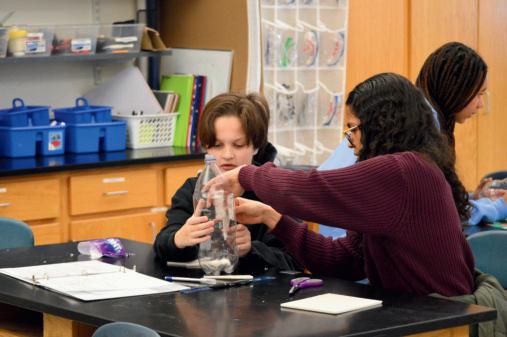
OCTOBER 28 | 6:00 PM - 8:00 PM

Discover the Bancroft School difference. Our programs ignite curiosity, build strong foundations, and challenge every student to reach their full potential, supported by rigorous academics, competitive athletics, and diverse extracurricular opportunities. At Bancroft, students grow, achieve, and lead with confidence on campus and beyond.



















































































Many parents feel that their children will thrive better in what they believe is a smaller, safer environment with more room for personal attention. And while public schools must follow a curriculum heavily influenced by state standards, private schools have more freedom to customize lessons to students’ individual ways of learning.
Private schools can also point to low studentteacher ratios, freedom from state standards and testing, and lots of extras like music, foreign languages, and art that are underfunded or nonexistent in public schools. Rest assured, promise school experts, there is a school out there to suit every child.
There are two primary sorts of private schools—independent schools and parochial schools.
Independent schools are defined as nonprofit private schools with their own governing board of trustees. While most people commonly refer to independent schools as private, lumping them in with parochial and for profit schools, they are distinct because they are nonprofit and self-governing.
Private schools can point to low studentteacher ratios, freedom from state standards and testing, and lots of extras like music, foreign languages, and art that are underfunded or nonexistent in public schools.
Parochial schools, where tuition is typically one-third that of independent schools, offer traditional instruction and have solid reputations. Families who are “in-parish,” that is, who live within the schools’ official parish boundaries or volunteer and participate regularly in the parish, get first priority. Otherwise, the application procedures are similar to independent schools.
When considering private school education, think about these benefits:
Independent schools nurture intellectual curiosity, stimulate personal growth, and
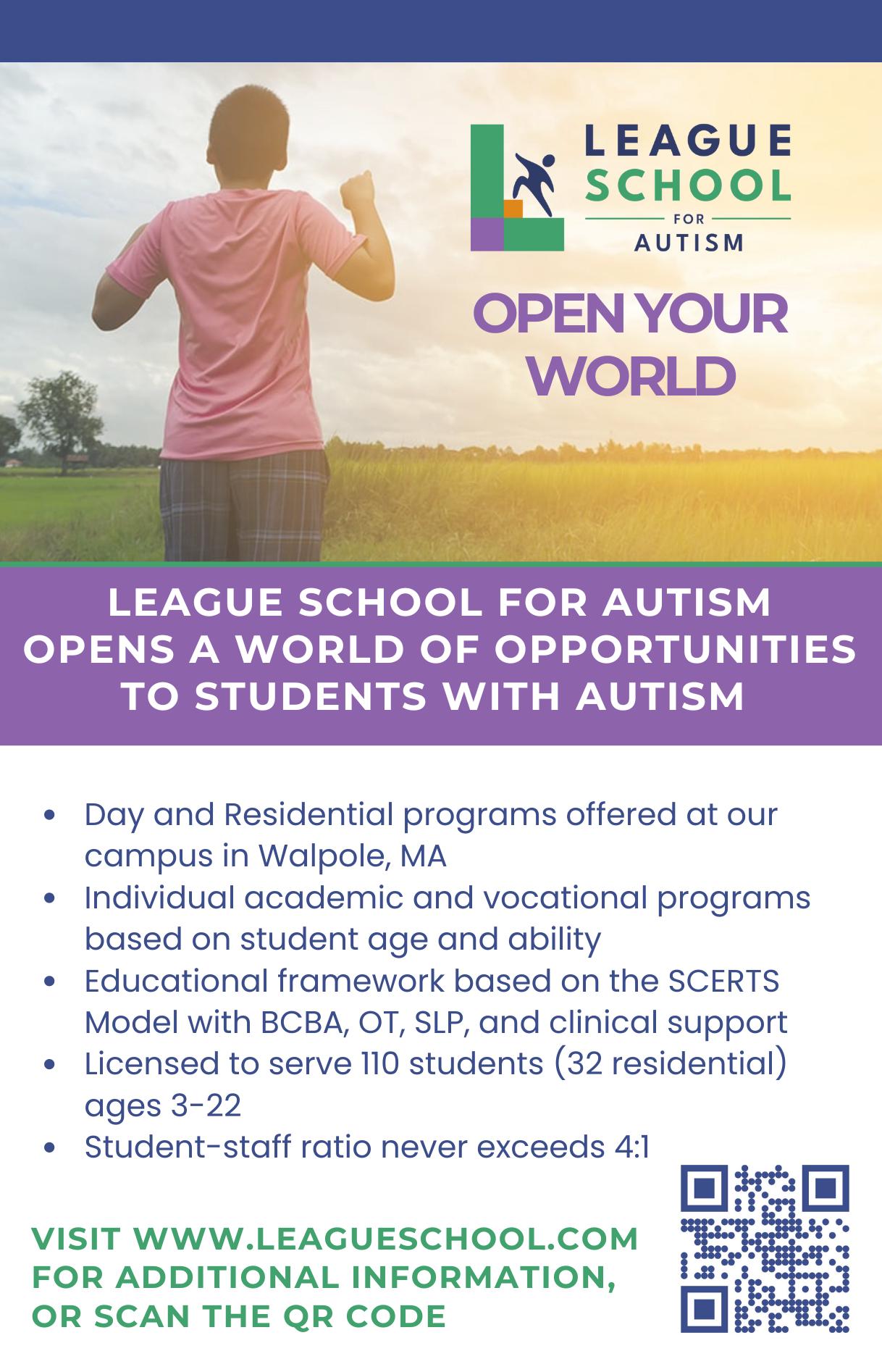
encourage critical thinking. A larger percentage of students at independent schools are enrolled in advanced courses than in public schools.
Small classes and individual attention
Independent schools have low studentteacher ratios that encourage close connections with students. The median ratio in schools that are members of the National Association of Independent Schools in 2024–2025 was 8.2 students to 1 teacher.
Excellent teachers
Educators usually teach in their areas of expertise and are passionate about what they do. With more autonomy within the classroom, teachers are able to develop a full understanding of how each student learns and what motivates and inspires each individually.
Greater likelihood of a student completing a bachelor’s or graduate degree education.
Independent schools nurture not just students’
intellectual ability and curiosity but also their personal and social growth and civic conscience. Opportunities extend well beyond the classroom to athletic competitions, artistic pursuits, and school leadership experiences.
Inclusiveness
Schools maintain diverse and vibrant student communities and welcome and respect each family. In 2024–25, non-white students were 34.1 percent of total independent school enrollment nationally.
A community of parents who actively participate in their children’s education
Independent schools promote regular communication among students, parents, and teachers to ensure everyone is working toward the same goals for the student.
The opportunity to choose a school with a mission
You can select a school whose philosophy, values, and teaching approach is right for your child. •

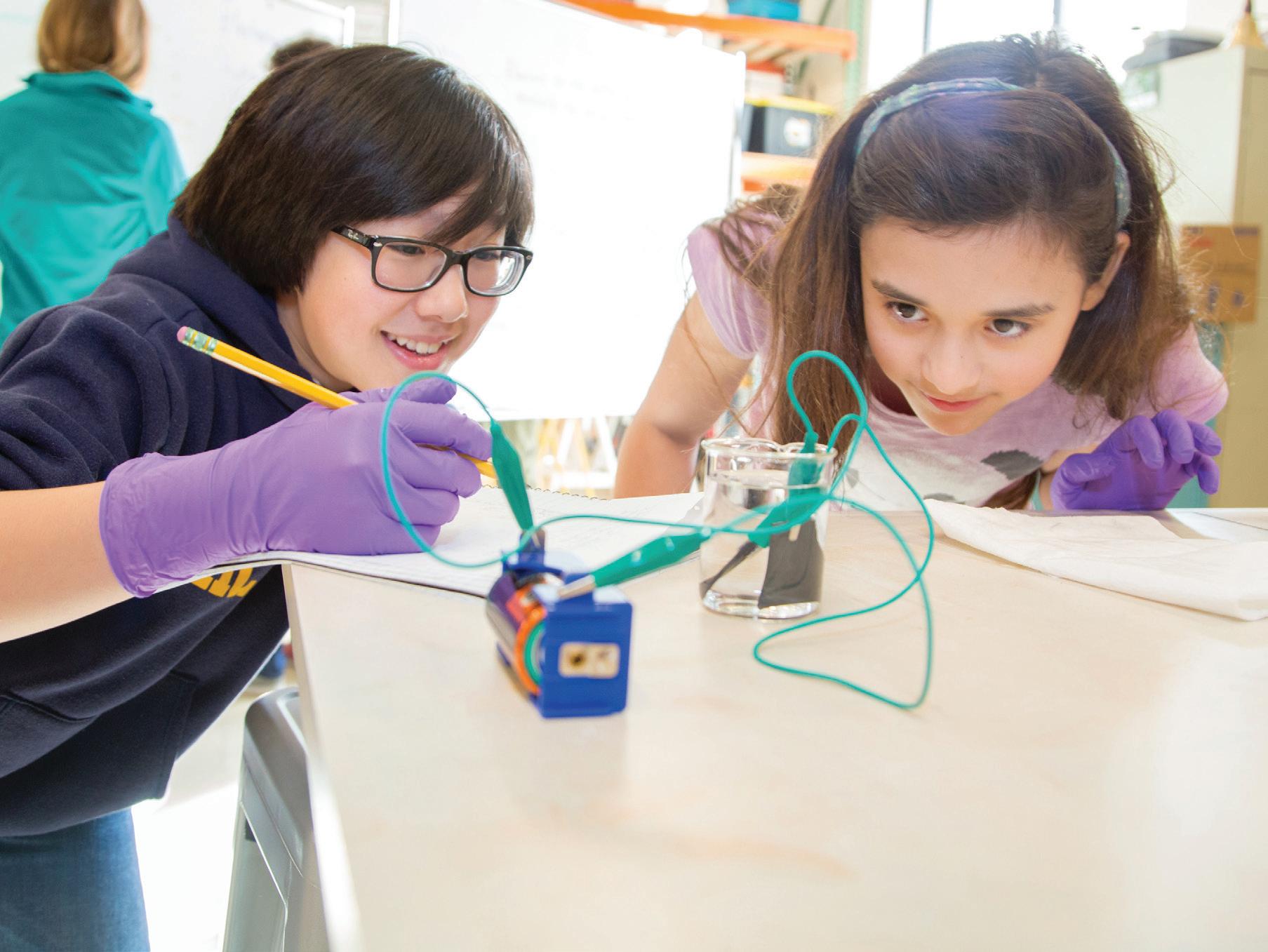
Acera is a K-9 school serving accelerated students in Greater Boston. We are committed to keeping your child’s curiosity alive through individualized learning pathways, purpose-filled projects, ability-based classes, and engaging electives that remove the ceiling of what is possible at school. Highly interesting and relevant work makes Acera students want to attend school every day.
Acera highlights include:
• Ability-based math classes
• Life sciences, architecture, engineering, game design, woodshop, theatre, music, and visual art
• 40+ electives to choose from for grades 6-8
• Mentor-supported passion projects
• Ski club
• After school enrichment
• February and April vacation camps
• Summer STEAM camps
Visit aceraschool.org to learn more or sign up for one of our monthly information sessions.
Because curious kids can’t wait.

Every school provides a unique educational experience, so how do you decide which schools will be a good fit for your child? Think about:
• SCHOOL TYPE - Do you want a day school or boarding school? Coeducational or singlesex? If you’re not sure, search for articles and opinions or talk to an educational consultant about which environment might be best for your student.
• GRADE RANGE - Do you want a school that focuses on your child’s age range, or one that can serve your child through elementary, middle, and high school?
• LOCATION - Convenience matters, especially if you want your child to take part in school activities. Time the commute before and after school just to be sure.
• STUDENT BODY - Consider both average class size and total enrollment. A smaller population may mean fewer social opportunities, but more chances for your student to shine. Also consider the diversity of the student body.
• EDUCATIONAL PHILOSOPHY - Most independent schools fall along a continuum between traditional and progressive, but what does that mean? How are classes taught? How are expectations conveyed? How are students tested? Ask to sit in on a few classes to see how the philosophy plays out.
• CURRICULUM - What courses are offered? Which are required and which are elective? In what order are math, science, and humanities courses taught? Is there an interdisciplinary emphasis, so that what students study in English meshes with what they’re learning in history? Does the curriculum fit your student’s learning needs?
• FACULTY - Examine the faculty list (online or in recruitment materials). Where did teachers go to college? How long have they been teaching? Do their degrees match with what they teach? Is there much turnover? In primary grades, how many teachers are in the classroom? Watch a class to see how teachers interact with students and engage them in the learning process.
• FACILITIES - In addition to the overall condition of the school, look at the facilities your child may use. Is the art department well-stocked? Are sports facilities wellequipped? Are computers up to date? How extensive is the library/language lab?
• SPECIAL PROGRAMS AND EXTRACURRICULARS - Does the school provide programs that fit your student’s needs and interests? Consider academic support, language programs, arts, athletics, leadership opportunities, travel oppportunties and service programs. Is the school a place where your child can blossom? •
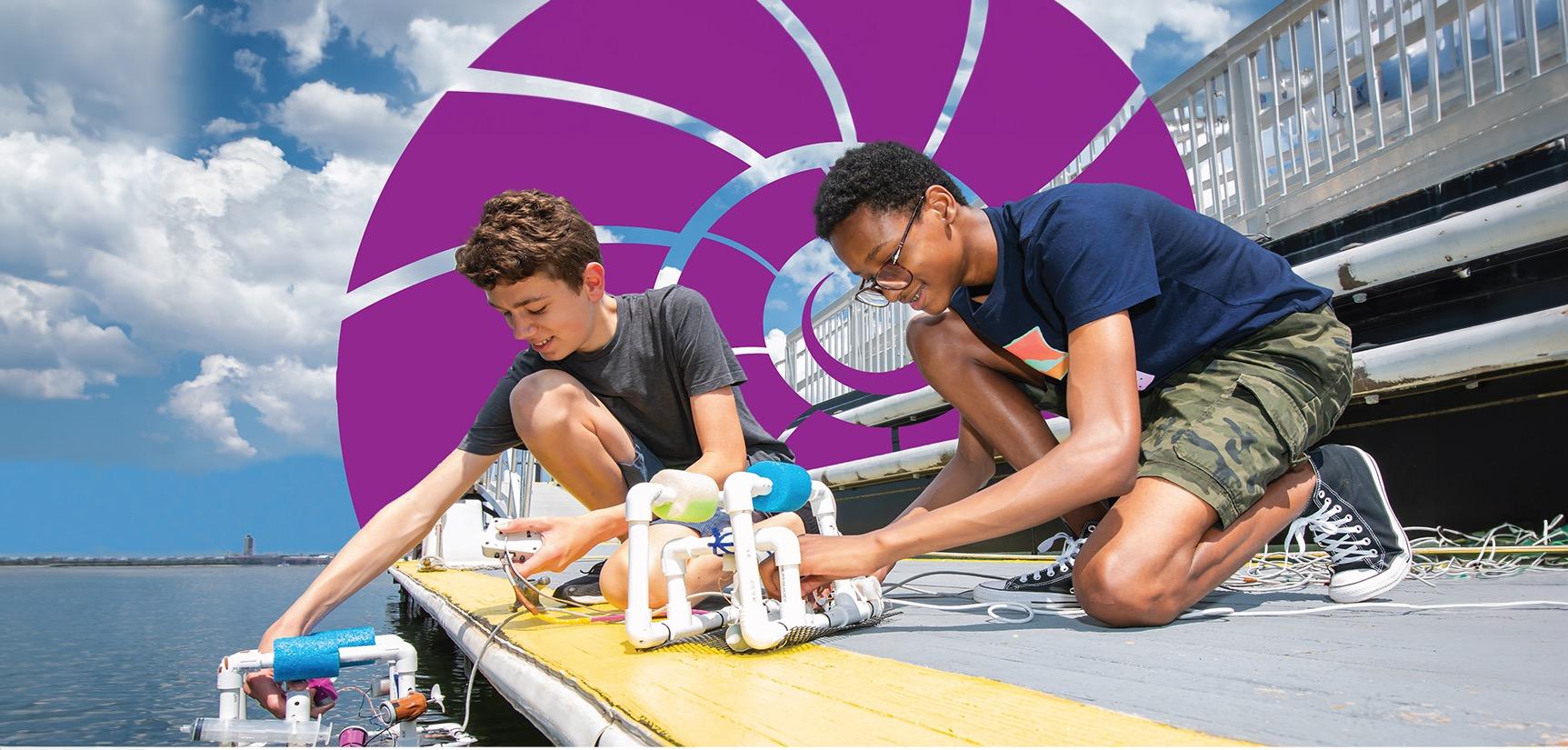
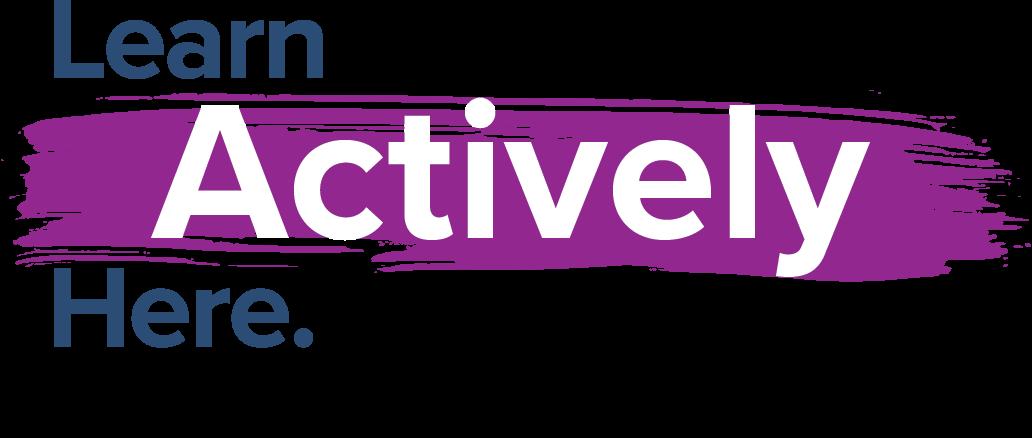
Project-based learning giving 5th through 12th graders the skills to ask and answer their questions about the world
Interdisciplinary courses that inspire creative connection-making and original research
A joyful, diverse, economically accessible community where student ideas and interests matter
Located in the Jamaica Plain neighborhood of Boston with easy access to the Orange Line and field trips throughout the city and beyond


You and your family have decided to apply to one or more private schools for the next school year. Hopefully, you have given yourself and your child plenty of time to prepare for the steps and items required for the process. The steps and requirements in this process can vary depending on the grade your child will enter and the selectiveness of the schools you’re targeting. As parents, understanding your role in this endeavor is crucial. This article aims to provide you with a comprehensive guide to navigate the admissions process smoothly and effectively.
To ensure a successful admissions process, it’s essential to take proactive steps and be wellorganized from the outset. Here are some key considerations for parents:
1. Identify a shortlist of preschools or elementary schools that align with your preferences. Research their acceptance rates, and if they are highly competitive, consider expanding your options.
2. Maintain a detailed calendar of admission-
related events and deadlines. Typically, admissions portals open in late August or September, so register early to engage with the schools early.
3. Network with parents of children already enrolled in your top choices. Inquire about the teachers, parent involvement, flexibility and disciplinary procedures.
4. Attend “get to know you” events organized by prospective schools to familiarize yourself with their culture and values.
5. Understand your financial limitations for tuition and fundraising and what the school will ask of its families.
6. Inquire on required parent participation during the school year. Explore opportunities to contribute through connections or ongoing projects.
7. Prepare a photo collage of your child for the application to provide a more comprehensive perspective of your family.
8. Understand what the preschool will be
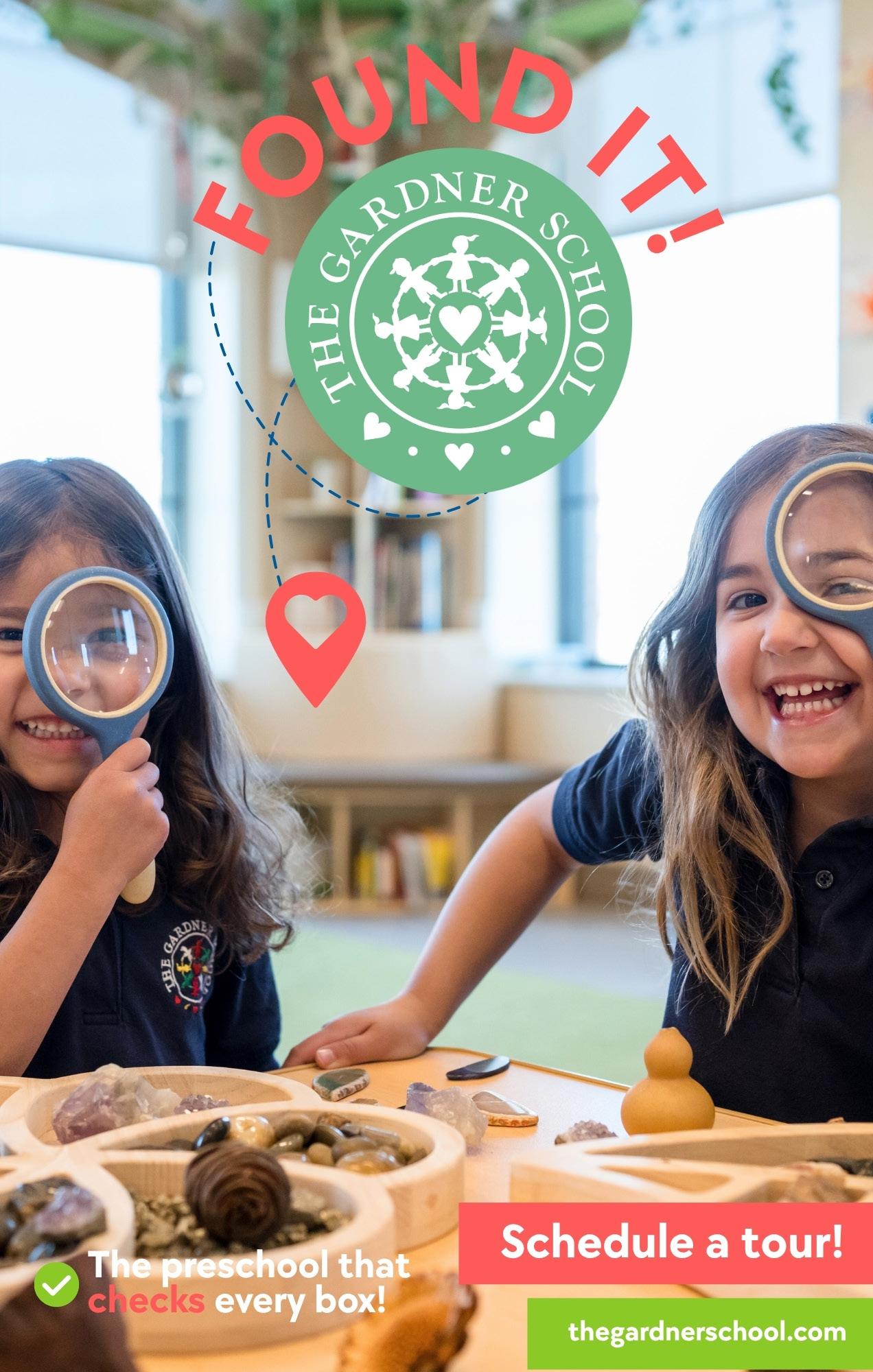

looking for during the interview from your child and you. Work with your child to ensure they have the needed skills.
Private school admissions season typically opens in August or September the preceding year. In addition to basic demographic information, the educational history of the student and standardized test scores, the application may consist of supplemental components such as:
• Responses to student essay prompts.
• Parent essays.
• Graded writing samples.
• Letters of recommendation, typically from English and math teachers.
• Extracurricular profile of the student on what they do outside of class.
I n addition to the prior items listed for preschools and elementary schools, organize and prepare for the following:
1. Maintain a calendar to track registration openings, admission events, application deadlines, and financial assistance deadlines.
2. Compile records of your child’s achievements in academics, sports, and community service to illustrate their positive impact.
3. Assess the impression your family will make on the school’s administration and determine how you will demonstrate your long-term commitment and support.
4. Begin working on your parent statement early, aligning it with the school’s philosophies to showcase your family’s suitability.
5. Collaborate with your child on their
admissions essay, researching prompts as soon as possible.
6. Identify required tests, register and prepare your child accordingly.
7. Assist your child in selecting teachers, coaches, or mentors for compelling letters of recommendation.
8. Assemble graded writing samples and any other requested materials.
9. Attend non-admission events at the school, such as fundraisers and competitions, to display your family’s interest and involvement and learn more.
10. Help your child craft a first-choice letter for their top school preference.
The most challenging years to get into a preschool or private school are Pre-K 3, kindergarten, grade 6 and grade 9. So much of this process relies upon the parent. Stay on top of deadlines, ensure your child remains engaged, and maintains strong grades throughout this process.
Applying to highly selective schools can be as demanding as the college application process. Some families choose to hire an educational consultant to assist with the process and keep them on track. Do you need to hire a consultant? This depends upon how selective the school your child is applying to, if you are able to handle the extra burden during the admissions time or if you want to give your child a leg up in the application process. Schools come in all shapes and sizes with different requirements. You know your child better than anyone out there. You will be there to assist your child choose the school that is the best fit. •
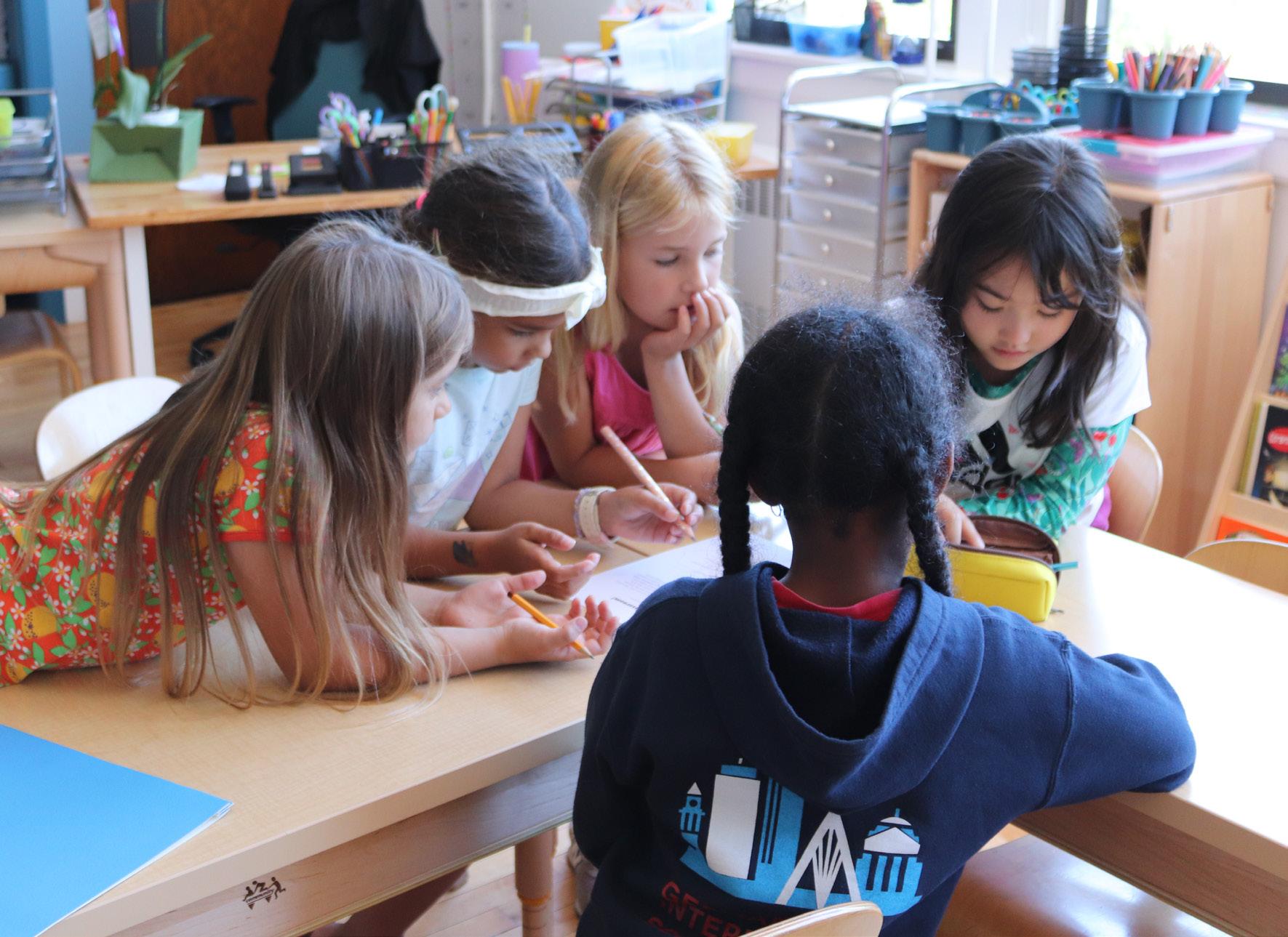
Open a world of opportunity with bilingual education in Boston for children in preschool to grade 12.
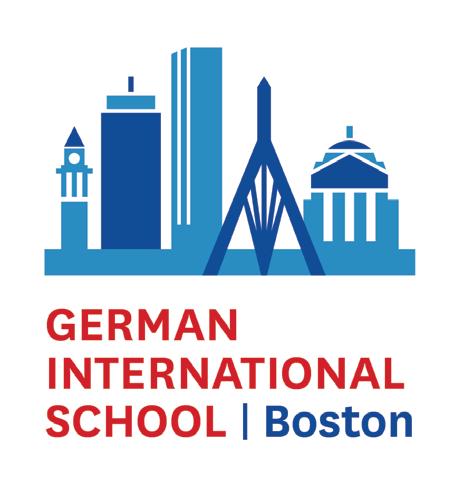
New to German? Explore Fast Track, our accelerated program for students entering preK - grade 5 without prior German experience. Join us for a Lower Campus Open House! Oct. 25, Nov. 22, or Jan. 10 from 10am - noon
Questions? Please contact admissions@gisbos.org

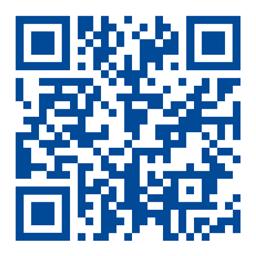
Open House events are one of the best opportunities to experience many aspects of a school. At the event you will get the feel of the staff, students and administrators. You will have the opportunity to walk the halls, experience the classrooms and unique features. While the format of these events may differ across institutions, most will introduce you to the faculty, offer tours of the premises, and spotlight clubs and other extracurricular activities. With the rise of technology, many schools now opt for virtual Open House events. While these can be informative, it’s essential to visit the campus at some point during the admissions process. Whether you’re attending virtually or in person, here are eight tips to make the most of your Open House experience:
1. Register in Advance
Let schools know you are coming as soon as you can. You will be rewarded by a better prepared school. It is not unusual for these events to fill up so don’t wait to reserve your space. Plus, schools will most likely send you an agenda of the event and important admissions information. And, if you can’t make it for some reason let the school know ahead of time.
2. Do Your Homework
By this stage, you should have reviewed the school’s websites, look books, social media and YouTube channels. Conduct a thorough online search for any relevant news on the school. Talk to your child about the school and what is of particular interest.
3. Pay Attention to Arrival Time
While some schools have flexible drop-in events, others have specific check in times. Consider arriving early to mix with staff and current students. If time doesn’t allow you to go early, be on time so you are not rushed.
4. Familiarize Yourself and Child with the Agenda
Hopefully, since you registered the school has provided an agenda ahead of time. Otherwise, check the school’s website or email the admissions team ahead of time. An Open House can be an overwhelming experience for your child due to unfamiliar surroundings and faces. Familiarizing them with the event’s flow can alleviate anxiety. Some events might have separate schedules for parents and prospective
students, so discuss logistics and potential rendezvous points.
5. Take Notes
Most likely you will be visiting more than one schools events. After a few events, keeping track of information can be tough. Take good notes of teacher and student engagement, important dates and opportunities to further engage with the school. Write down a teacher or student that has similar interests as your child or of programs and new projects of interest. Also, after the event, write down your overall impression of the school and how your child reacts, new questions and next steps.
6. Ask Questions
Talk to as many students and teachers as possible. Ask why they chose this school and what they like most about it. Find out what life is like day-to-day, what are the important school wide events, favorite teachers or classes. Evaluate the level of excitement of the students.
7. Evaluate if this School a Good Fit
Do you see your child flourishing academically, socially and physically here? Is school staff welcoming and approachable? Are students engaging with other students. What does the school do to help integrate new students?
8. Evaluate Communication Efficacy
Effective school communication is a reflection of its administrative efficiency. Assess if the provided information facilitated a smooth open house experience. Were there areas where more clarity would have been beneficial? Ensure you comprehend the school’s expectations of students and their families.
Use Open House events to help understand the school and determine its compatibility. The school should educate you on what they are looking for in a student and what they promise to provide. If you made a good connection with a staff member, or they took extra time with you, drop them a quick note of appreciation. Also, consider sending the admissions a thank-you note, accompanied by a positive observation. •
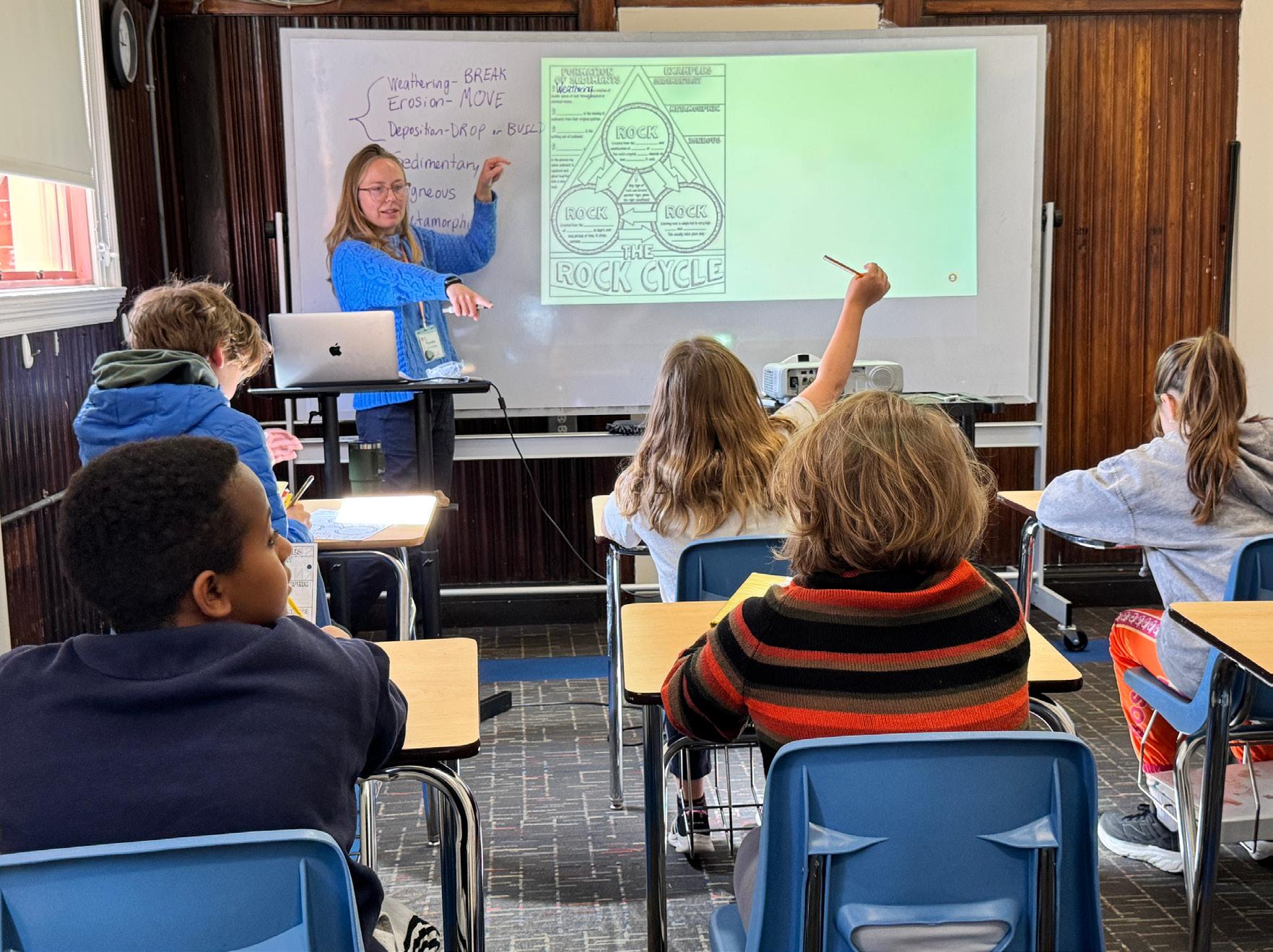


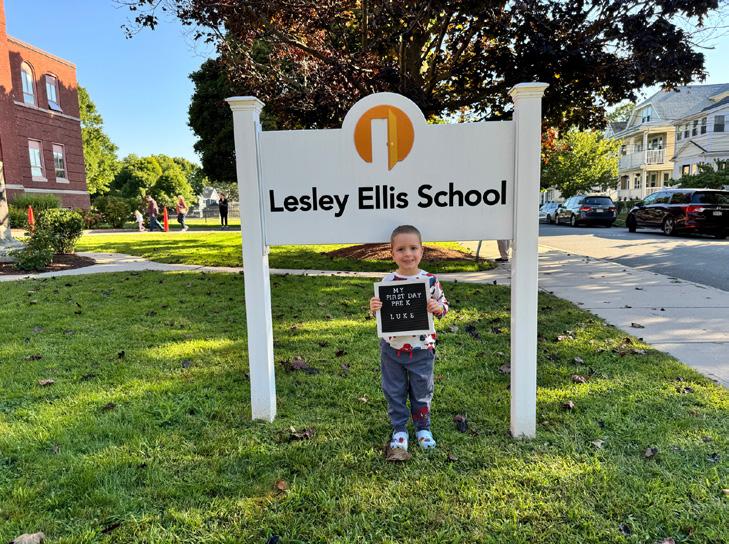


Boarding schools are a perfect option for many families, providing a home away from home that allows children to focus on their education as well as extra-curricular activities such as sports or arts. Education may not be the main reason parents choose to send their kids to boarding school. Some want their children to have a religious base to their education. Others find sports academies which allow their child the ability to train and develop athletic skills while providing a strong college prep education. Some parents favor a specific educational philosophy that can only be found in a boarding school setting. Plus, as was experienced with how education has been affected by situations such as Covid-19, boarding schools can create a stability for students and parents.
• With class sizes at most boarding schools averaging around 10-12 students, there is an opportunity to explore more subjects and attend classes not normally offered in conventional schools. Boarding schools may offer exciting travel opportunities to study ecology, history, political science, or art to give students the advantage of seeing and living their studies. Boarding schools have high standards when it comes to selecting teachers. Teachers are expected to create a classroom environment to stimulate discussion and promote student interest.
• Boarding Schools create a strong community of students, staff and teachers. With children socializing with a limited number of children their own age, around the clock, a strong sense of community is developed as well as lifelong
friends. Peers encourage each other to try new sports, art, music and awaken interests not available at home. Students build strong connections to their roommates and teachers which builds learning behavior and students’ motivation. These connections often lead to a strong network of motivated people for the rest of their lives.
• Boarding schools teach children to take care of themselves which turns them into an independent individual for life. Students at boarding schools learn to be self-reliant and responsible at an earlier age than conventional students. These students learn to follow and maintain a schedule, how to follow school rules and take responsibility for their actions, as well as, learn to make decisions and be better prepared for making difficult choices as they grow into adults.
• Boarding schools are also known to be quite innovative and to provide students with the latest technologies in order to improve the learning experience. This may translate into boarders’ higher acceptance by leading universities and better job opportunities later on.
• If not seeing your child for weeks at a time sounds a bit daunting, look for boarding schools which offer a five day a week program to allow for students to spend weekends with their families. •
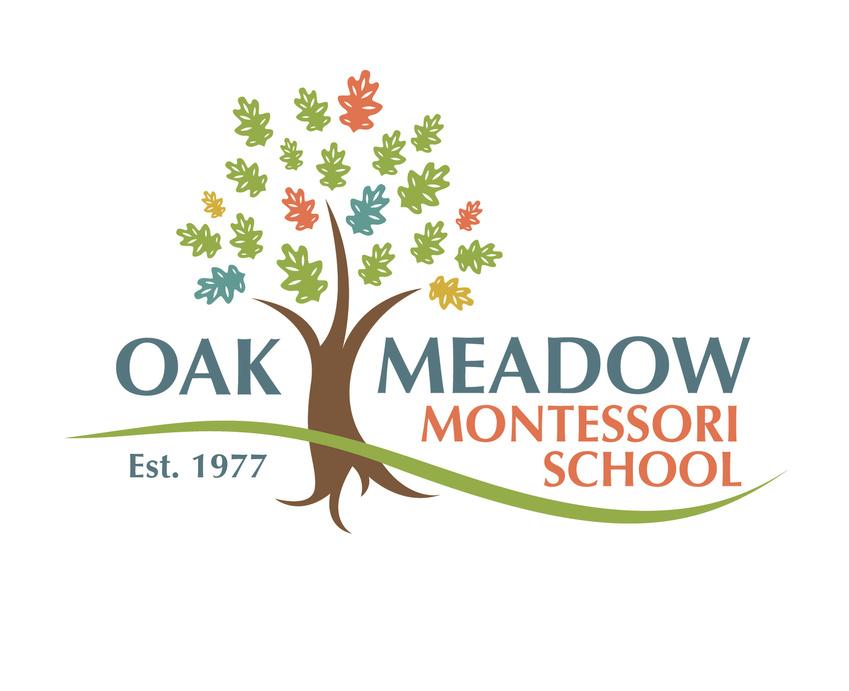

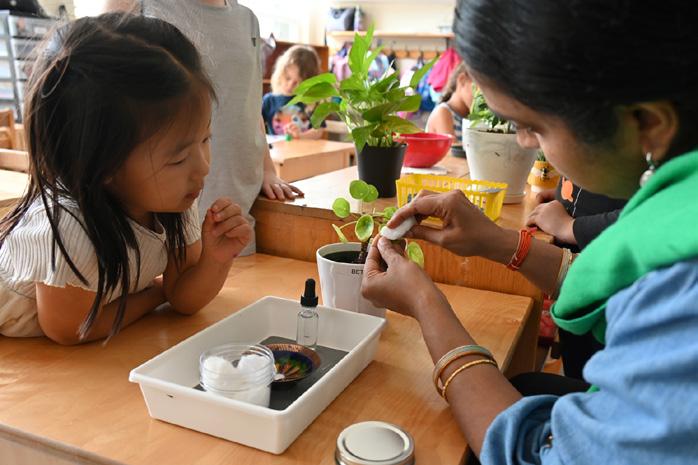
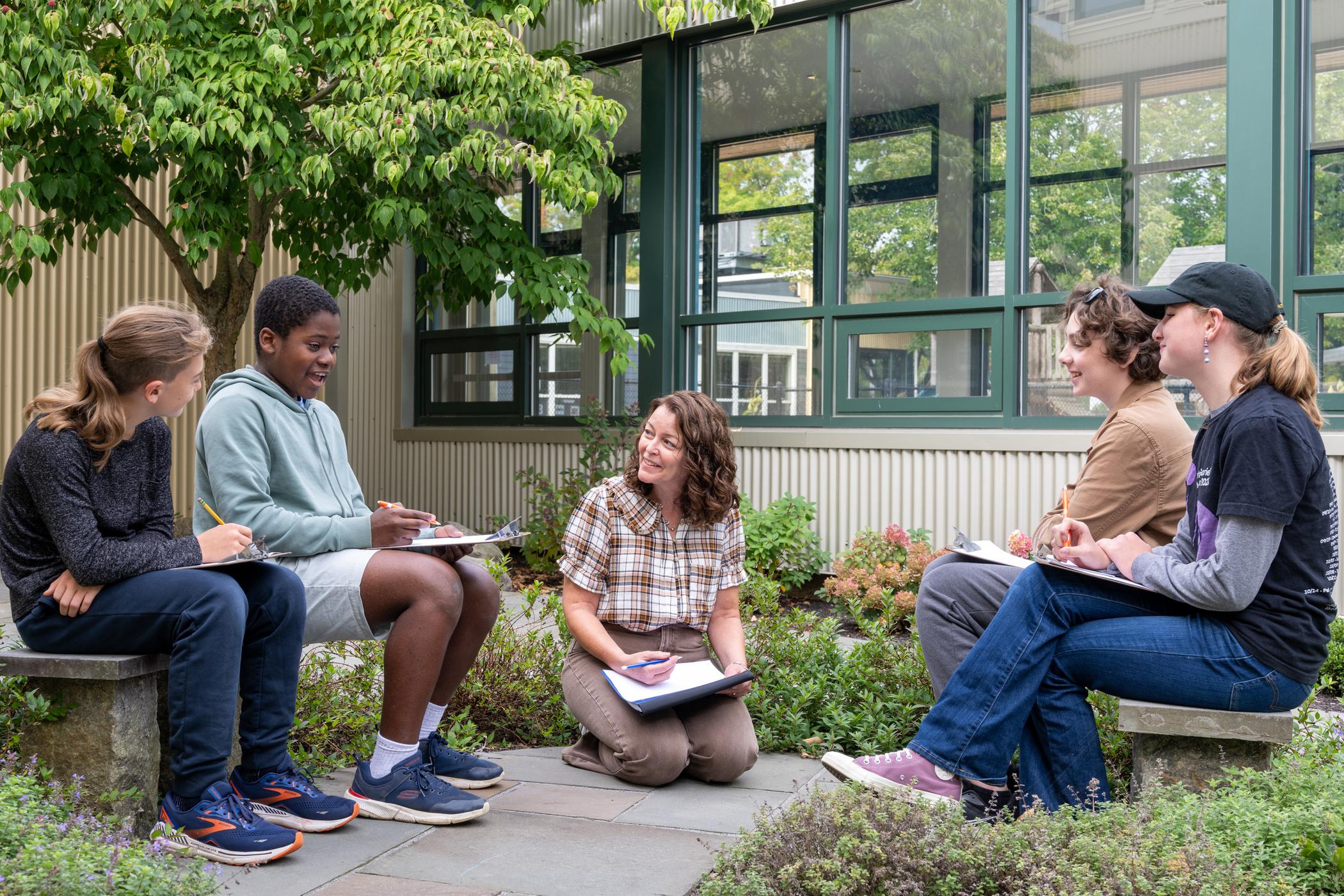
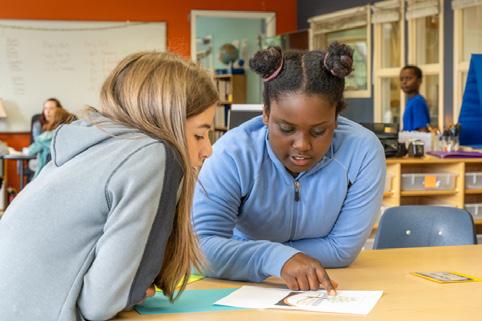


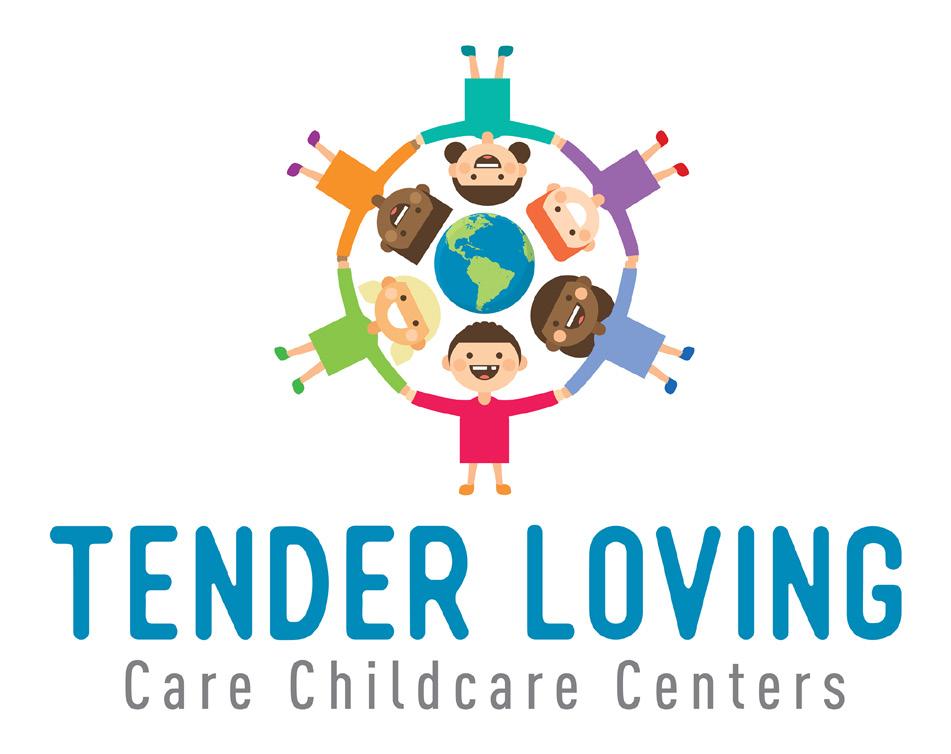


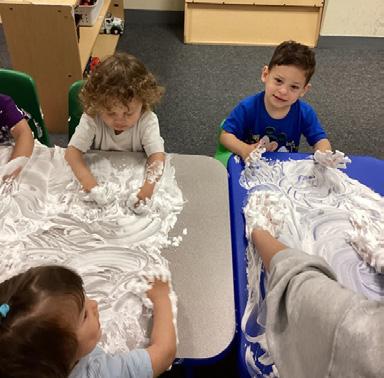
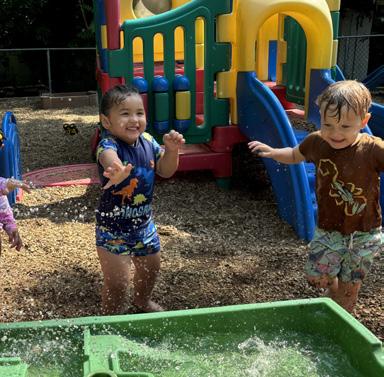

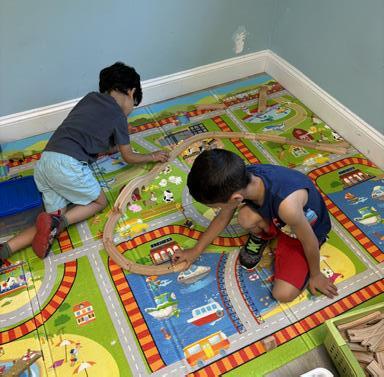
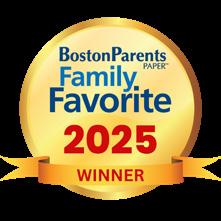
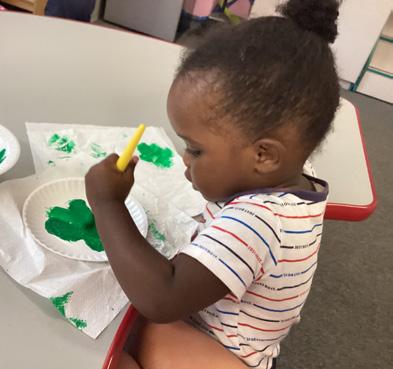
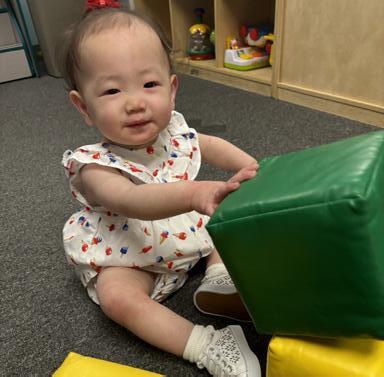
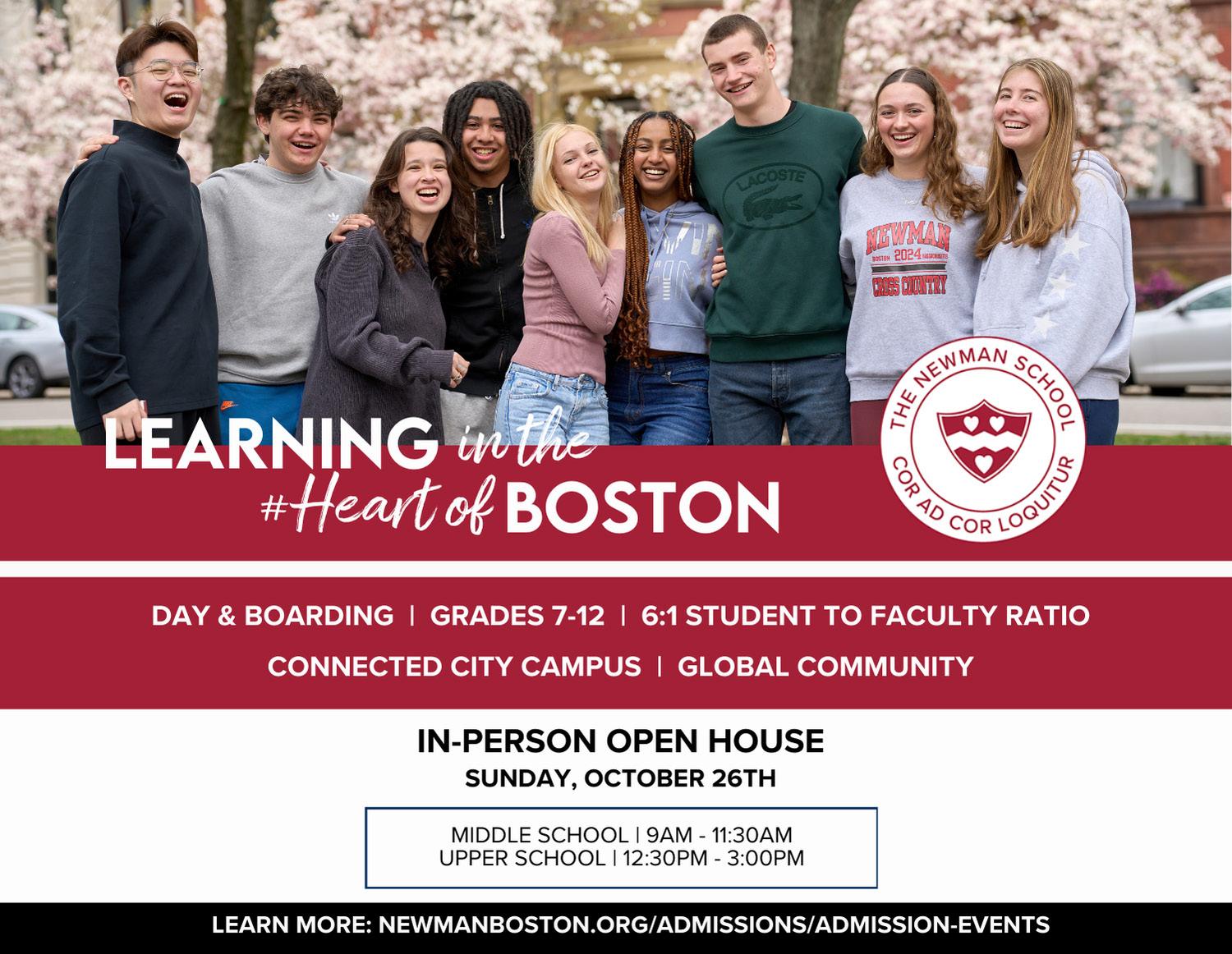
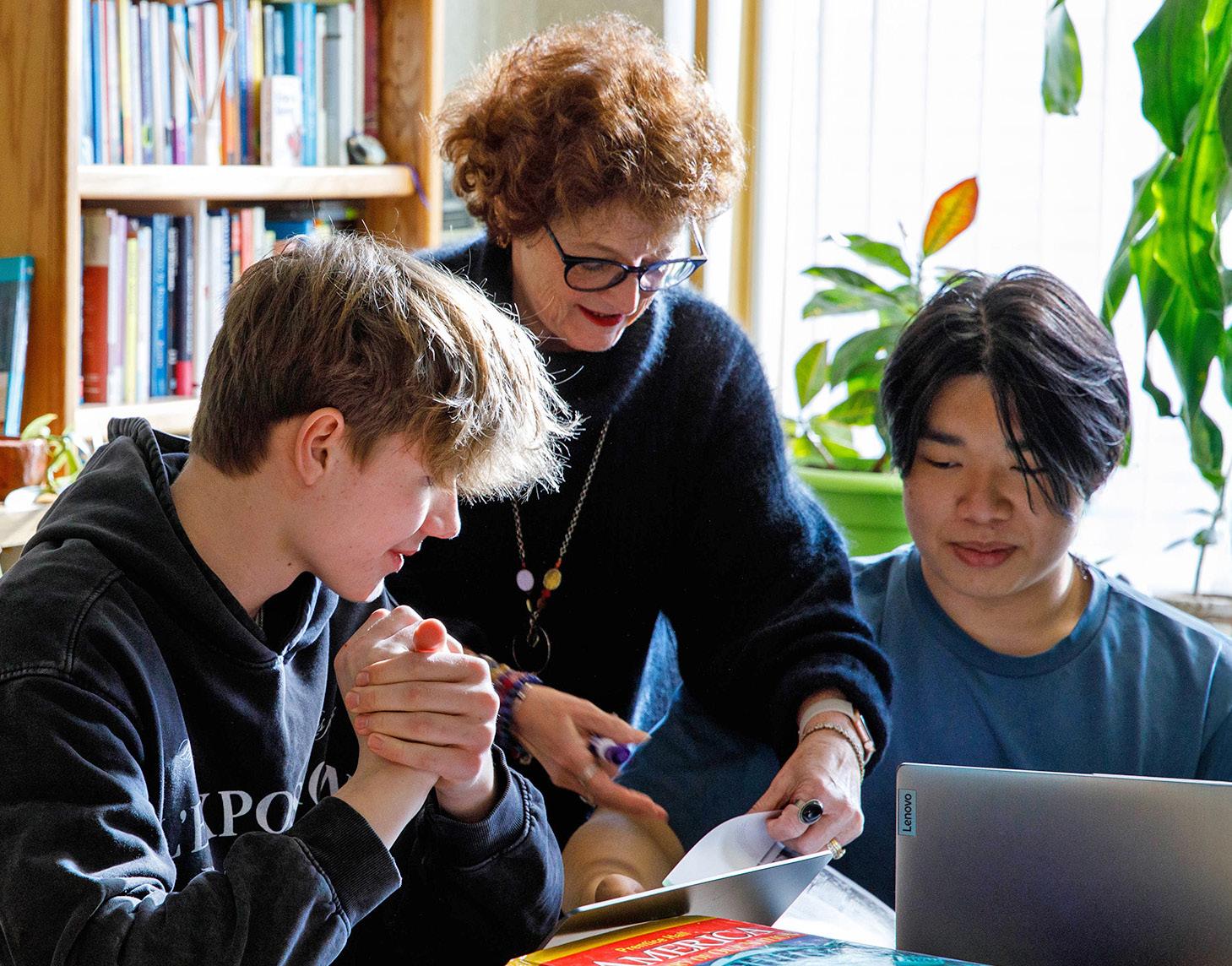
Not every school follows the same schedule, but many follow similar timetables for admission. The below timeline is designed to help you in the admissions process. Many schools will not need all of the materials presented here. It depends on how competitive and selective the school’s admission team is.
❑ Create an Admissions Journal
❑ Define your ideal school
❑ Find schools that match your child’s needs
❑ Talk to your network of friends to gather insights on schools
❑ Research and ask questions of schools on your preliminary list
❑ Browse schools’ websites & look books to learn more about their programs and philosophies
❑ Register at each school of interest and request admissions and financial aid material
❑ Create a calendar of pertinent admission and financial assistance deadlines for the schools of interest
❑ Ask schools about their test requirements and register for needed tests
❑ Review the test websites to learn about procedures and test dates, see sample questions, and purchase test-preparation books
❑ Contact schools to schedule individual tours, class visits, interviews, and shadow days
❑ Begin crafting parent statements and brainstorming essay ideas
❑ Round up graded writing samples and other items, i.e., art, prospective schools will need to evaluate your child
❑ Assemble an extracurricular profile
❑ Work with your child to practice answering interview questions
❑ Arrange to get needed letters of recommendations
❑ Continue to watch for admission events you may want to attend. A month-by-month guide to the application process.
❑ Continue scheduling tours, interviews, class visits, and standardized or school-based tests.
❑ Visit schools during open houses, information sessions, and tours.
❑ Finalize the list of schools to which you will apply.
❑ Take required standardized admission tests.
❑ Keep working on parent statements, essays and practice interviewing
❑ Continue scheduling tours, interviews, class visits, and standardized or school-based tests.
❑ Follow up on teacher recommendations from your child’s current school.
❑ Start working on applications, financial assistance forms, continue working on essays, interviews & statements
❑ Continue to watch for any admission or school events of interest.
❑ Request transcripts at the end of your child’s first semester.
❑ Complete any remaining applications, questionnaires, etc. Some application materials are due as early as December.
❑ Deadlines time: Most applications are due in January or February, along with the accompanying required materials.
❑ Financial assistance applications are normally due soon after applications
❑ For schools with February admissions deadline, turn in applications
❑ Re-visit schools applied to again if unsure of top choice
❑ Watch for school decisions starting in mid-March
❑ Watch for financial assistance decisions about this same time
❑ If your student is accepted by multiple schools, decide which school your child will attend & let other schools know of your choice
❑ If wait listed, contact school to find out details and options
❑ Sign and return enrollment contracts and deposits
❑ Attend events and activities for new parents and students during spring and summer
❑ Get to know other families in the school
❑ Sign up for fall sports and clubs

You have looked at websites, glanced through the glossy brochures, and even heard friends talk glowingly—or not—about the private schools on your short list. Now it’s time to actually set foot on campus. More than anything else, visiting the school—seeing the classrooms, walking around the grounds, and talking to faculty and students—will give you and your child the best sense of whether this is the best environment for your child to learn and thrive. Because the visit is so crucial to deciding on your child’s school, you should make the most of the opportunity. Private school experts offer these suggestions for what to ask about, look for, and consider before, during, and after the visit.
• Do some pre-visit research. Read up on the school’s history, educational philosophy, and accomplishments. Ask for information about student-teacher ratios, teacher experience, arts classes, sports, and other extracurricular activities, special programs for students needing academic support, and expectations for parental involvement. Decide ahead of time if there are specific classrooms, facilities, or departments that you or your child want to visit.
• If possible, visit on a regular school day, arrange to observe a classroom, and stay to sample a school lunch.
• General impressions count, but so do the
details. Take note of what the grounds and classrooms are like, but also pay attention to specifics: are the bathrooms clean; do staff seem organized and ready for your visit; what library, science, and technology resources does the school offer?
• In the classrooms or on the playground, notice if the students look engaged and well-behaved, including when they transition from one activity or classroom to another. How do students interact with their teachers? Do the teachers seem cheerful and knowledgeable? How do the teachers manage the classrooms or handle discipline?
• Talk to as many teachers and students as possible. Find out about homework policies and workloads, the social environment, and opportunities to do arts, sports, and other nonacademic activities.
• If the school offers shadow-a-student day for interested students, your child has the opportunity to ask questions of potential schoolmates more freely than if you’re around.
• After you and your child finish the visit, jot down your general impressions before leaving. Try to imagine your child in one of the classrooms, or walking the halls. How does that idea look and feel? Remember gut feelings can be important, too. •


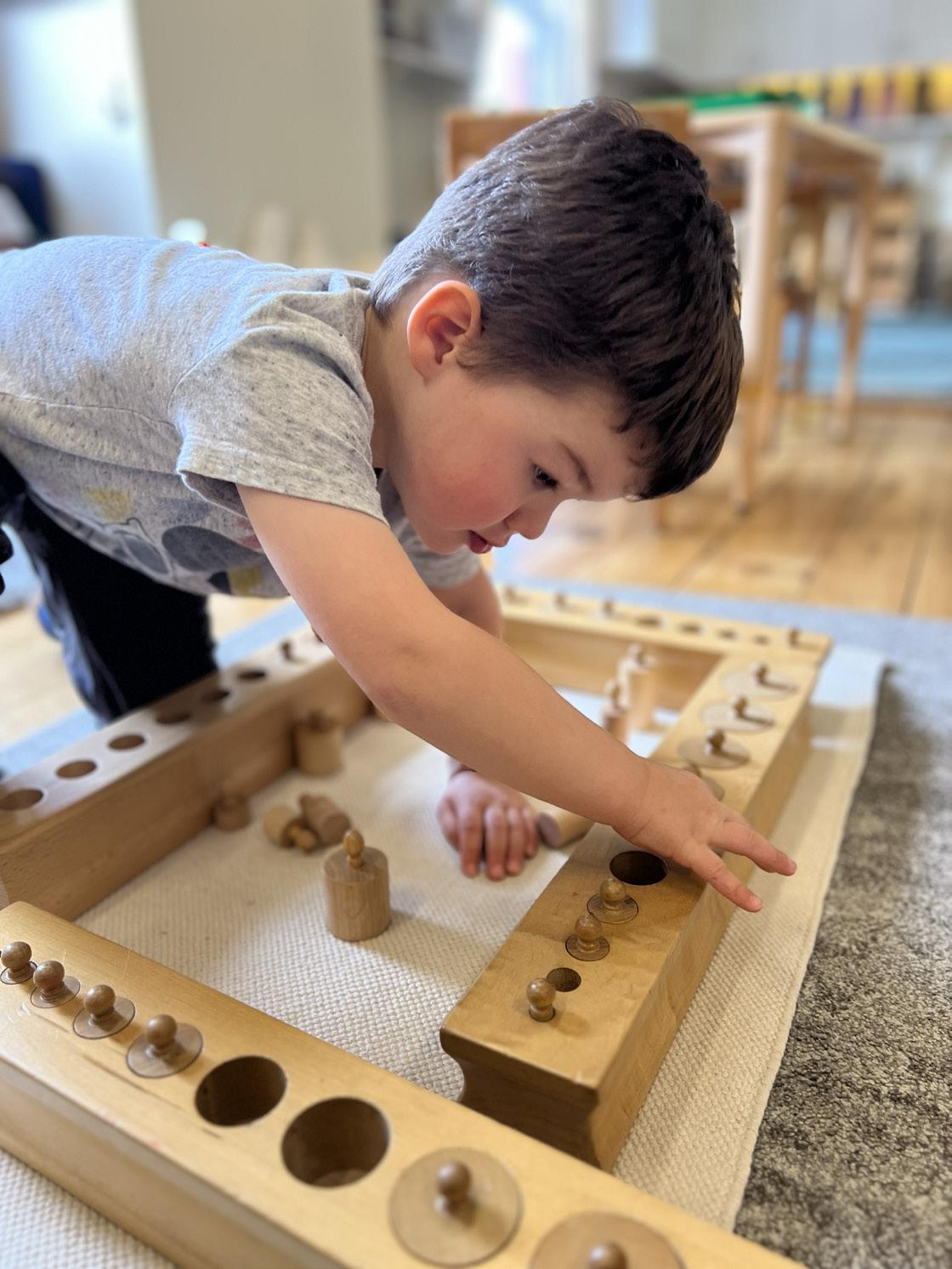
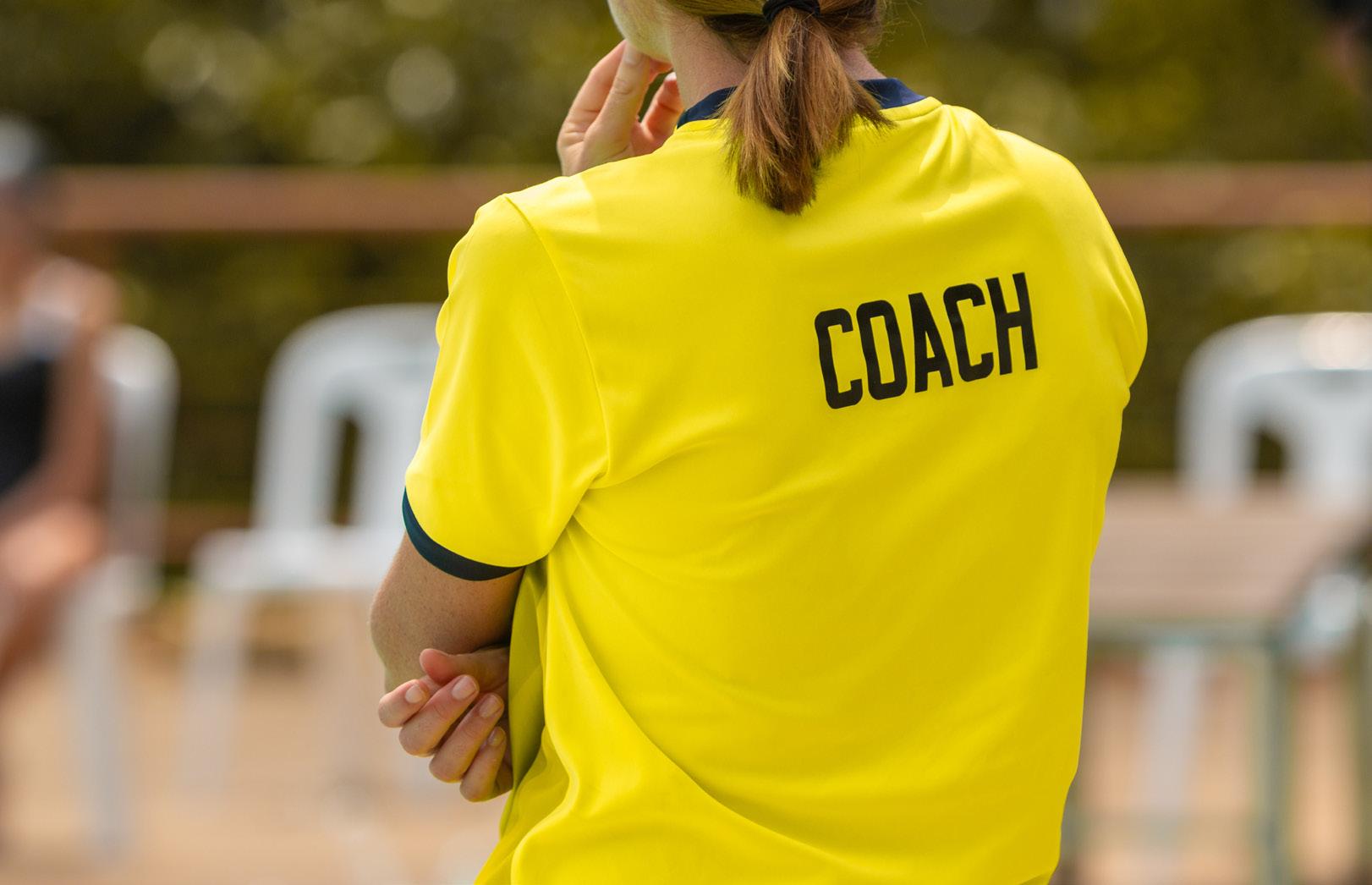
Asking for recommendation letters is an important part of the private school admissions process. These letters can help your child stand out by highlighting interests, strengths and personality. When written by someone who knows your child well, recommendation letters add depth to the application. However, asking for these letters can be uncomfortable and awkward. Consider these factors when asking:
• Pick individuals who know your child well in academic or leadership roles—teachers, coaches, or mentors with relevant positions. Let them know why you choose them to write the letter. They should be able to speak to your child’s strengths, passions, and character.
ASK AT THE RIGHT TIME
• Depending on your desired school’s application process, in general, the best time to ask is in October to mid-November, giving teachers and advisors enough time to write before deadlines. Or, approach your child’s summer coach as they finish up the season practice.
• Recognize that writing a recommendation takes time. Let them know why you value their
input, and be clear about your needs and deadlines. Indicate what is important to your child about the school applying to and how your child’s experience with the person relates. When asking, let the person know how soon you will need the letter and give them amply time to write it. Also, let them know what format, written or digital, that the school has asked for the letter to be in.
• If the deadline is approaching and you haven’t received the letter, a polite reminder is fine. It’s helpful to ask for the letter a week earlier than needed to avoid last-minute issues.
• After submitting your application, be sure to send a thank-you note showing appreciation for their time. If your child is old enough, have them write it. When you are accepted into the school of choice circle back and let them know they were a key part to your acceptance.
These tips will help you secure meaningful recommendation letters for your application. •

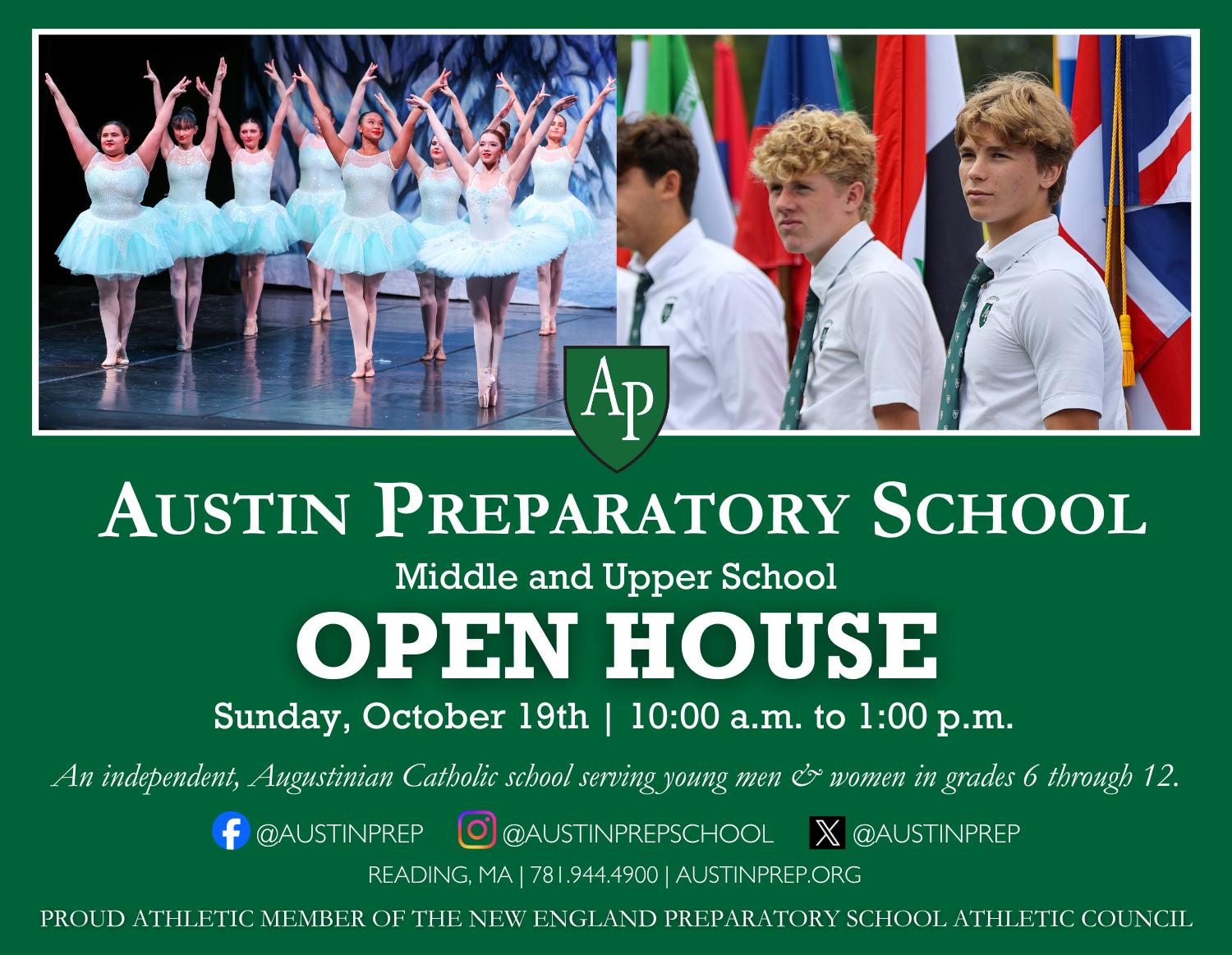

Most private schools require students entering middle and high school to take an entrance exam to gain admission to their institutions.
The most commonly accepted standardized tests are the Independent School Entrance Examination, or the ISEE, and the High School Placement Test, or HSPT, for Catholic schools. Another often recognized and accepted test is the Secondary School Aptitude Test, or the SSAT.
The ISEE and SSAT tests are to middle and high school what the SAT or ACT is to college. They are administered independently at a set time at a specific location with results sent to designated schools. Often schools schedule these tests on their own campuses, and individual entrance requirements usually specify which test to take. The HSPT, however, does not coordinate national testing days, and test administration is the responsibility of individual schools or dioceses, which determine when to offer the HSPT. Now, all three tests offer at home options. These organizations provide students a secure computer-based testing option to be taken at home when group testing isn’t available.
On these exams, students can expect multiple-choice questions that test verbal, math, and reading comprehension skills and a portion that assesses writing ability (though not part of the HSPT). Policies vary according by test on taking practice tests and repeated test attempts. The test results often determine course placement, so more schools have begun to offer preparation test programs to better equip entering students for the real thing. Schools may have additional or different requirements for international students.
Source: www.erblearn.org/ families/isee-by-erb/ LOWER LEVEL
FOR Candidates for grades five and six. MIDDLE AND UPPER LEVEL FOR Candidates for grades seven and eight (Middle); candidates for grades nine through 12 (Upper).
Source: www.ststesting.com
FOR Students in grade eight for placement in ninth grade.
Source: www.ssat.org
The SSAT is a multiple-choice test designed for students in grades three through 11 and is administered on three levels: elementary, middle, and upper.
ELEMENTARY LEVEL SSAT
FOR Students in grades three and four.
MIDDLE AND UPPER LEVEL SSAT
Standard Test (group administered on eight Saturdays), Flex Test (group or individual administered on a different date), Regional Flex Test or Open Flex Test (regional consortia administered).
FOR Students in grades 5–7 (Middle) and grades 8–11 (Upper). •


Application essays provide ways for private school admissions officers to get to know students beyond their grades, test scores, and basic biographical information. Essays provide insight into a student’s personality and intereststo help determine if the school is the right fit for your child and vice versa.
Aside from the interview, writing the essay can be one of the most stress-producing steps in the application process. These suggestions from private school organizations can break the task of writing the essay into manageable steps that guide your child to crafting a work that makes him stand out to admissions officers.
Schools often provide an essay prompt, so you need to respond to it. That said, the prompts usually allow the applicant lots of leeway to write about a range of topics.
Brainstorm and work out ideas ahead of time with teachers, parents, or others early and give

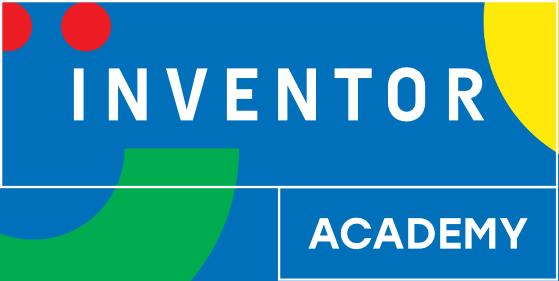

yourself time for revisions.
While the essay should have correct spelling and grammar and be legible, it doesn’t have to follow the academic essay formula. A good strategy is to tell a story to get your point across.
Write about what you know and what excites you.
If you are an aspiring writer, for example, ask the school if you can write in verse, instead of the usual narrative.
Provide details or an example of how a challenging situation and how you overcame it.
Parents, you can provide feedback and help with editing, but let your child do all the writing. •

INVENTOR is redefining K-2 education in Bedford, MA. With our small classes, artsintegrated learning, and a STEM-focused curriculum, we empower young learners to excel academically while nurturing creativity and social-emotional growth.
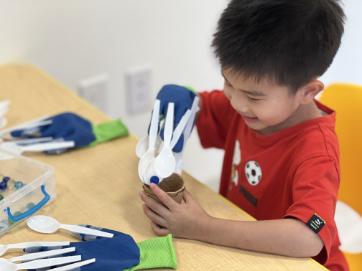
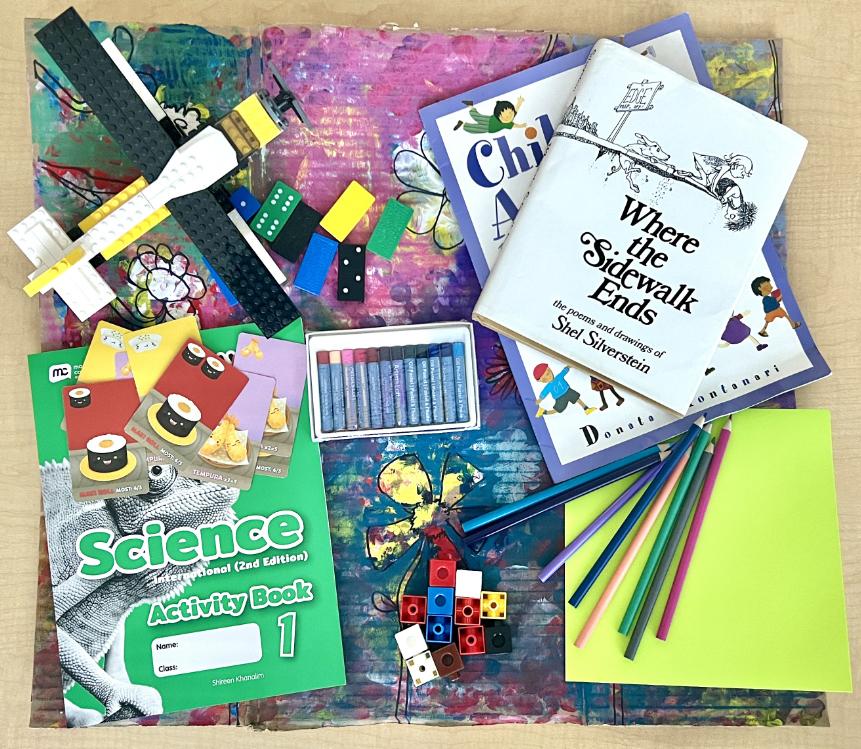

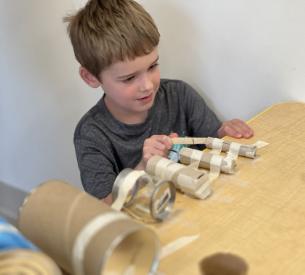



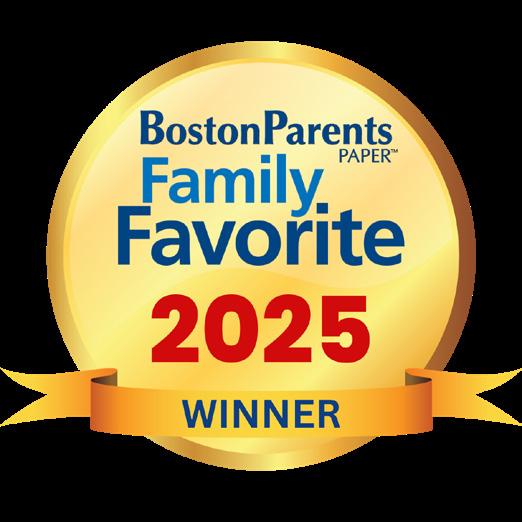


The idea of your child having to interview to gain admission to a private school sounds downright terrifying. But private school experts say you shouldn’t think of the interview as a high-stakes interrogation. Rather, think of the interview as a two-way conversation that helps everyone involved—school staff, parents, and child—determine if the school is the right fit for your child.
The structure of the interview also depends on the school and your child’s age. Typically, the applicant and her family come to the school to look around and talk with an admissions officer or other school staff. The staff might focus on talking with the parents, but with older children and high school students, an admissions officer might speak privately with the child in a formal or more casual situation.
Given that the interview is an important part of the application process, and in determining if this school is the best place to educate your child, here are some things you and your child should prepare for so the interview will go well, according to the National Association of Independent Schools and other private school organizations.
With younger kids, the school staff will mostly talk to the parents, asking them to describe their child and what they hope their child will gain by attending this school.
When students are old enough to be the key
subject of interviews, they should be prepared to answer typical questions, such as:
• Tell me about yourself: Help your child come up with an answer that doesn’t recite biographical facts but describes his interests and strengths in certain academic areas or extracurricular activities and allows him to talk up his accomplishments.
• Why do you want to come to this school? The school wants to find out if the child understands what makes the school unique and whether he sees it as a match for his own personality, academic strengths, interests, and aspirations. So, hopefully, during visits, or in talking to students and faculty, your child has encountered programs or a learning environment that excites him.
• Talk about subjects or teachers that you like: Help your child figure out certain coursework that has recently engaged him, such as a certain book in English class or a social studies field trip to see Egyptian mummies at a museum.
Given that the interview is also a chance for you and your child to learn more about the school, help your child prepare to ask questions. Look at the school’s website or think back to visits and help him come up with a list of questions that reflects how the school might nurture his interests. “Will I be able to do dissections in sixth-grade biology?” “Can I audition for school plays in ninth grade?”
“What about your study trips overseas?” “What are different ways I can fulfill my community service requirements?” The admissions officers will likely see your child’s curiosity as evidence of his interest in coming to the school.
Parents and students should always be honest, experts say. But that doesn’t mean you should accentuate your child’s weaknesses, provide too much information about family challenges, or bad-mouth your child’s current school, even if this current school environment is mostly negative and the reason he’s trying to change schools.
Instead, accentuate the positive: A child’s weakness or a family’s challenges are things he is working to overcome; or his current school simply isn’t the right fit for his unique needs and interests. •
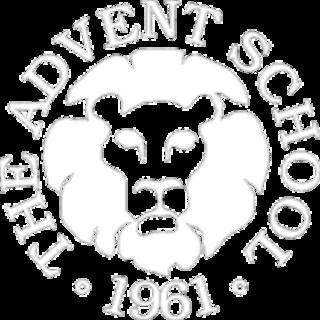


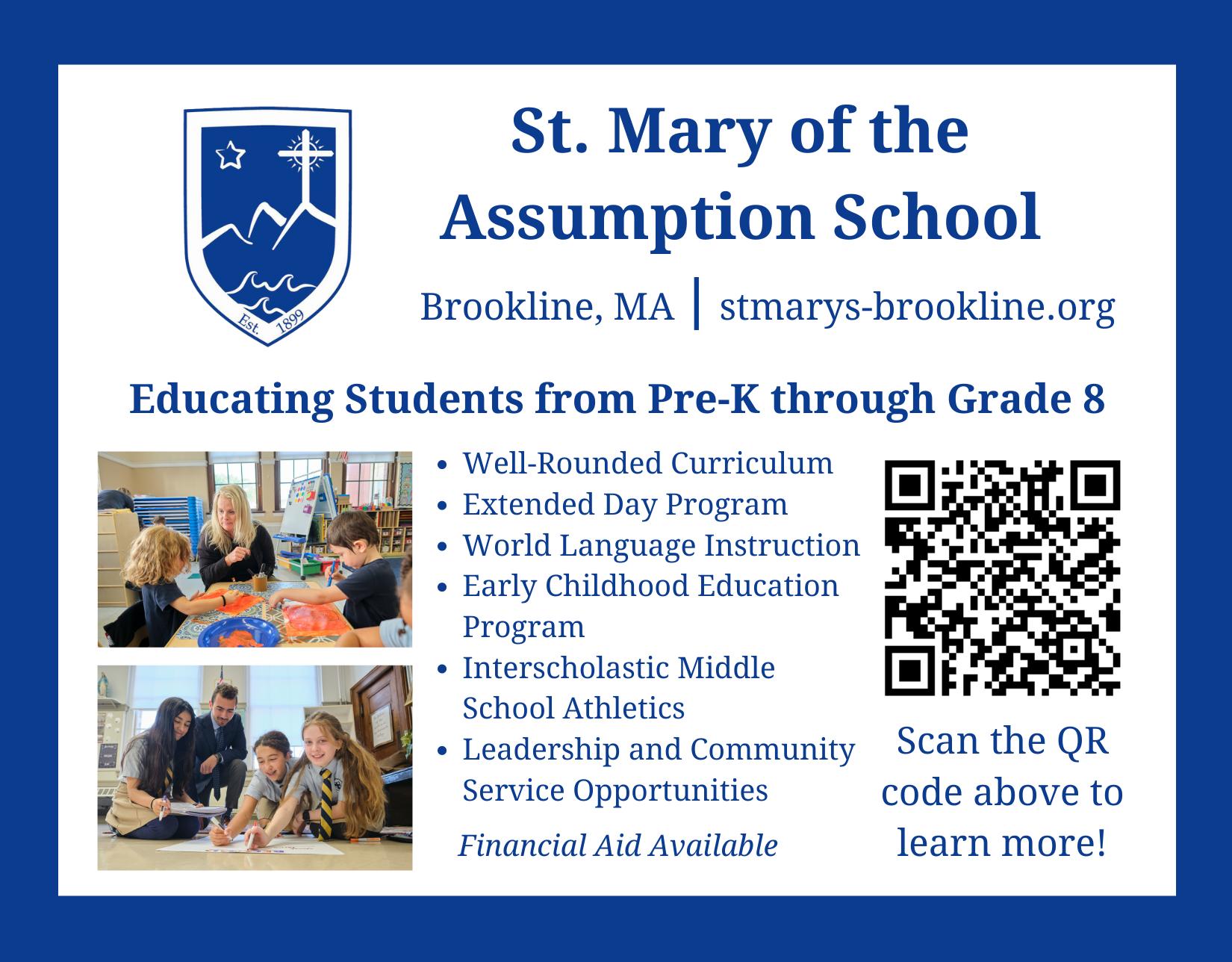

There may come a time when an in-person interview isn’t feasible. Perhaps your family is relocating to the area of the school or you’re considering a distant boarding school. How can you, or more importantly, your child, ensure a successful virtual interview? The following tips offer guidance.
In recent years, virtual calls, classes, interviews, and presentations have become commonplace. If you haven’t established a virtual office at home, start by setting up a tidy space with ample lighting and a non-distracting background. To prevent shadowy visuals, consider using a ring light and avoiding direct backlighting from windows. Position the camera at your child’s eye level — placing your laptop on boxes can help achieve this. If your child wants to showcase a hobby, consider a custom background with relevant imagery, be it their artwork, a beloved sports figure, a memorable travel destination, or a pet. This personal touch can be a great conversation starter. Choose a location that minimizes interruptions from pets, deliveries, landscaping noise, or siblings.
If you’re unfamiliar with virtual meetings, determine the platform the school will use and practice with a friend. Adjust camera angles, teach your child to maintain their on-screen
presence, and practice projecting a clear voice. If possible, record these practice sessions for feedback. It’s crucial to advise your child against nervous habits like fidgeting or excessive gesturing, which can be distracting in a virtual setting.
Just as with a face-to-face interview, attire matters. Ensure your child dresses in a manner that’s both comfortable and in line with the school’s dress code. The goal is to convey respect and leave a lasting impression.
Arrange a mock interview with an adult unfamiliar to your child. This allows them to acclimatize to the digital format and refine their virtual etiquette, such as logging in early to account for technical issues, avoiding phone distractions, and keeping snacks out of sight. It’s acceptable to have a glass of water nearby, but leave it at that. Ensure your child attends to any personal needs before the call starts.
Establish whether parents should remain present during the interview. While it’s advisable for a parent to be available for initial tech troubleshooting, it’s best to give your child space once the interview commences.
Encourage your child to jot down notes, especially if they encounter challenging questions. Ahead of time, prepare a list of 5-6 questions they can refer to if asked. During the conversation, prompt them to note down intriguing points or further questions, ensuring they’re engaged and proactive throughout.
As the session concludes, remind your child to express gratitude. If something piqued their interest, they should ask the interviewer for more resources or insights on that topic.
Lastly, always follow up. A handwritten thankyou note, referencing a personal tidbit from the interview, leaves a lasting impression. If the admissions officer works remotely, a thoughtful video message or email is a suitable alternative. •
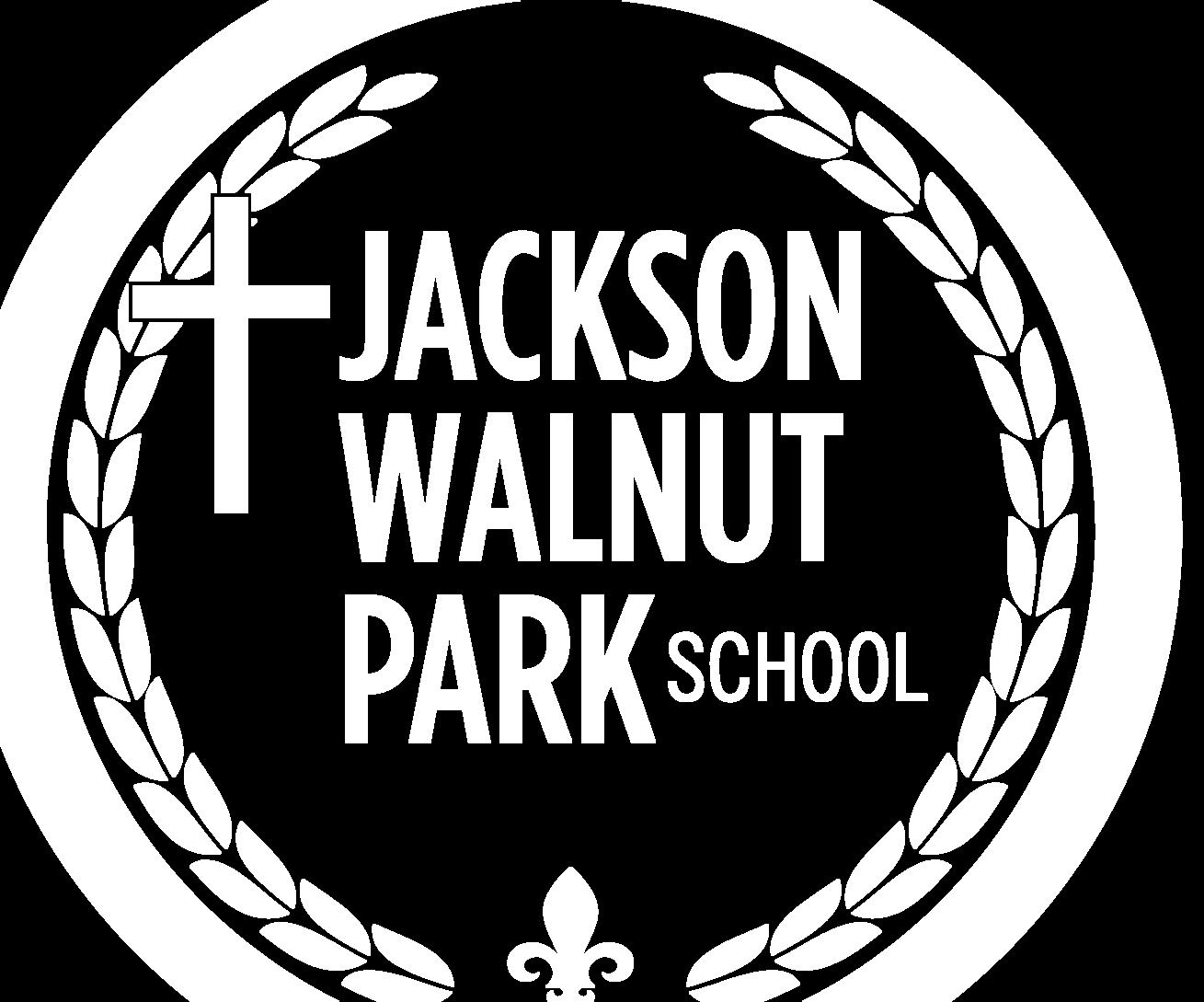
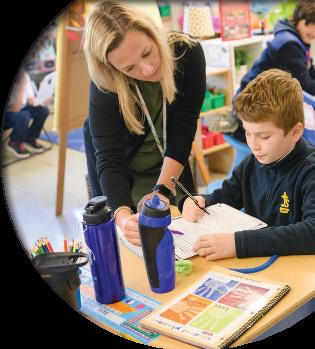
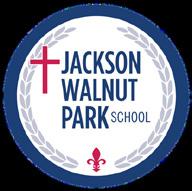


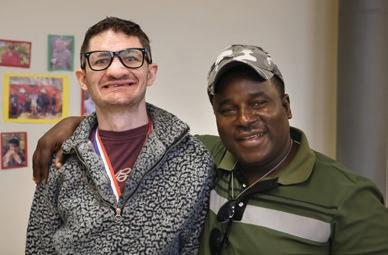
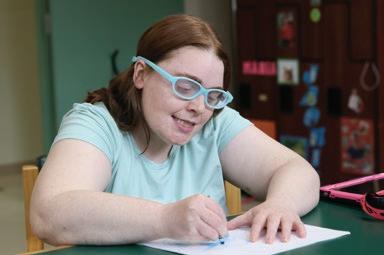

Every private school has its own policies about who receives financial assistance, what types of assistance are awarded, and how much assistance a particular family will receive. In most cases, the financial aid office cannot tell you if your family will qualify for financial aid until you submit an application that allows the school to evaluate your unique situation.
To determine your eligibility for financial aid, you must submit an application form and financial statements. There is no income limit that automatically makes your family ineligible for financial aid. Financial aid officers take into account your income, assets, and expenses, including educational costs for other children.
Bottom line: If you feel your family cannot afford to pay the full cost, regardless of your income, it’s worth the effort to submit a financial aid application.
Every school has its own financial aid schedule, and the deadlines are different for schools with rolling admissions. In general, most financial aid applications are due in January or February. Check with your school of choice for the deadline. You will receive a financial aid decision shortly after your child is admitted to a particular school.

• Grants are the most common type of financial aid offered by private schools. They are awarded annually to students who demonstrate financial need, and students must re-apply each year. Grant money comes from the school’s budget and does not have to be paid back.
• Merit scholarships awarded by the school are rare and are usually reserved for students who have a special talent that the school is seeking, such as art, music, or academics. Generally, scholarships are based on financial need. They may be awarded once, annually, or as long as the student meets the scholarship criteria.
• Scholarships from outside organizations are also rare, and often awarded by local chapters of national groups like the Rotary Club. Ask the school for a list of organizations that have provided scholarships to their students in the past, and check the list on parents.nais.org. Each scholarship program will have its own eligibility rules, application, and deadlines.
• Tuition loans are personal loans provided by a private lender. You must apply directly to the lender, and your loan amount and interest rate will depend on the lender’s credit requirements. Some use loans to pay for expenses not covered by a grant.
• Tuition Payment Plans allow you to make monthly payments rather than writing one or two large checks each year. Schools offer payment plans through a third-party financial services company, which charges a relatively small fee.
• Sibling discounts are designed to help families with more than one child enrolled in the same school. Many schools are shrinking these discounts, or phasing them out altogether. Even so, it’s worth asking if this situation applies to you.
Most families pay for tuition through a combination of these options. The school’s financial aid officer can help you create a financing plan that fits your family’s needs. Don’t hesitate to ask questions and explore all the options available to you. •
Reprinted with permission from the National Association of Independent Schools, www.nais.org.
developing trust | building connections | fostering independence Tremont School (re)ignites a passion for learning.
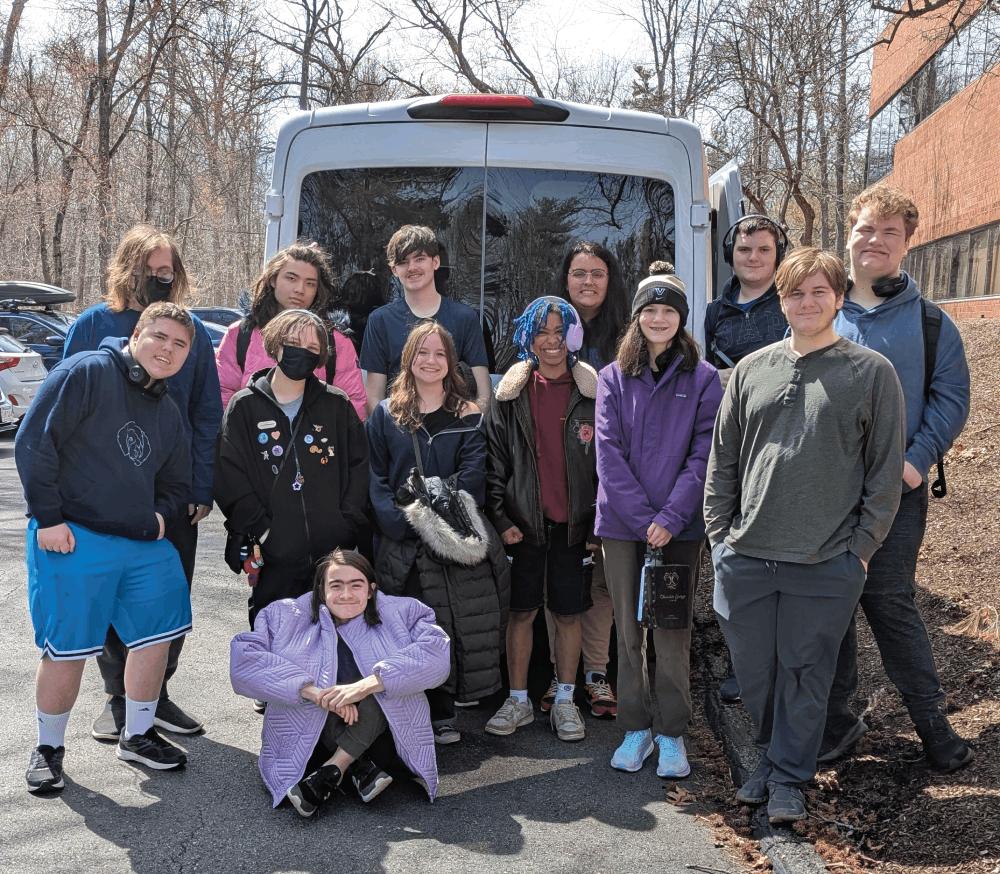

Join us for an Open House Oct 26 • Nov 23 • Dec 14
Middle School • High School • Post-grad • Concord, MA
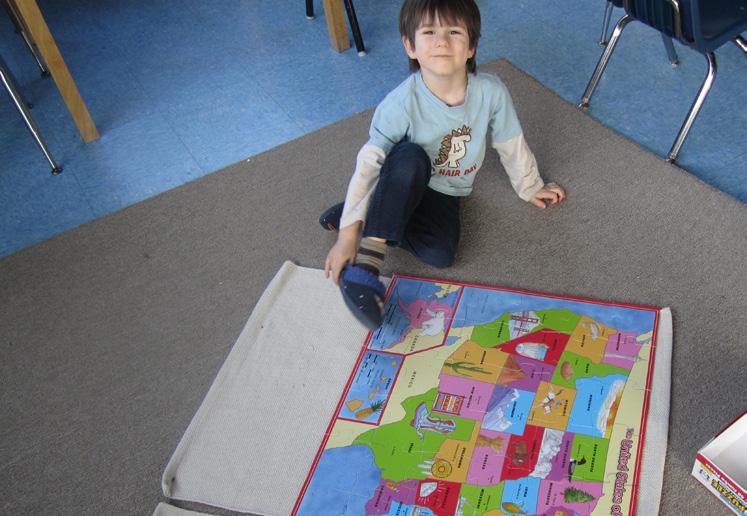

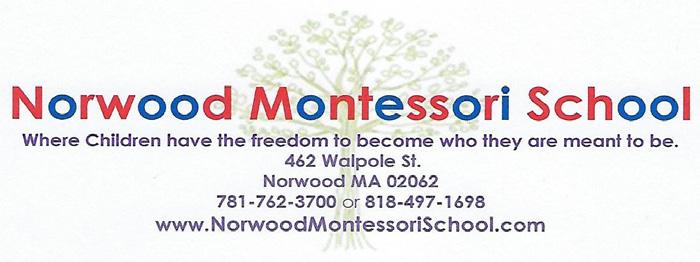
Norwood Montessori School (NMS) provides high-quality Montessori education for children ages 14 months to 18 years.
Montessori Lessons
Music Classes Yoga Classes STEAM Classes Art Classes

T he application is completed, interviews and shadow days all done—all that’s left is waiting for the acceptance letter (or email) and then the big decision. Usually, acceptance (or rejection or waitlist) notifications go out on a Friday in mid-March, and families then have seven days to decide where their child will attend. So how to make the decision?
When you learn about your child’s acceptance, you will also learn about financial assistance awards. If the grant you receive does not meet your needs, or if you are not awarded any financial assistance, contact the school’s financial assistance officer to learn about other options.
The following are tips on choosing a school from the National Association of Independent Schools.
WHAT TO DO IF YOU’RE CHILD IS ACCEPTED
• If you’re certain about the school, say yes but feel free to take the full seven days to sit with the decision to make sure it feels right.
• Discuss the options as a family.
• Make a pro and con list for each possible school.
• Revisit your notes from tours and open houses. Follow your heart. Revisit your wish list to make sure you’ve fulfilled your priorities. Be sure that your child will thrive in the school community you choose.
IF YOU ARE NOT SURE
• Consider a second visit to the school; have your child do a shadow day if she hasn’t already.
• Ask to talk to some teachers.
• Talk to graduates or current families of the school, especially any who have come from your child’s current school.
• Encourage your child to talk to other students.
ONCE YOU DECIDE
• Be sure to contact the school you choose by the reply deadline.
• Let all schools where you were admitted know of your final decision so they can contact other families on their wait list.
• Return your signed enrollment contract and tuition deposit.
IF YOU’RE WAITLISTED
• Call the school right away and let admissions officials know that you are very interested. Stay in touch with them throughout the summer. Sometimes children can be accepted off the waitlist just days before school begins.
IF YOU’RE REJECTED
• Consider other schools.
• Ask the school for feedback about what factors made the difference. Try to approach the issue in a nonjudgmental way; tell the admissions staff you want to get information that can help your child do better in the future. •


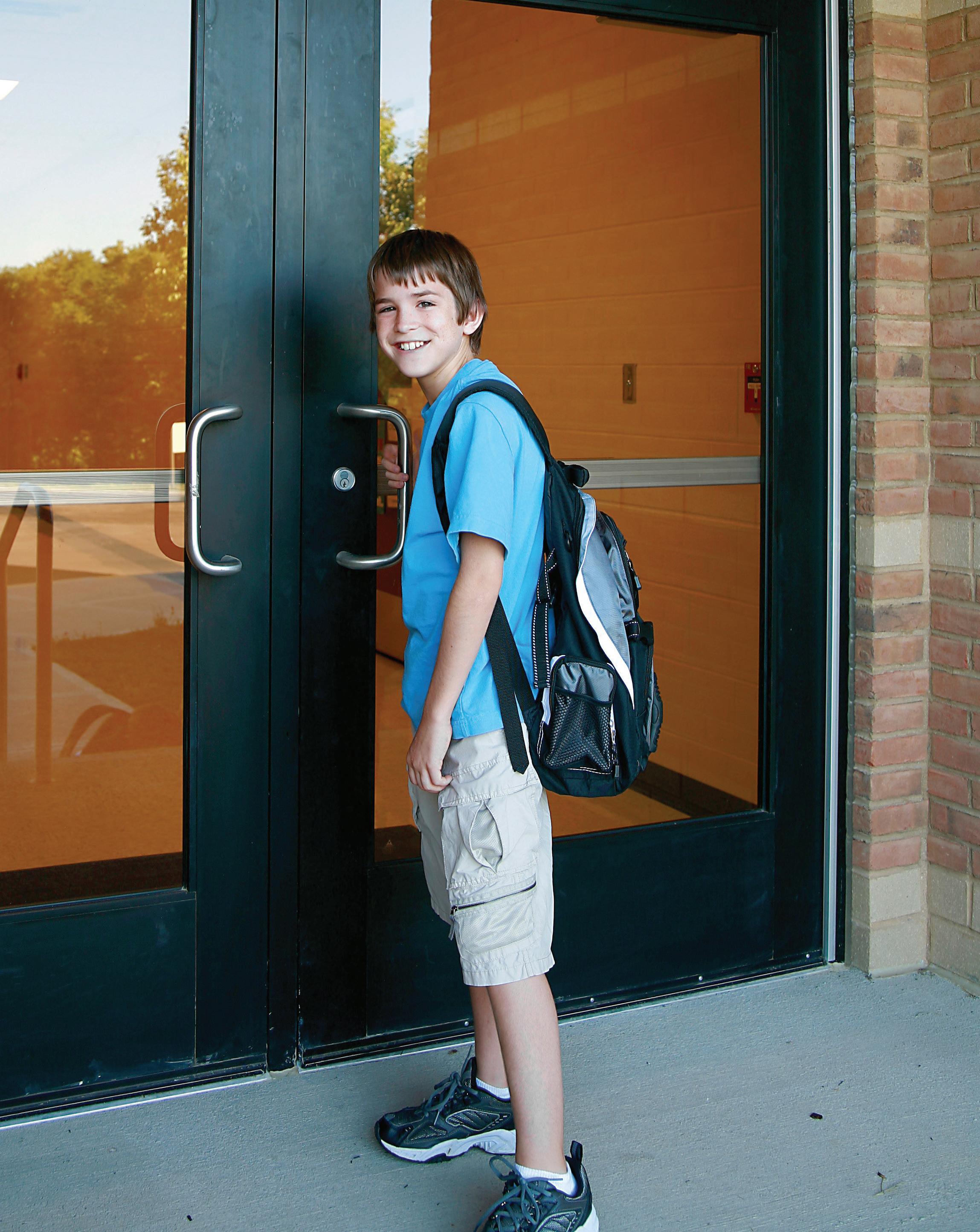
Founded in 1900, Bancroft School is Worcester’s premier PreK-12 independent day school. Through active, inquiry-based learning and challenging experiences, we empower students with the skills, knowledge, and confidence to make a difference.
At Bancroft, learning is embedded in everything we do. The hands-on nature of the Learning Laboratory Method allows students to learn by doing, stumbling, trying again, and succeeding. Guided by outstanding teachers, curious learners engage with one another and celebrate the strengths and lived experiences of each individual.
Bancroft School works to be the first choice for students and families seeking to own their journey to mastery and independence in the greater Worcester region. We continue to strengthen our diverse and supportive community and invest in people to provide a robust education for all students in PreK through grade 12. Guided by outstanding teachers, curious learners engage with one another and celebrate our strengths and lived experiences.
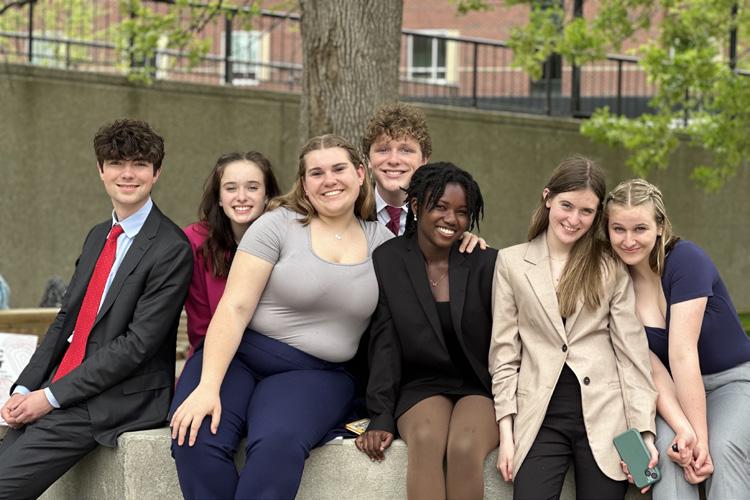
Bancroft’s athletics program exemplifies the principles of collective learning and healthy competition. Our students participate in a wide variety of sports, building character, resilience, and leadership skills through competition.
At Bancroft School, we encourage flexing our creative minds in all forms through our Arts programs. We offer extensive courses at all levels in both visual and performing art. We love to let our students shine, from art exhibits on campus to our Harrington Theatre stage, you can't go far without seeing student expression. We also offer off-campus art activities, including speech tournaments and musical concerts. Connect with us to learn more about our Arts programs. Come check out what Bancroft School has to offer.
Join us at one of our Fall Open House events:
• October 5 | 1:00 PM - 3:00 PM
• October 28 | 6:00 PM - 8:00 PM

More than 30 student-run organizations at Bancroft offer the chance to discover new interests and passions. From our Vex Robotics Champion Robodogs to our cultural student groups, we have an incredible variety and breadth of opportunities. Many students participate in several clubs during the year as the schedule has built-in time for meetings. 110 Shore Drive • Worcester, MA 01605 • 508-853-2640 www.bancroftschool.org
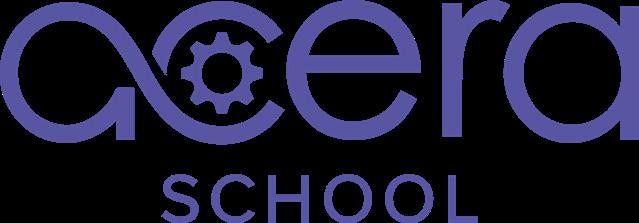
Acera is a K-9 school serving gifted students in Greater Boston. We are committed to keeping your child’s curiosity alive through individualized learning pathways, purpose-filled projects, ability-based classes, and engaging electives that remove the ceiling of what is possible at school.
Acera empowers students to explore their passions through personalized learning paths and passion-fueled projects, reigniting their love of learning. In our dynamic community filled with inquisitive minds, unique abilities fuel rigorous thinking and creative problem-solving. Here, kids grow into confident thinkers, leaders, and citizens eager to change the world.
Gifted kids soak up content quickly, ask questions, and apply what they learn to make something new. We value their spirit of inquiry. Learning flourishes through discussions, hands-on projects, and simulations, fostering connections to what matters. This inspires students to become problem-solvers, innovators, and leaders, developing skills that will make them impactful contributors in the future.
Ability-based learning spans all disciplines, catering to students substantially above grade level, including elective opportunities and placement in ability-based math classes.
Our learning approach fosters intrinsic motivation, inspiring a sense of purpose in school. We rapidly move from knowledge acquisition to conceptual thinking and applying ideas to broader, real-world problems and
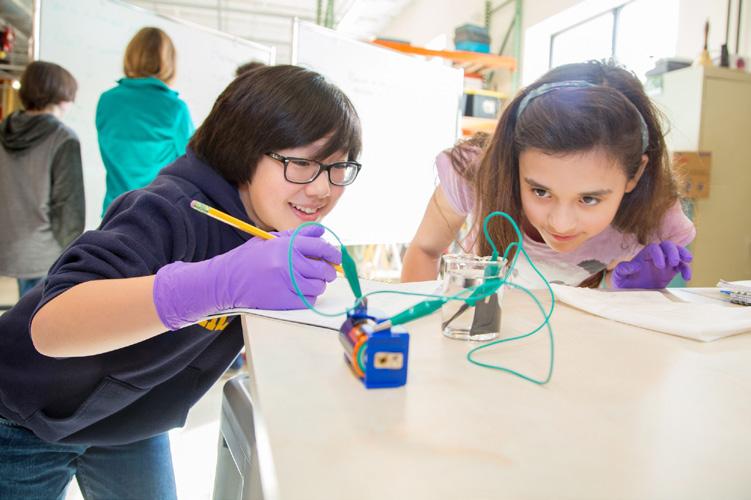
projects. Learning is satisfying, meaningful, and joyful.
Core and specialist teachers create an interdisciplinary, project-based program centered on essential questions like “What makes us human?” and “How can we redesign our environment?” These inquiries drive meaningful discussions and purpose in learning.
At Acera, we embrace a multiple-intelligences approach to understanding giftedness. Our school provides an alternative for students who enjoy problem-solving, creativity, and deep inquiry. Many Acera students find traditional schools limiting, as they often encounter ceilings that prevent them from learning at their desired pace and depth. Here, students can nurture their insatiable curiosity, passion for knowledge, and need for selfexpression. At Acera, creative and analytical thinkers discover a sense of belonging in an environment tailored to their individual interests and potential.
To find out more about our exciting approach please visit www.aceraschool.org.

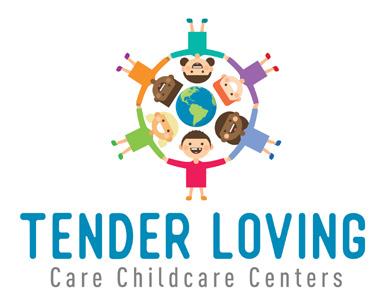
TLC Childcare Center strives to provide a quality Early Childhood Education Program filled with carefully chosen staff members, filled with love and compassion for children. We believe that children are our most important resource and that their early childhood experiences are crucial in the development of their future.
Each staff member strives to offer an environment that is high in quality and stimulates the child’s senses and where warmth and friendship are abundant, to meet the needs of the total development of the child.
The program we pursue is geared toward helping the child develop habits of observation, questioning and listening while building a positive self-esteem. Our staff members are partners with our parents working together to meet both the needs of the children and their families.
TLC Childcare Center succeeds by delivering outstanding performance and customer service.
Just like Family!!
Tender Loving Care Childcare Centers are more than a Day Care. The loving Staff is like Family. I feel secure in knowing when I drop my daughter off that she will be cared for as if she were at home with a family member!! I know that my child is being cared for in a nurturing
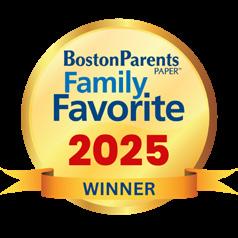
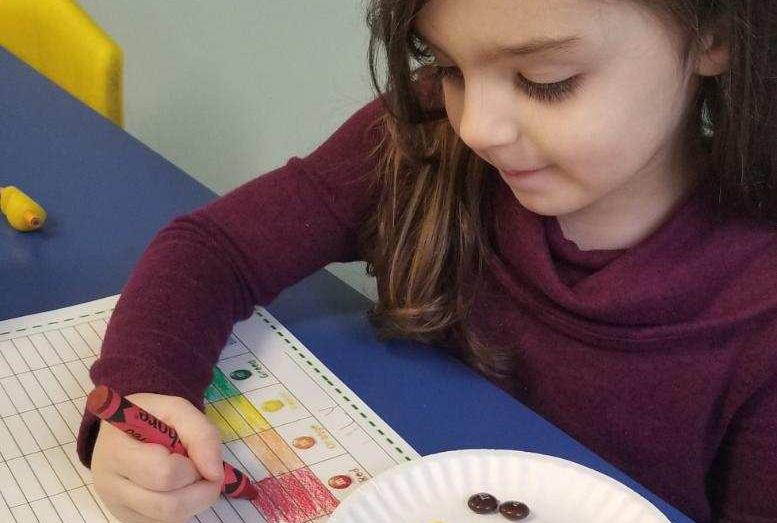
environment and by a well educated staff. The teachers are a group of AMAZING people who have dedicated their lives to caring for children and it shows. They are not just teachers, THEY ARE FAMILY!!
– Elizabeth, Waltham, MA
Just love them!
– Grace, MA
Highly Recommended
Tender Loving Care Childcare Center is a wonderful facility that provides excellent child care. Attentive, caring, patient, affordable and professional - all the qualities parents look for when in need for the perfect childcare. I highly recommend Tender Loving Care Childcare Centers located in Weston and Woburn Massachusetts!!!
– Delina, Waltham, MA
In Woburn, we have expanded! We have room for children ages 1 month to age 6! Contact us for more information!
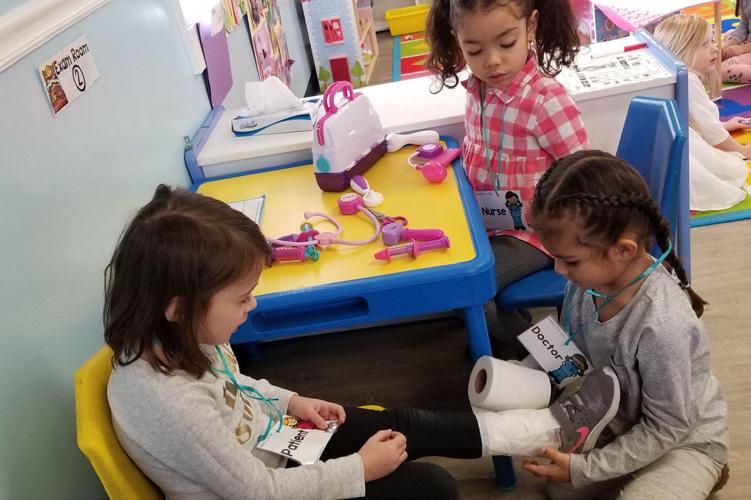

At Meridian Academy, students are immersed in an authentic and collaborative learning environment. Students grow as problem-posers and problem-solvers as they carry out in-depth projects across a wide range of subjects. Our project-based courses mean that your child will learn in an engaged and memorable way. Meridian knows that young people are capable of truly original and sophisticated pursuits and our classes are structured to provide the opportunities and mentoring needed to reach those heights.
Located in the heart of the Jamaica Plain neighborhood of Boston with easy access to the T, Meridian provides an innovative college preparatory curriculum for students in grade 5 through grade 12.
Meridian students benefit from interdisciplinary courses that support them in making valuable connections between the subjects that they study. Each year, all students take Humanities (combining History and English), an integrated Mathematics, Science, and Technology class, and Spanish or French. Courses focused on linking ideas enable students to better appreciate and understand themselves and the world they live in. Students take studio art, music, and theater classes, and the arts are integrated throughout their subjects both as a means for understanding and communicating ideas.
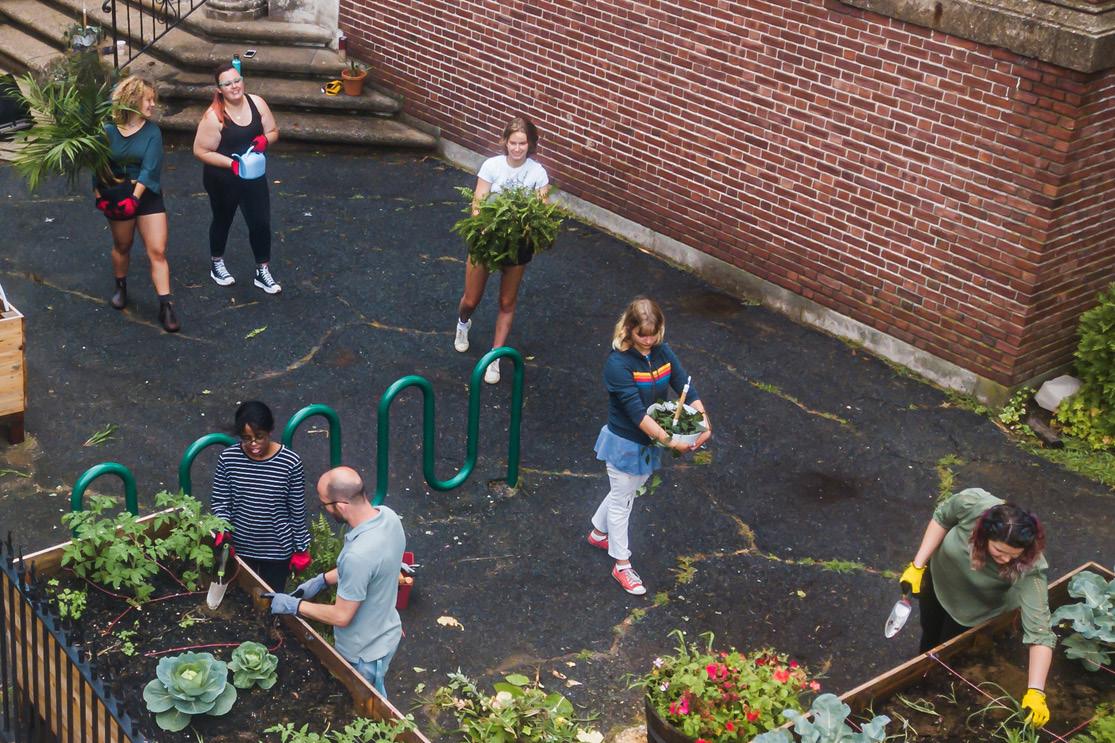
Meridian’s community is vibrant, joyful, informal, and welcoming. Students take leadership roles in many aspects of school life including peer mentoring and guiding student committees. Students share their work three times a year with the public at our Exhibition Evenings (picture a science fair, but for all subjects!). Meridian students know that they will have an interested audience in their work, so they strive for excellence in content and presentation.
All of the habits of successful grown-up life – curiosity, persistence, teamwork, initiative, communication, problem-solving, patience, creativity, and empathy – are developed in our academic, extracurricular, and social programs.


At The Gardner School we pride ourselves on a balanced educational approach that intentionally blends teacher and childdirected experiences, incorporating a variety of learning models. Our curriculum is designed to spark curiosity and foster intellectual growth through music, art, language learning, and outdoor play. We are committed to nurturing the social, emotional, and relational skills of our students, ensuring a well-rounded education that supports growth in all aspects of life.
Our state-of-the-art facilities are crafted with your child’s development in mind from our combined playscape and enrichment studio to classrooms filled with natural light from large windows. These safe, secure, and interactive spaces encourage children to joyfully engage in their learning journey. At The Gardner School, we are excited to offer a rich educational experience that prepares your child for a bright future.
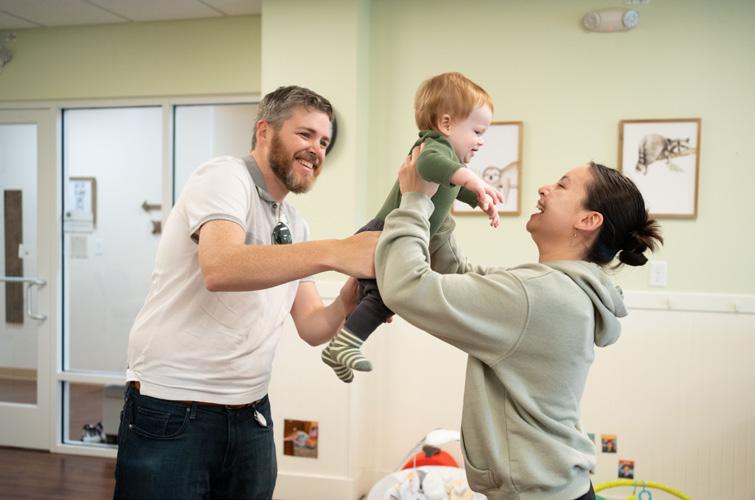
The Gardner School will be a rich learning environment that will stimulate your child’s physical, social, emotional, and intellectual growth. Our preschool will offer educational preschool and early childhood programs for children ages 6 weeks to 5 years.
At The Gardner School, we believe each child should have learning experiences that build confidence and enrich their early childhood development. Our approach ensures that our students are nurtured at the proper pace and level, providing them with the educational foundation for a bright future.
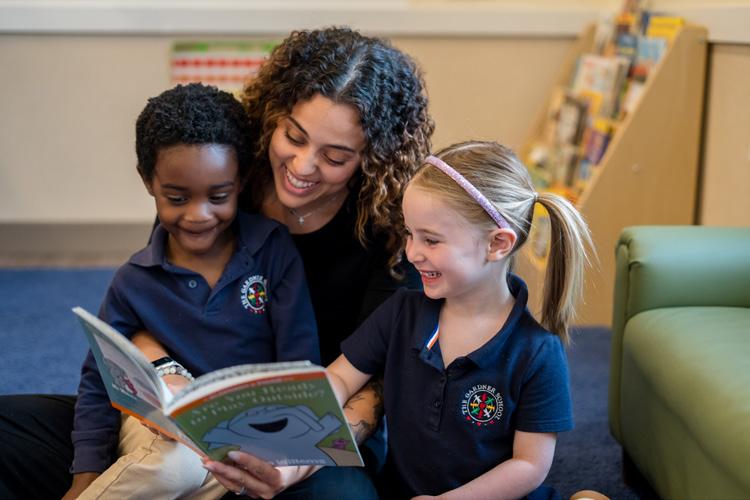
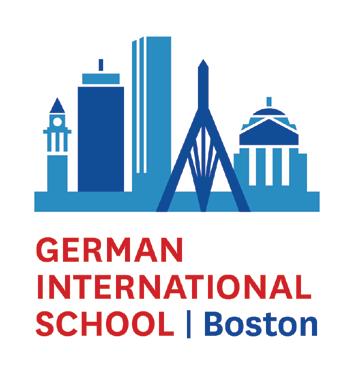
German International School Boston (GISB) is a bilingual independent school serving students in preschool through grade 12.
GISB strives to inspire curiosity, imagination, and a lifelong love of learning in every student. The school is part of a worldwide network of 136 officially recognized International German Schools, allowing the school to award the German International Abitur in addition to the Massachusetts high school diploma. This prestigious honorslevel diploma is recognized at European and American colleges and universities as an academic distinction.
Open worlds of opportunity with a global education.
Whether you are looking for a languageimmersion preschool or want to benefit from the rich and rigorous German curriculum in elementary to high school, GISB works to ignite each student’s intellectual and creative potential, preparing students to shape the future.
GISB has no prior language requirements for preschool, pre-K, or kindergarten, and offers a dedicated Fast Track program for students entering grades K through 5 with little or no German knowledge.
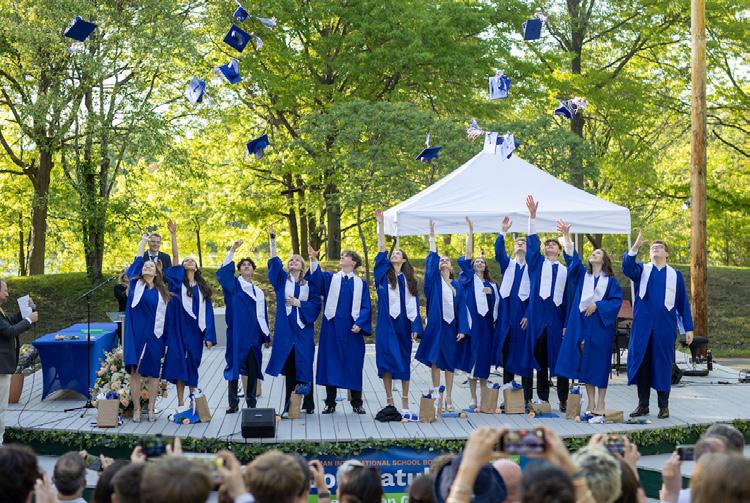
GISB is one of only four schools in the United States that are recognized as German Schools Abroad and offer the prestigious German High School Degree, the International Abitur.
Joining our school community allows students not only to become fluent in German as well as English but also sets them on the path to become open-minded, independent thinkers. A robust, internationally-oriented, and well-rounded German curriculum that equally emphasizes languages, sciences, mathematics, and the arts opens the doors for our students to the best colleges and universities in the United States, Germany, and worldwide.
Contact admissions@gisbos.org to schedule a tour.
Applications for the 2026–2027 school year are now open, with financial assistance available.
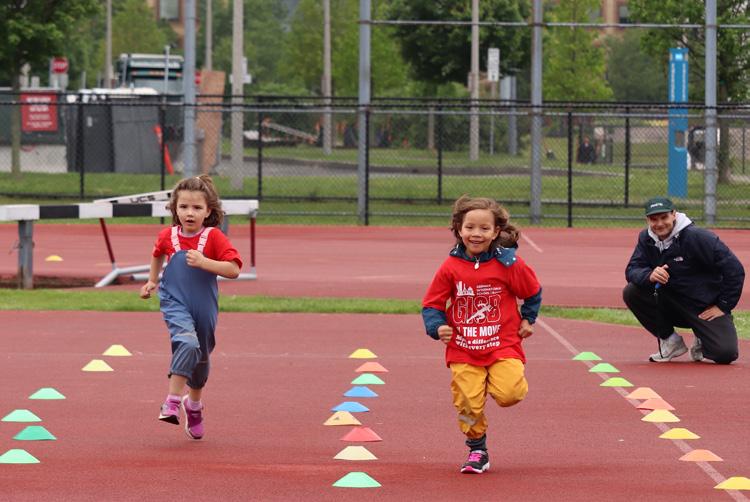

Montessori School Spanish Immersion
Toddler, Preschool, and Kindergarten Program for Children ranging in age from 15 months through 6 years of age. We are open year-round from 8 am to 5pm.
We guide children toward exploring their educational interests while helping them build confidence, independence, and solid moral character. We focus on respect, peace, and nature exploration in a bilingual SpanishEnglish environment with hiking trails, an outdoor children's garden, and acres of outdoor space for educational use and exploration. We are most proud of our teacher-student ratio of 1:4 for toddlers, and 1:7 for Children's House and strive to maintain the highest quality preschool education for young children blended with lots of love, warmth, and a sprinkle of silly.
As a bilingual Spanish Montessori school, we guide children toward exploring their own educational interests which helps them build confidence, independence and solid moral character. We focus on respect, peace and nature with our outdoor garden, miles of hiking trails, and acres of outdoor space for educational use and exploration. We are most proud of our teacher to student ratio of 1:4 for toddler, and 1:7 for Children's House students and strive to maintain the highest quality preschool education for young children blended with lots of love, warmth, and a sprinkle of silly.
Montessori Escuela is an American Montessori Society member and we firmly believe in the value of having our team of guides maintain their Montessori credentials and training. We also employ and implement certified yoga instructors, mindfulness, music and horticulture specialists, as well
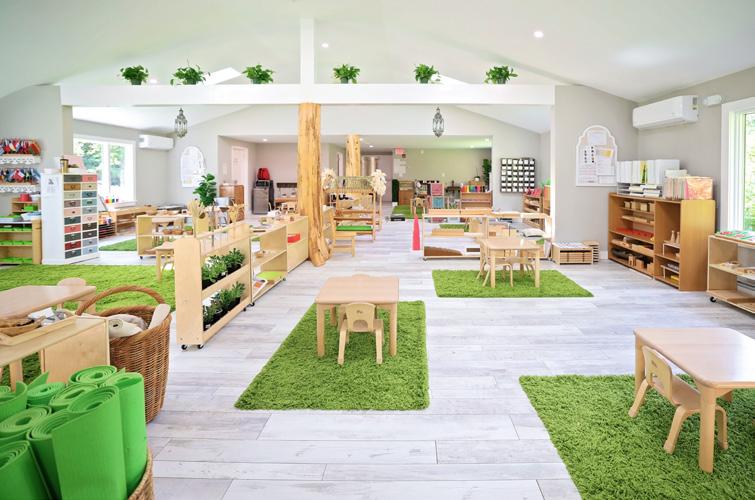
as Mass Audubon Drumlin Farm Wildlife Sanctuary educators to present lessons to our students as enrichment to our students receiving our Montessori educational philosophy. Our classrooms offer lessons such as sewing, woodworking, food preparation, cooking, gardening, flower arranging, weaving, music and storytelling, the Montessori Bells, language (including phonetics, reading, writing and much more), math, cultural studies in botany, geography, physical science, flags, animals, vertebrates/invertebrates, human body, the solar system, land and water forms, mathematics from numeration 1-10 up to advanced squaring and cubing chains or more advanced academic content. Families can choose from flexible schedules between 8 am to 5 pm daily on a yearround basis for children ages 15 months through 6 years of age.
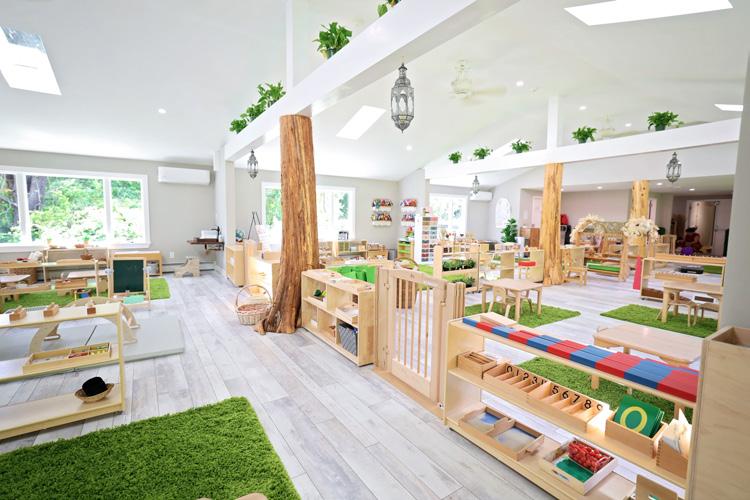

At Lesley Ellis School, children from preschool through eighth grade are part of a community that celebrates diversity, values kindness, and ensures every student feels seen and supported. From the moment your child steps through our cheerful orange doors, they are welcomed into a place where they belong, are accepted, and are inspired to grow.
In the earliest years, children discover who they are and how they fit into the world. Our play-based, emergent curriculum embraces curiosity and encourages learning through exploration, projects, art, dramatic play, and friendships. With gentle guidance, children build confidence, pride, and joy in learning.
Kindergarten through fourth grade is a time of excitement and discovery. Teachers spark imagination, nurture independence, and celebrate every achievement. Children are encouraged to think deeply, collaborate with peers, and see the connections between their ideas and the world around them—all while feeling supported as unique individuals.
Our middle school is a close-knit community where students are both challenged and cared for. Teachers know their students well and guide them through a time of tremendous growth. Rigorous academics are paired with leadership opportunities, creativity, and
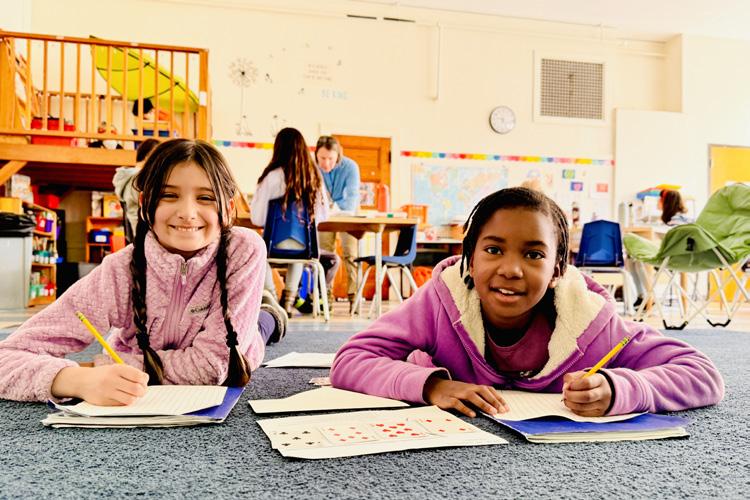
a culture of kindness, giving early adolescents the tools and confidence they need to thrive.
• A rich arts program that encourages creativity and expression
• Spanish beginning in preschool
• An award-winning anti-bias curriculum that fosters empathy and global awareness
At Lesley Ellis, children grow not just as students, but as people. They are challenged, supported, and inspired every step of the way.
We’d love to meet your family. Join us for our Open House on November 2— register at www.lesleyellis.org.
Applications for the 2026–2027 school year are now open, with financial assistance available.

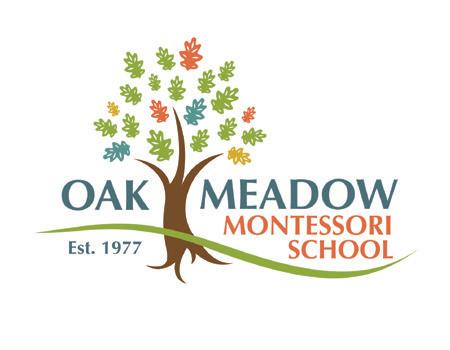
Step into any Oak Meadow classroom and you’ll immediately sense something special. From toddlers to 8th graders, students are deeply engaged—quiet investigators working with purpose alongside enthusiastic collaborators. They are guided, not directed. Freedom is balanced with intention, kindness with confidence, and meaningful work drives steady progress and joyful discovery.
At Oak Meadow Montessori School in Littleton, MA, children ages 15 months–Grade 8 learn in a nurturing, nature-rich environment grounded in authentic Montessori principles. Multi-age classrooms foster independence, collaboration, and mentorship, while experienced educators guide each child’s academic and socialemotional growth. Year-round outdoor learning and hands-on naturalist programs inspire curiosity, resilience, and a love of exploration.
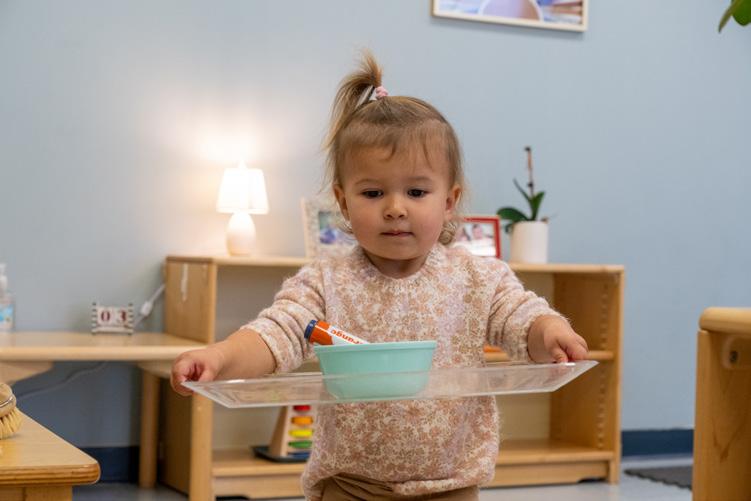
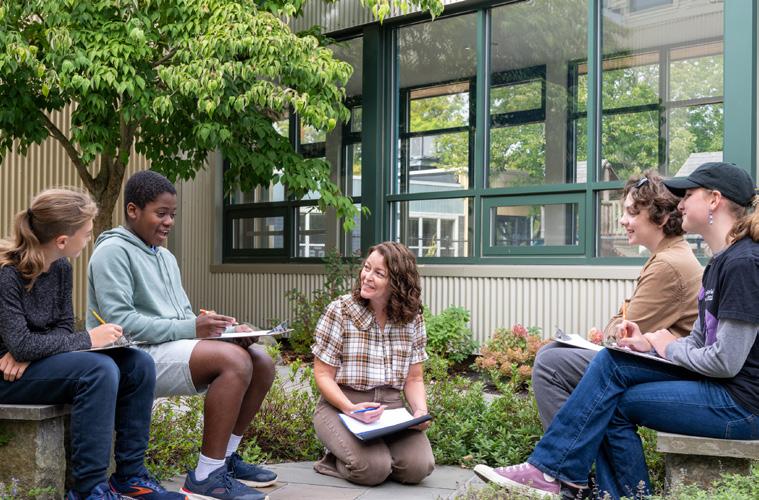
Our curriculum integrates STEM, Spanish, music, fine and performing arts, and experiential learning, helping students become confident learners and compassionate citizens. Fully accredited and rooted in a caring community, Oak Meadow empowers children to thrive— academically, socially, and as stewards of their world.
Join us for an Open House on Saturday, October 18 or Saturday, November 15 from 10:00 a.m.–12:00 p.m. Tour our campus, meet our teachers, and see how Oak Meadow can spark your child’s potential.
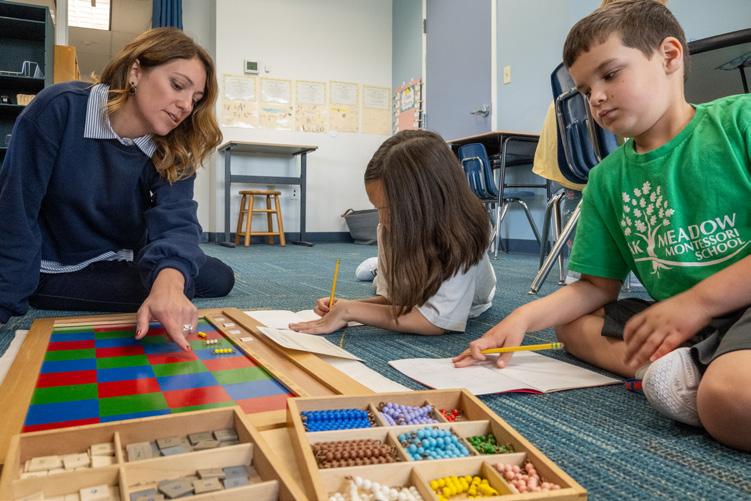
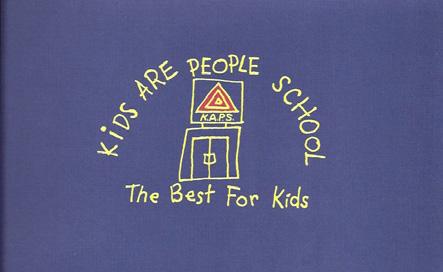
Kids Are People School has been a trusted part of the Boston community for over 45 years, offering a warm, inclusive, and enriching early childhood education for generations of families. Conveniently located in Kenmore Square, with MBTA buses and the Green Line right outside the door, our school serves families from across Boston— including those affiliated with nearby hospitals, Boston University, and the Fenway Five colleges.
Our licensed EEC program includes Preschool, Pre-Kindergarten, and Transitional Kindergarten, all built on a foundation of nurturing care, structured learning, and joyful discovery. Our curriculum blends structured daily routines with ample free play, ensuring children are engaged, supported, and given space to grow intellectually, emotionally, and socially. We believe that early education should spark wonder, creativity, and a lifelong love of learning.
We are proud to announce our new Toddler Room, expanding our services to meet the needs of even more young learners. This vibrant, welcoming space is designed to provide a gentle introduction to the school environment, with routines that build confidence, encourage independence, and promote developmentally appropriate exploration. With small class sizes and a highly skilled, compassionate staff, each child receives individualized attention and care, ensuring a strong foundation for future success.

For over four decades, we’ve lived by the belief that childhood is a time to be celebrated and nurtured. Kids Are People School is more than just a preschool—it’s a home away from home where children are seen, heard, and supported every step of the way. Families value our longstanding reputation, strong community ties, and the joyful, welcoming environment we create every day.
Our alumni often return with their own children, a true testament to the love and legacy we’ve built together. We invite you to visit our school and experience what makes our community so special. Now enrolling in our new Toddler Room, as well as our established Preschool, Pre-K, and TK programs. Schedule a tour today and see how we’ve been loving and caring for Boston kids since 1980.

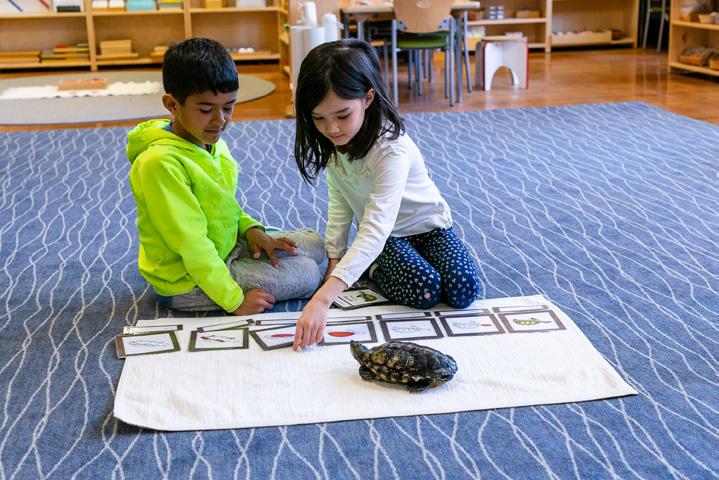
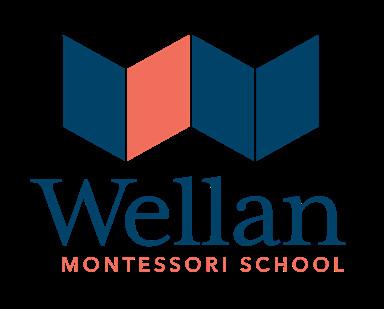
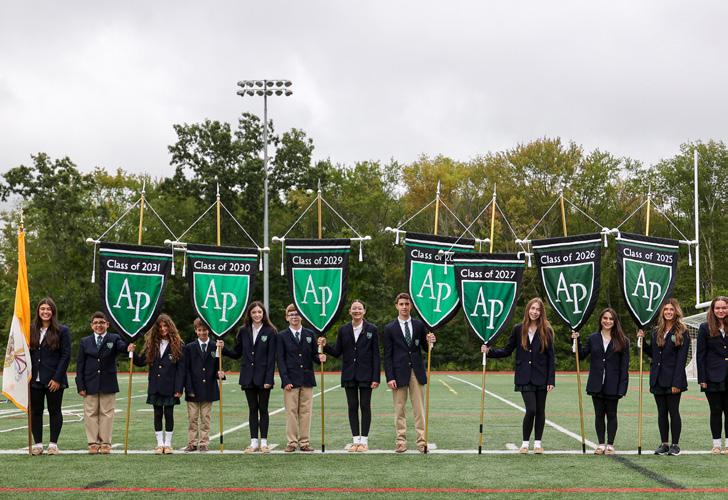
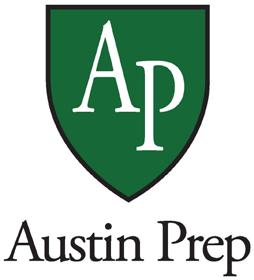
Discover the power of hands-on learning at Wellan, where students are inspired, challenged, and empowered to reach their highest potential. Located in Newton Centre, Wellan Montessori School is an independent, all-gender school serving students from 15 months through Grade 8. This community-oriented school draws families from diverse backgrounds and currently includes students from nearly 40 surrounding towns. Wellan's Montessori-Progressive curriculum grants students the agency to forge their own personalized path, guided by thoughtful, highly-trained educators. Engaging co-curriculars, like athletics, performing and visual arts, woodworking, and technology, are incorporated into the daily schedule. Wellan emphasizes innovation, community service, social justice, and empathy throughout the student experience. Graduates emerge as capable leaders who demonstrate strong academic skills that enable them to succeed at top-tier independent and public high schools.
Interested in learning more? Visit wellan.org or contact Admissions directly at admissions@wellan.org. Need-based financial assistance is available.
An Austin Prep education is preparation for the journey of life. The school’s mission is “to inspire hearts to unite, minds to inquire, and hands to serve.” It’s not the formal curriculum, however, that prepares students to go the distance. It’s the unwritten curriculum of veritas, unitas, and caritas (truth, unity, love) that Austin Prep imprints on the hearts of graduates that guides them on their inner journey.
The school’s academic program for young men and women covers seven years, from grade 6 through grade 12, and because of this extended time shared with students, the school has the ability to offer wide-ranging opportunities for academic, social, emotional, physical, and spiritual growth at critical stages of a student’s adolescent development.
“At Austin Prep, we are on a journey that is life-changing and important,” says head of school James Hickey, Ph.D. “Our patron, St. Augustine, embarked on a journey for the truth. At our core is an institution on the same journey, committed to exemplary teaching and learning.”
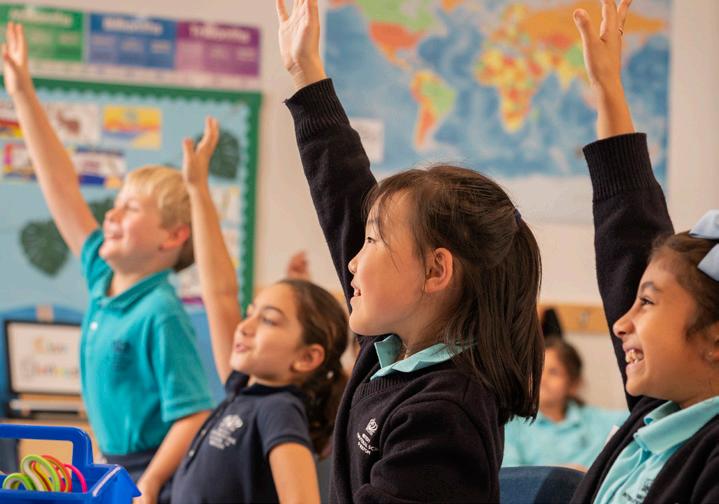
At the British International School of Boston, we provide your child with a unique and rigorous education through our carefully selected international curricula and personalized approach to learning.
Our dedicated teachers tailor the educational experience to meet the individual needs of each student, helping them achieve more than they ever thought possible. In our diverse and welcoming international community, children from toddlers through high school are inspired to reach their highest potential and grow into confident global citizens, ready to create their future in an interconnected world.
As part of the Nord Anglia Education family of schools, our students benefit from collaborations with worldrenowned institutions such as MIT, The Juilliard School, UNICEF, and IMG Academy, amplifying their learning experiences and offering global perspectives.
Discover the difference at BISB, where your child's journey to excellence begins. Boston (Jamaica Plain), 617-522-2261, bisboston.org.
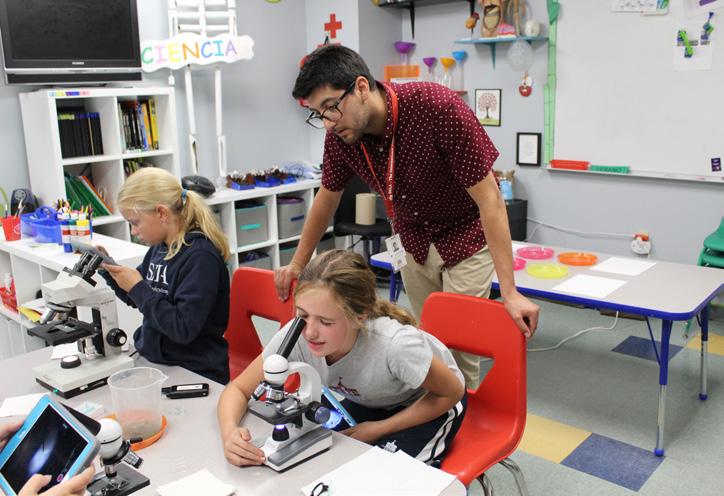
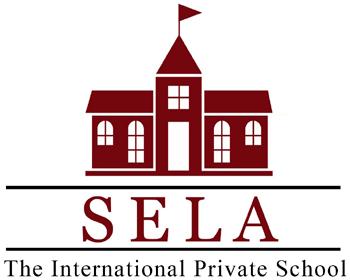
At SELA, we provide each child with a unique and personal learning experience. Every student will receive a full immersion education of the highest academic quality, through an engaging immersion curriculum which inspires and motivates them to strive for knowledge and understanding and prepares them for challenging, higher level work. SELA students will grow to be bilingual, globally competent citizens.
SELA is proud to offer the School of Early Global Education for children ages 3 months to 5 years. The Elementary School is for children in Kindergarten through grade 6. Both schools are located in our bright, friendly and safe 20,000 square foot facility, situated in the beautiful Shipyard area of Hingham.
At SELA, we are Creative; Confident; Bilingual.
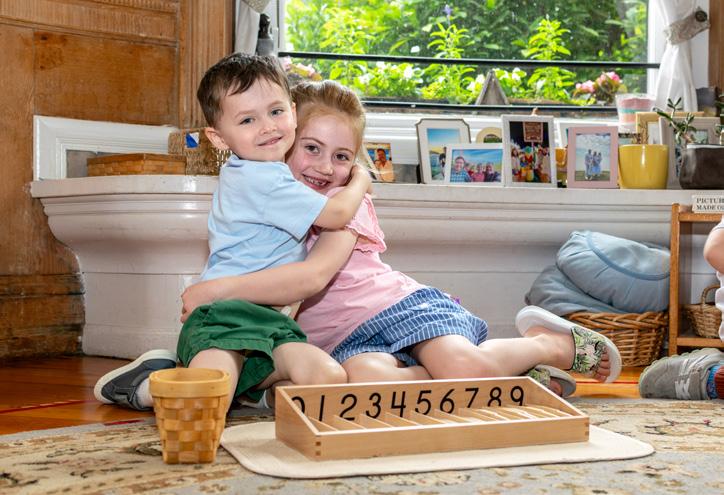
Kingsley is an independent day school for Toddler through Grade 6. Merging Montessori principles with cutting-edge educational practices, Kingsley delivers a personalized learning experience that nurtures each child's unique talents and curiosity. Their commitment to fostering academic excellence in a supportive environment ensures that students not only meet but exceed their personal best.
Campus Locations:
30 Fairfield Street
26 Exeter Street
Boston, MA 02116
617-226-4900
www.kingsley.org
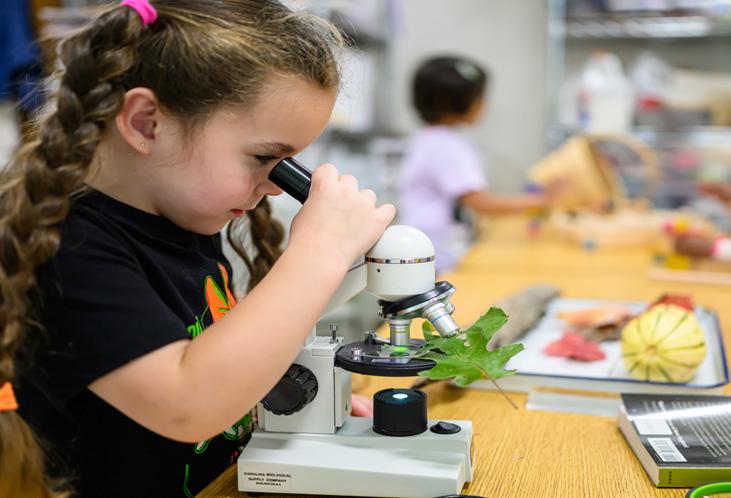
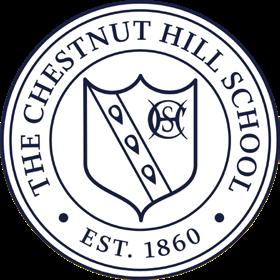
428 Hammond Street
Chestnut Hill, MA 02467
617-566-4394
www.tchs.org
Kingsley emphasizes progressive, inquirybased learning that promotes both academic and social growth. Students are wellprepared for future success, whether in top independent or public schools. Teachers have a deep understanding of each child and a collaborative approach with parents, cultivating resilient explorers, confident learners, and empathetic citizens.
At The Chestnut Hill School, an independent school for children ages 3 through grade 6, we believe childhood optimism and enduring curiosity can transform the world. Students find meaning and joy in a diverse community that encourages all to question, to take risks, and to think critically as they grow into intellectually skilled, empathetic, self-empowered young learners. As a leader in early childhood and elementary education, The Chestnut Hill School offers a rigorous math and literacy program along with special subjects ranging from art and music to science, technology and Spanish. An extended day program provides the chance for students to enjoy extracurricular activities such as karate, robotics, chess, and athletics. The Chestnut Hill School is committed to offering financial assistance to qualified families.
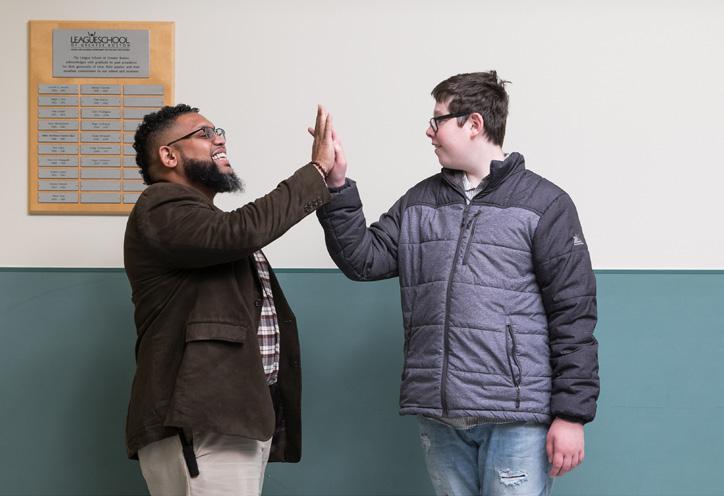
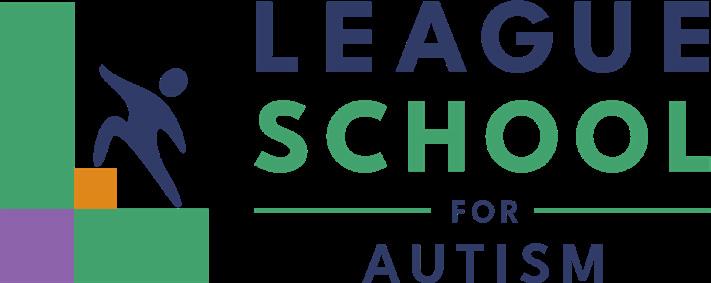
League School for Autism is a missiondriven organization that has maintained a vision of providing students on the Autism Spectrum with the respect, support, and opportunities needed to grow, learn, and prepare for the adult world.
League School is dedicated to excellence in autism education and individual development. With both Day and Residential programs, League School takes a whole-child approach to developing and implementing an individualized multidisciplinary educational, behavioral, and residential program for each student.
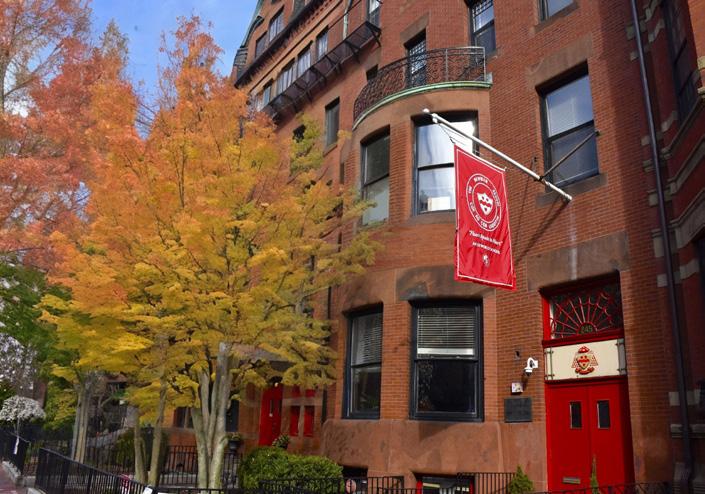
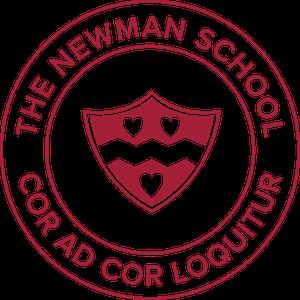
Our In-person open house is on Sunday, October 26, 2025
- Middle School | 9:00 - 11:30 a.m. - Upper School | 12:30 - 3:00 p.m.
At Newman, we live our motto, “Heart Speaks to Heart.” Faculty relationships are the foundation of students’ intellectual exploration and personal growth. Our International Baccalaureate pedagogy cultivates students’ abilities to think critically, ask questions, learn across disciplines, and develop research skills to thrive in college and become global contributors. Founded in 1945, located on Marlborough Street, in the heart of Boston’s Back Bay neighborhood, The Newman School serves students from grades 7-12 from Boston, surrounding towns, and 40 countries. We offer the only comprehensive boarding program in the city. Our students participate in activities and sports, pursuing their passions in the “education city," and embrace Boston as their campus to engage in meaningful community service and countless activities. Students develop a global and community mindedness that enriches their ability to make an impact in the world. The warm and caring environment and small class sizes make Newman a place where students are seen and valued.
Reach us at admissions@newmanboston.org.
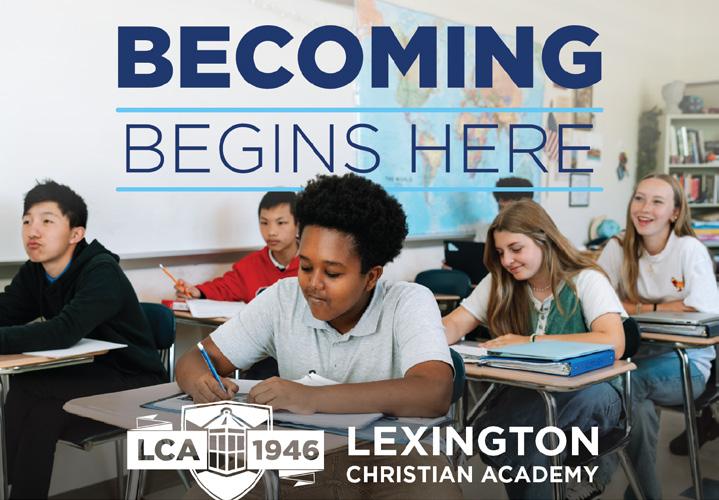
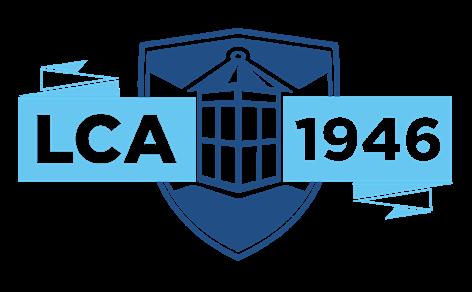
48 Bartlett Avenue Lexington, MA 02420 781-862-7850
www.lca.edu
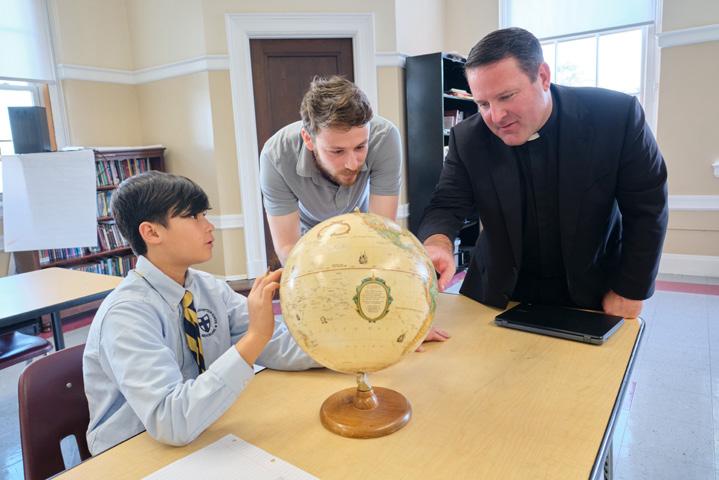
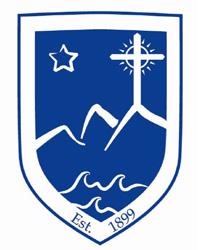
67 Harvard Street Brookline, MA 02445 617-566-7184
www.stmarys-brookline.org
Since 1946, Lexington Christian Academy (LCA) has provided exceptional academic preparation, operating under the belief that faith and learning are inseparable and indispensable. We use our faith to build a stronger foundation of knowledge, critical thinking, curiosity, and a sincere quest for truth.
LCA holds an equal commitment to an excellent academic experience, and to an authentic and meaningful integration of faith into every aspect of learning. With weekly Chapel gatherings and connections to faith drawn in every classroom, LCA faculty take the work of spiritual formation seriously, seeking to develop faithful stewards and leaders of the emerging generation.
Saint Mary of the Assumption School is a diverse global community of kindness and conscience, rooted in Brookline Village, focused on spiritual and intellectual growth, moral development, and academic excellence.
Our school offers a rich and well-rounded curriculum. Through the advancement of our STEM education program, athletic opportunities, world language education, music and arts programs, our students are provided with a wide variety of areas to grow and explore their individual interests. Our rich curriculum allows our students to matriculate to competitive secondary schools where they thrive following their graduation from St. Mary's.
We are continuing to grow our Early Childhood Education program to begin educating students even earlier in their academic journeys.
We are a school rooted in community values with many events throughout the year that bring our community together, making St. Mary's feel like a true family.
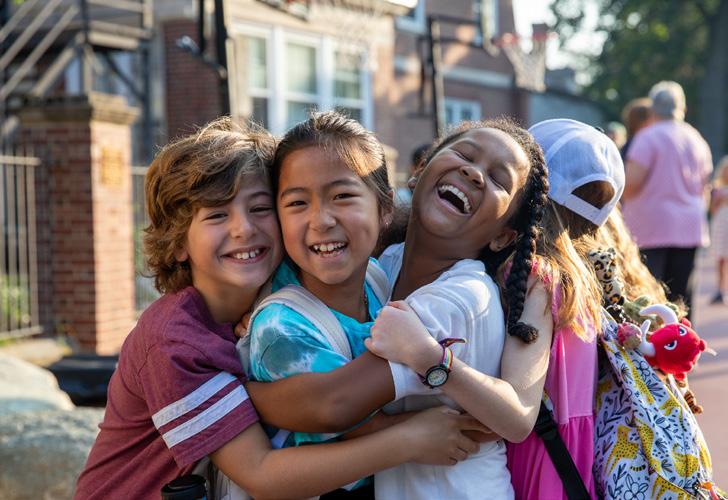

Brimmer and May is a PK–12 independent day school that fosters active learners, compassionate leaders, and ethical global citizens. The ideal size of our School allows for personalized instruction in a student-centered, project-based learning environment. We’re big in terms of our ambitions for each student’s growth, academic achievements, and leadership skills. We’re broad in terms of our diversity, strengthened by a commitment to equity and anti-bias education. We’re huge in terms of the breadth, depth, and variety of curricular options and extracurricular opportunities. Yet we’re small enough to have a true feeling of connection with one another and to give everyone a chance not only to participate but to shine. Stop by our campus in historic Chestnut Hill and see why Brimmer just might be the perfect fit for your student.
Visit our Open House on Sunday, October 19 or Thursday, November 13, and learn how our students are inspired to learn, encouraged to explore, and empowered to lead.

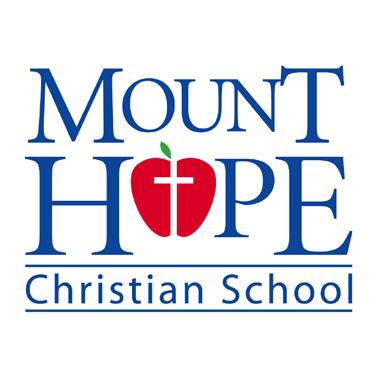
Mount Hope Christian School has been a leader in Christian education for 40 years. As a non-profit, private school, we are honored to work together with parents and families from surrounding communties to provide children with a solid foundation on which to build.
Our goal is to educate children in five areas: academically, socially, physically, emotionally and most importantly, spiritually.
Our diverse staff brings a wealth of experience, education, and love of teaching to each individual child.
Our mission is to graduate Godly young men and women who are equipped with the skills needed to become future leaders.
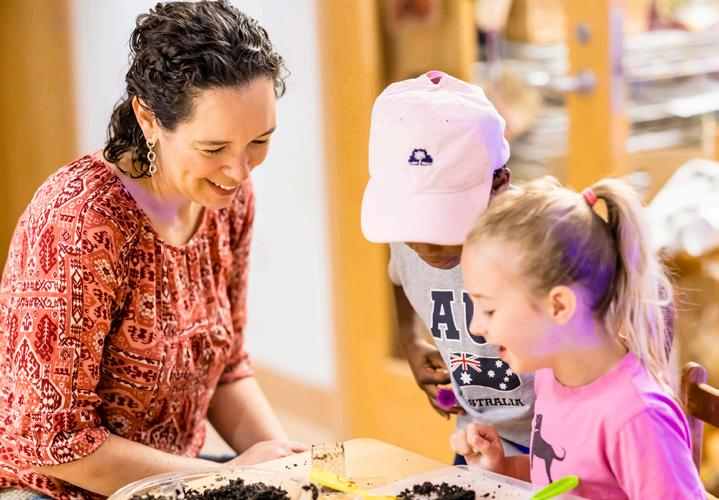
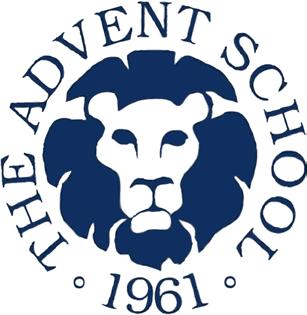
15 Brimmer Street Boston, MA 02108
617-742-0520
www.adventschool.org

The Advent School is a progressive, coeducational independent school for students ages four to 12 in pre-Kindergarten through Sixth Grade. Reggio Emilia inspired, the co-teaching teams model the collaboration we encourage among students during long-term investigations and small group work. With outstanding academics, small class sizes, and an emphasis on diversity and social justice, our students are prepared to enter middle school at various independent, public, and private schools in the greater Boston area. In addition to the thematic curriculum at each grade level, Advent students have classes in art, library, music, physical education, science, Spanish, and yoga embedded into their weekly routine.
Jackson Walnut Park School offers a values-based, whole-child education rooted in Catholic tradition and guided by the motto: “Growing hearts, minds, and futures together.” Inspired by the Sisters of St. Joseph of Boston, the school fosters academic excellence, faith, and compassion in an inclusive interfaith environment. Students are prepared for purposeful lives through hands-on learning, strong academics, and thoughtful character development.
The school’s two divisions—Montessori early childhood and elementary—create a seamless educational journey. The Montessori program nurtures confidence and curiosity through purposeful play, while the elementary program blends rigorous academics with values-based learning, encouraging leadership and service.
www.jwpschools.org
Jackson Walnut Park remains committed to strengthening its mission, advancing its profile, and creating transformative experiences that shape compassionate, engaged learners prepared for their next academic steps.
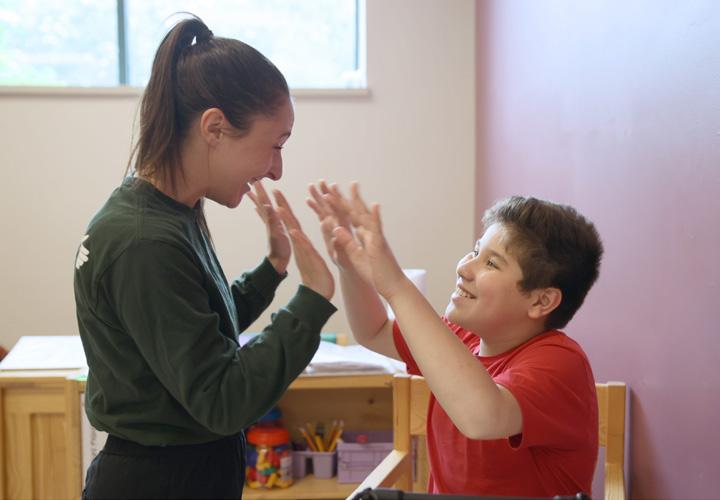
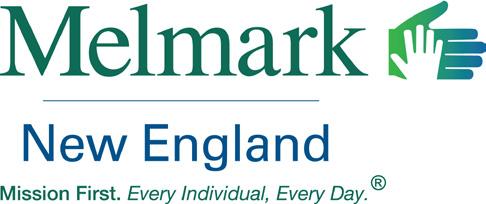
461 River Road Andover • 978-654-4300
703 Technology Center Drive Stoughton • 781-847-1446
www.melmark.org/newengland

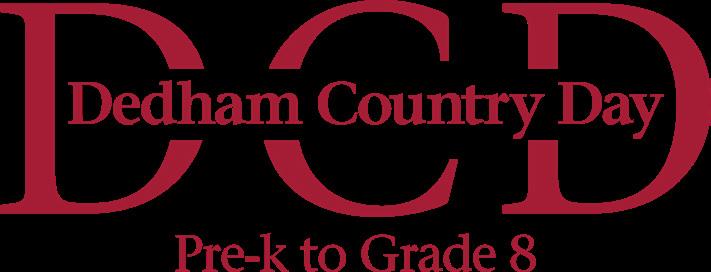
Melmark serves children with autism, intellectual and developmental disabilities and their families by providing exceptional evidence-based specialized education and applied behavior analytic services to every child, every day. Melmark has partnered with school districts and families for over 25 years and takes great pride in the enormous progress students make each year.
Melmark’s Andover and Stoughton day schools are renowned for special education service quality and clinical expertise serving the most complex students between the ages of 3 to 22, offering enriched student ratios, and comprehensive, integrated Individualized Education Program (IEP) development and services within an Applied Behavior Analysis (ABA) framework.
Dedham Country Day School believes that balance matters— in learning and in life. We combine challenge with support, pedagogical tradition with innovation, and robust academics with outstanding arts and athletics to create a program that is balanced and whole. Children learn who they are as diverse individuals and as part of a broader community. Acceptance is a given, and children find encouragement in every connection they make. It’s a community that nurtures, nudges, and gives. That’s how DCD grows “whole” children with the intellectual and emotional capacity to contribute to their world and enjoy meaningful lives. From Pre-K to Grade 8, students tackle hands-on projects, collaborate, take risks, solve problems, and, most of all, enjoy their experience.
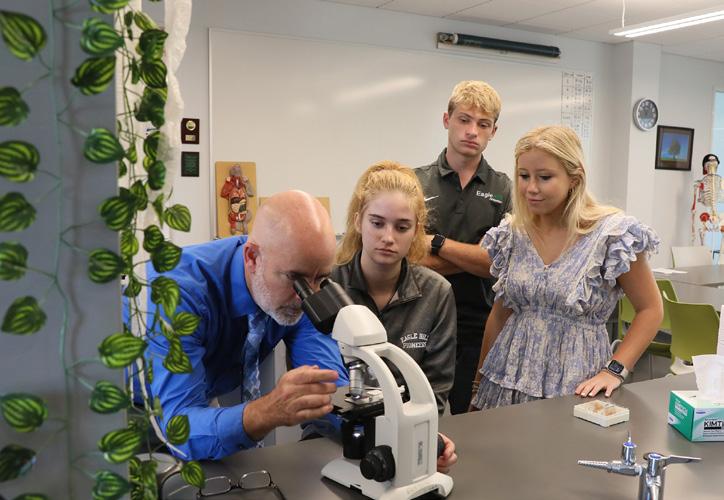
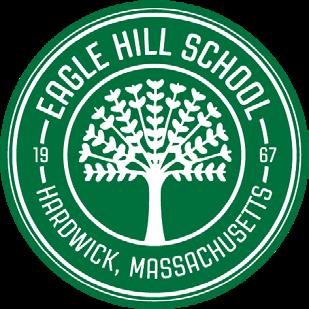
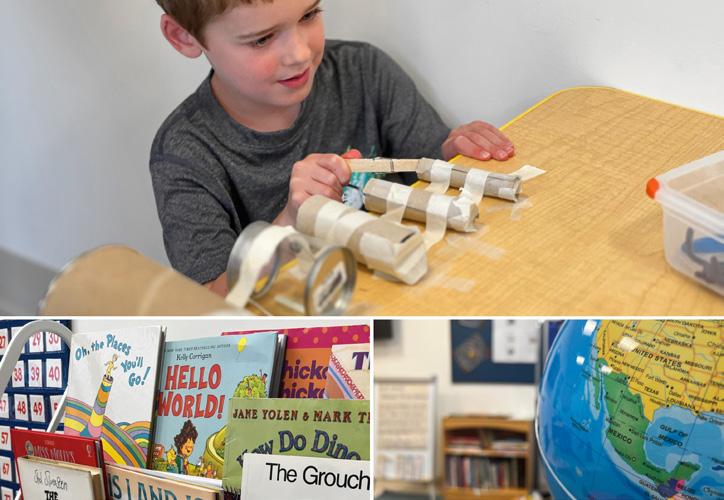

Eagle Hill School is a co-educational, collegepreparatory boarding school for students in grades 8-12, offering individualized education for those with diverse learning profiles, including dyslexia, dysgraphia, dyscalculia, and ADHD.
At Eagle Hill School, we understand that our students are blessed with multiple learning abilities and that it is our responsibility as educators to identify, celebrate, and support each student in capitalizing on his or her individual genius. Moreover, instead of merely providing support within a traditional classroom setting, Eagle Hill School designs classes around each student’s particular strengths and needs. By emphasizing individualized attention within the context of a small classroom environment, Eagle Hill provides for the academic, social, and personal growth of each student.
Inventor Academy, located in Bedford, MA, is a private primary school that emphasizes a STEMfocused, arts-integrated, and wellness-centered academic program. Our mission is to create a joyful, active learning environment that inspires curiosity, celebrates creativity, and encourages reflection. We aim to develop inquisitive, creative, and empathetic young people who are empowered to seek solutions and understand the world around them.
We foster critical thinking, empathy, and resilience in our students, instilling a passion for learning and the confidence to engage constructively in a changing world. We provide students with the tools and knowledge to embrace curiosity, live adventurously, and grow through individualized challenges and rigor.
At Inventor Academy, we believe in harnessing children’s natural instincts for play and movement to amplify learning, rather than suppressing these instincts. We are currently accepting rolling applications for the 2025-2026 school year as well as the 2026-2027 school year. For more information, you can contact us at 781-757-0600, via email at info@inventoracademy.us or at our website.
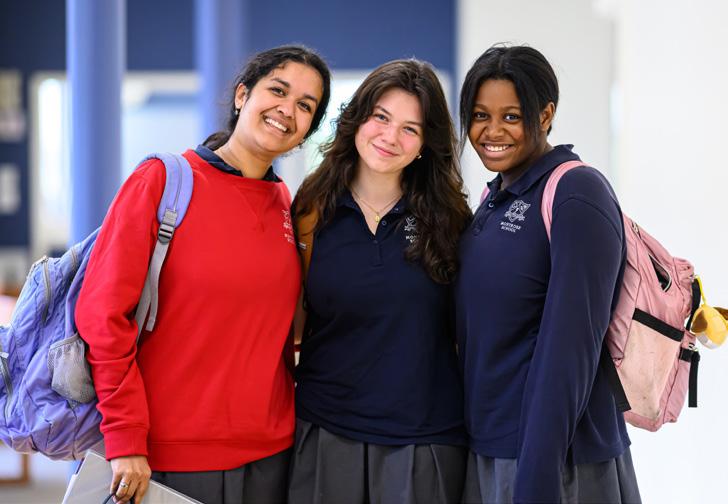

At Montrose, every student is called to greatness. The school’s rich liberal arts curriculum empowers girls to ask life’s biggest questions and prepares them to thrive at top universities. They graduate ready to navigate any challenge or seize any opportunity. Montrose’s nationally recognized LifeCompass™ character and leadership program is integrated into every aspect of school life. As a two-time National School of Character, the school partners with parents to help girls develop the habits of mind, heart, and character they need to flourish — and to shape the world for good.
Head of school Katie Elrod often reminds the girls, “You are unique, unrepeatable, and called by God to greatness. You are here for a purpose.”
As one alumna says, “Montrose taught me how to consider arguments critically, how to disagree without being disagreeable, and how to ask questions — and actually listen to the answers — with people from whom I differ.”
Experience the Montrose difference for yourself! RSVP at montroseschool.org/oh2025 for an Open House on Oct. 19 at 1 p.m. and Curriculum Night on Nov. 12 at 6 p.m.
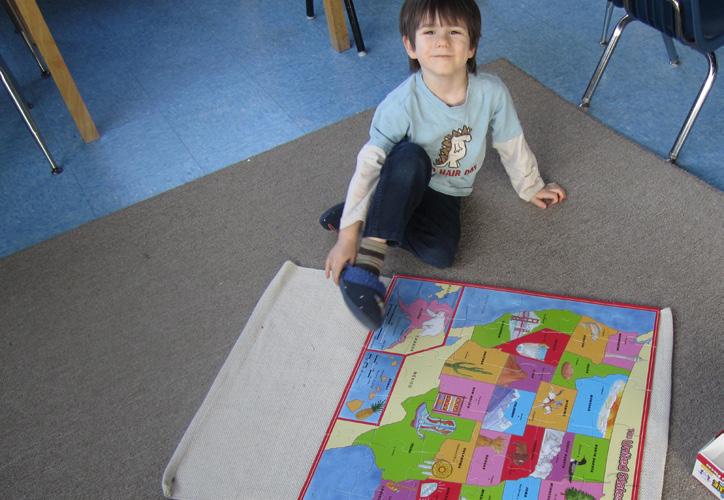

Norwood Montessori School (NMS) provides high-quality Montessori education for children ages 14 months to 18 years. Our integrated curriculum supports growth across all areas— academic, emotional, physical, and cognitive— during the most formative years of development. In multi-age classrooms, students explore Sensorial, Language, Math, Science, Cultural Studies, Art, Music, Spanish, Practical Life, and gross motor activities, all within a nurturing and thoughtfully prepared environment.
As students progress into the older grades, the curriculum expands to include STEAM subjects and hands-on life skills such as budgeting, meal planning, cooking, woodworking, and basic electrical work. At every stage, NMS fosters independence, confidence, and a lifelong love of learning—giving parents peace of mind that their child is thriving in a caring, enriching environment.
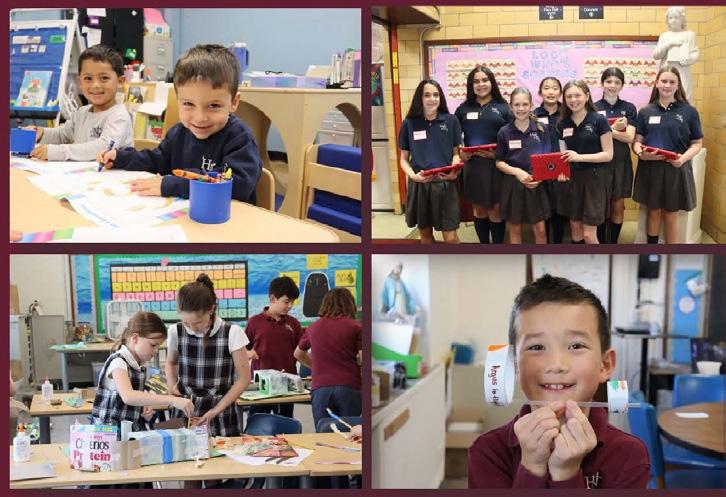
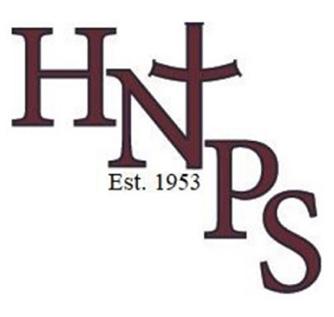
At Holy Name Parish School, we believe education is nurturing the whole child. We focus on academics, social emotional wellbeing and spiritual development of every student. Our curriculum is designed to inspire curiosity, build confidence, and instill strong moral values, preparing students to succeed in a dynamic and ever-changing world. From early childhood through Grade 6, we emphasize handson, experiential learning that fosters creativity, critical thinking, and collaboration.
Our dedicated faculty and staff work in partnership with families to create a supportive and inclusive community where every student is encouraged to grow academically, socially, and spiritually. By integrating innovative programs in STEM, literacy, social-emotional development, and service, we empower our students to become compassionate, lifelong learners who live Holy Name’s values in meaningful ways.

Tremont School offers a unique, researchbased educational experience designed to ignite each student’s passion for learning. We tailor our approach to every learner’s strengths and growing edges, helping students thrive both academically and personally. Our integrated, inclusive environment fosters trust, connection, and independence—core values that guide our vibrant community.
At Tremont, students are empowered to become engaged, joyful learners and compassionate global citizens. Through a personalized and innovative curriculum, we honor individuality and support critical thinking, creativity, and emotional growth. We partner closely with families to ensure every child’s journey reflects their unique potential and promise. Tremont is more than a school— it’s a dynamic learning community where students build confidence, discover purpose, and make meaningful contributions to the world.


Melmark New England
461 River Road
Andover • (978) 654-4300
www.melmark.org/newengland See pgs 35, 58
Arlington
Lesley Ellis School
34 Winter St.
Arlington • (781) 641-5987
www.lesleyellis.org See pgs 17, 48
Montessori Escuela Belmont
628 Trapelo Road
Belmont • (508) 358-1064
www.montessoriescuela.com See pgs 2, 47
The Advent School
15 Brimmer Street
Boston • (617) 742-0520
www.adventschool.org See pgs 33, 57
British International School of Boston
416 Pond Street
Boston • (617) 522-2261
www.bisboston.org See pgs 25, 52
Kids Are People School
530 Commonwealth Aveue
Boston • (617) 266-0028
See pgs 5, 50
Kingsley Montessori School
30 Fairfield Street
26 Exeter Street
Boston • (617) 226-4927
www.kingsley.org See pgs 25, 53
Park Street School
One Park Street
Boston • (617) 523-7577
www.parkstreetschool.org
The Gardner School
66 Wood Rd
Braintree • (781) 829-3750 www.thegardnerschool.com/schools/braintree
See pgs 13, 45
Panda Cub Academy
1200 Boylston Street
Brookline • (617) 614-7709 www.pandacubacademy.org
St. Mary of the Assumption School
67 Harvard Street
Brookline • (617) 566-7184
www.stmarys-brookline.org See pgs 33, 55
Mount Hope Christian School
3 McGinnis Drive
Burlington • (781) 272-1014 www.mounthopeschool.org See pgs 31, 56
The Gardner School
109 First Street, Suite 102
Cambridge • (617) 766-5702 www.thegardnerschool.com/schools/ cambridge See pgs 13, 45
Brimmer and May School
69 Middlesex Road
Chestnut Hill • (617) 566-7462 www.brimmer.org See p 56
The Chestnut Hill School
428 Hammond Street
Chestnut Hill • (617) 566-4394 www.tchs.org See pgs 29, 53
PreK(2.9)-8 Varies 230
$33,960$38,220 MSM, NEAYC, MA Dept. of Early Education & Care
- K1(3.9):
Dedham Country Day School
90 Sandy Valley Road
Dedham • (781) 329-0850
www.dedhamcountryday.org See pgs 31, 58
The Gardner School
780 Washington Street
Dedham • (781) 613-2312 www.thegardnerschool.com/schools/dedham See pgs 13, 45
Applewild School
27 Jackson Road
Devens • (978) 342-6053 www.applewild.org
Applewild School
120 Prospect Street
Fitchburg • (978) 342-6053 www.applewild.org
SELA: The International Private School
75 Sgt William B Terry Drive Hingham • (781) 741-5454 www.suescuela.com See pgs 29, 52
Lexington Montessori School
130 Pleasant Street
Lexington • (781) 862-8571 www.lexmontessori.org
Waldorf School of Lexington 739 Massachusetts Avenue
Lexington • (781) 860-5208 www.thewaldorfschool.org
Oak Meadow Montessori School 2 Old Pickard Lane
Littleton • (978) 486-9874
www.oakmeadow.org See pgs 19, 49
Woodside Montessori Academy
350 Village Street
Millis • (508) 376-5320 www.woodsideacademy.com
Thacher Montessori School
1425 Blue Hill Avenue
Milton • (617) 361-2522 thacherschool.org
Jackson Walnut Park School
200 Jackson Road
Newton • (617) 202-9772 www.jwpschools.org See pgs 35, 57
Wellan Montessori School
80 Crescent Avenue
Newton Centre • (617) 969-4488 www.wellan.org See pgs 27, 51
SELA: The International Private School
137 Washington St
Norwell • (781) 741-5454 www.suescuela.com See pgs 29, 52
Norwood Montessori School 462 Walpole Street
Norwood • (781) 762-3700 www.norwoodmontessorischool.com See pgs 37, 60
Melmark New England
703 Technology Center Drive
Stoughton • (781) 847-1446 www.melmark.org/newengland See pgs 35, 58
Walpole League School for Autism
300 Boston Providence Turnpike
ToddlerGrade 8 10:1 120
Spanish
$20,000$36,000 FA Available AISNE, AMS, AMI, MSM
Toddler-6th Varies 225 Catholic Mandarin, Spanish, Latin $20,900$27,550 FA Available AMS, NCEA, NEASC
Toddler-8th Varies 327 Independent $34,500$40,100 FA Available AISNE, AMS
Infant -PK Varies 140 Independent Spanish Varies FA Available
ToddlerGrade 12 8:1 80
Montessori Spanish, Arabic, ASL Before & After Care Available
$13,500 FA Available AMS, MSM
Ages 3-22 2:1
Special Needs Contact for information. MA Department of Elementary and Secondary Education
Walpole • (508) 850-3900 www.leagueschool.org See pgs 7, 54 3-22 Years 4:1 110 Independent Call for Info. DESE, DEEC, MAAPS, NAPSEC, NCASES
German International School Boston Lower Campus (Preschool - Grade 3) 46 Belmont Street
Watertown • (617) 783-2600 www.gisbos.org See pgs 15, 46
PS-12 8:1 265
Independent German, English, Spanish, French
$27,300$30,995 FA Available AISNE, DAS, MINT, Official German School Abroad (internationally recognized high school diploma)
Montessori Escuela Wayland
107 Concord Road
Wayland • (508) 358-1064
www.montessoriescuela.com See pgs 2, 47
Tenacre Country Day School
78 Benvenue Street
Wellesley • (781) 235-2282 www.tenacrecds.org
The Fessenden School
250 Waltham Street
West Newton • (617) 630-2300
www.fessenden.org
Holy Name Parish School
535 West Roxbury Parkway West Roxbury • (617) 325-9338
www.holynameparishschool.org
See pgs 39, 61
Tender Loving Care Childcare Center
101 River Road
Weston • (781) 703-5088
www.tenderlovingcarechildcarecenters.com
See pgs 20, 43
The Gardner School
739 Pleasant Street
Weymouth • (781) 277-0937
www.thegardnerschool.com/schools/weymouth
See pgs 13, 45
Tender Loving Care Childcare Center
23 Warren Avenue, Suite 180
Woburn • (781) 281-2983
www.tenderlovingcarechildcarecenters.com
See pgs 20, 43
Bancroft School
110 Shore Drive
Worcester • (508) 853-2640
www.bancroftschool.org See pgs 3, 41
- 7 yrs

Melmark New England
461 River Road
Andover • (978) 654-4300
www.melmark.org/newengland See pgs 35, 58
Lesley Ellis School
34 Winter St.
Arlington • (781) 641-5987
www.lesleyellis.org See pgs 17, 48
Inventor Academy
54 Middlesex Turnpike
Bedford • (781) 757-0600
www.inventoracademy.us See pgs 30, 59
Montessori Escuela Belmont
628 Trapelo Road
Belmont • (508) 358-1064
www.montessoriescuela.com See pgs 2, 47
Boston
The Advent School
15 Brimmer Street
Boston • (617) 742-0520
www.adventschool.org See pgs 33, 57
Boston Trinity Academy
17 Hale Street
Boston • (617) 364-3700 www.bostontrinity.org
British International School of Boston
416 Pond Street
Boston • (617) 522-2261 www.bisboston.org See pgs 25, 52
German International School Boston Upper Campus (Grades 4-12)
57 Holton Street
Boston • (617) 783-2600 www.gisbos.org See pgs 15, 46
Kingsley Montessori School
30 Fairfield Street
26 Exeter Street
Boston • (617) 226-4927 www.kingsley.org See pgs 25, 53 ToddlerGrade
The Newman School
247 Marlborough Street
Boston • (617) 267-4530 www.newmanboston.org See pgs 21, 54
Park Street School
67 Brimmer Street
Boston • (617) 523-7577 www.parkstreetschool.org Toddler-G6 Co-ed EL:10/1
St. Mary of the Assumption School
67 Harvard Street
Brookline • (617) 566-7184 www.stmarys-brookline.org See pgs 33, 55
Mount Hope Christian School
3 McGinnis Drive
Burlington • (781) 272-1014
www.mounthopeschool.org See pgs 31, 56
15m - G5 All Gender Varies 330
(2.9)-K1 (3.9): $13,120 K-8: $9,375 FA Available
IBO, NEASC, AISNE
AISNE, DAS, MINT, Official German School Abroad (internationally recognized high school diploma)
AISNE, CSEE NEASC, NAIS IB World School
EEC
Brimmer and May School
69 Middlesex Road
Chestnut Hill • (617) 566-7462 www.brimmer.org See p 56
The Chestnut Hill School
428 Hammond Street
Chestnut Hill • (617) 566-4394 www.tchs.org See pgs 29, 53
Tremont School
575 Virginia Road
Concord • (781) 235-4805 www.tremontschool.org See pgs 37, 61
Dedham Country Day School
90 Sandy Valley Road
Dedham • (781) 329-0850 www.dedhamcountryday.org See pgs 31, 58
Ursuline Academy
85 Lowder Street
Dedham • (781) 493-7726 www.ursulineacademy.net
The Bement School
94 Old Main Street
Deerfield • (413) 774-7061
https://bement.org
Riverview School
551 Route 6A
East Sandwich • (508) 888-0489 www.riverviewschool.org
Applewild School
120 Prospect Street
Fitchburg • (978) 342-6053
https://applewild.org
Eagle Hill School
242 Old Petersham Road
Hardwick, MA • 413-477-6000
www.eaglehill.school See pgs 21, 59
K-9 All Gender 8:1
French, Chinese, Spanish, Latin
6-12 grade plus post HS All Gender 8:1 200 Special Needs, Boarding and Day Options
PS-9
Co-Ed 6:1 300
Spanish Boarding and Day Options
$42,950$65,950
8-12
All Gender 4:1 220 Independent STEM, Arts, ADHD, Dyslexia, Learning Diversity
AISNE, EMA, AISAP, CASE, NEASC, NEPSAC
$25,431$33,918 (plus Boarding) FA Available
NAIS, NCEA, AISNE, ICGS
AISNE, TABS, JBS, NAIS
Call for Info. FA Available
DESE, EEC, NEASC
$25,500 - $35,800 (Day) FA Available
$67,500 (Day) - $93,900 (Boarding) FA Available
AISNE, NAIS, JBSA, SBSA, TABS
NEASC, NAIS, IB
SELA: The International Private School
75 Sgt William B Terry Drive
Hingham • (781) 741-5454
www.suescuela.com See pgs 29, 52
Meridian Academy
54 Brookside Avenue
Jamaica Plain • (617) 277-1118
www.meridianacademy.org See pgs 11, 44
Lexington Christian Academy
48 Bartlett Avenue
Lexington • (781) 862-7850
www.lca.edu See pgs 8, 55
Lexington Montessori School
130 Pleasant Street
Lexington • (781) 862-8571 www.lexmontessori.org
Waldorf School of Lexington 739 Massachusetts Avenue
Lexington • (781) 860-5208 www.thewaldorfschool.org
Oak Meadow Montessori School
2 Old Pickard Lane
Infant -6th
Grade All Gender Varies 250 Independent Spanish, Mandarin Chinese, English Varies FA Available
5-12 All Gender 5:1 95 Independent French, Spanish $0 - $39,400 FA Available AISNE, NAIS
6-12 All Gender 8:1 334 Non Denominational French, Spanish
Toddler-G8
All Gender 4:1 Toddler
Littleton • (978) 486-9874 www.oakmeadow.org See pgs 19, 49 ToddlersGrade 8
Montrose School
29 North Street
Medfield • (508) 359-2423 www.montroseschool.org See pgs 39, 60
Millis
Woodside Montessori Academy
350 Village Street
Millis • (508) 376-5320
www.woodsideacademy.com
$31,450$35,950 (plus Boarding) FA Available NEASC, NAIS, AISNE, ACSI
$21,450$30,750 FA Available AMS, AISNE
Milton
Thacher Montessori School
1425 Blue Hill Avenue
Milton • (617) 361-2522 thacherschool.org
Walnut Hill School for the Arts
12 Highland Street
Natick • (508) 650-5020 www.walnuthillarts.org
Jackson Walnut Park School
200 Jackson Road
Newton • (617) 202-9772 www.jwpschools.org See pgs 35, 57
Russian School or Mathematics
200 Wells Avenue
Newton • (855) 628-4855 www.mathschool.com See Back Cover
Wellan Montessori School
80 Crescent Avenue
Newton Centre • (617) 969-4488 www.wellan.org See pgs 27, 51
Norwood Montessori School
462 Walpole Street
- 12
Norwood • (781) 762-3700 www.norwoodmontessorischool.com See pgs 37, 60 Toddler-
Austin Preparatory School 101 Willow Street
Reading • (781) 944-4900 www.austinprep.org See pgs 27, 51
Melmark New England 703 Technology Center Drive
Stoughton • (781) 847-1446 www.melmark.org/newengland See pgs 35, 58
Ages 3-22
Corwin-Russell School at Broccoli Hall
142 North Road
Sudbury • (978) 369-1444 www.broccolihall.org
League School for Autism
300 Boston Providence Turnpike Walpole • (508) 850-3900 www.leagueschool.org See pgs 7, 54
German International School Boston Lower Campus (Preschool - Grade 3) 46 Belmont Street
Watertown • (617) 783-2600 www.gisbos.org See pgs 15, 46
Montessori Escuela Wayland 107 Concord Road Wayland • (508) 358-1064 www.montessoriescuela.com See pgs 2, 47
Tenacre Country Day School
78 Benvenue Street
Wellesley • (781) 235-2282 www.tenacrecds.org
The Fessenden School
250 Waltham Street
West Newton • (617) 630-2300 www.fessenden.org
Holy Name Parish School
535 West Roxbury Parkway
West Roxbury • (617) 325-9338 www.holynameparishschool.org See pgs 39, 61
Wilbraham & Monson Academy
423 Main Street
Wilbraham • (413) 596-9107 www.wma.us
PG
$69,000$69,500 MAAPS and DESE accredited. AANE, AISNE
DESE, DEEC, MAAPS, NAPSEC, NCASES
AISNE, DAS, MINT, Official German School Abroad (internationally recognized high school diploma)
NAIS, SBSA, TABS
Winchester
5
Winchester
www.aceraschool.org
Worcester Bancroft School
110 Shore Drive
Worcester • (508) 853-2640
www.bancroftschool.org





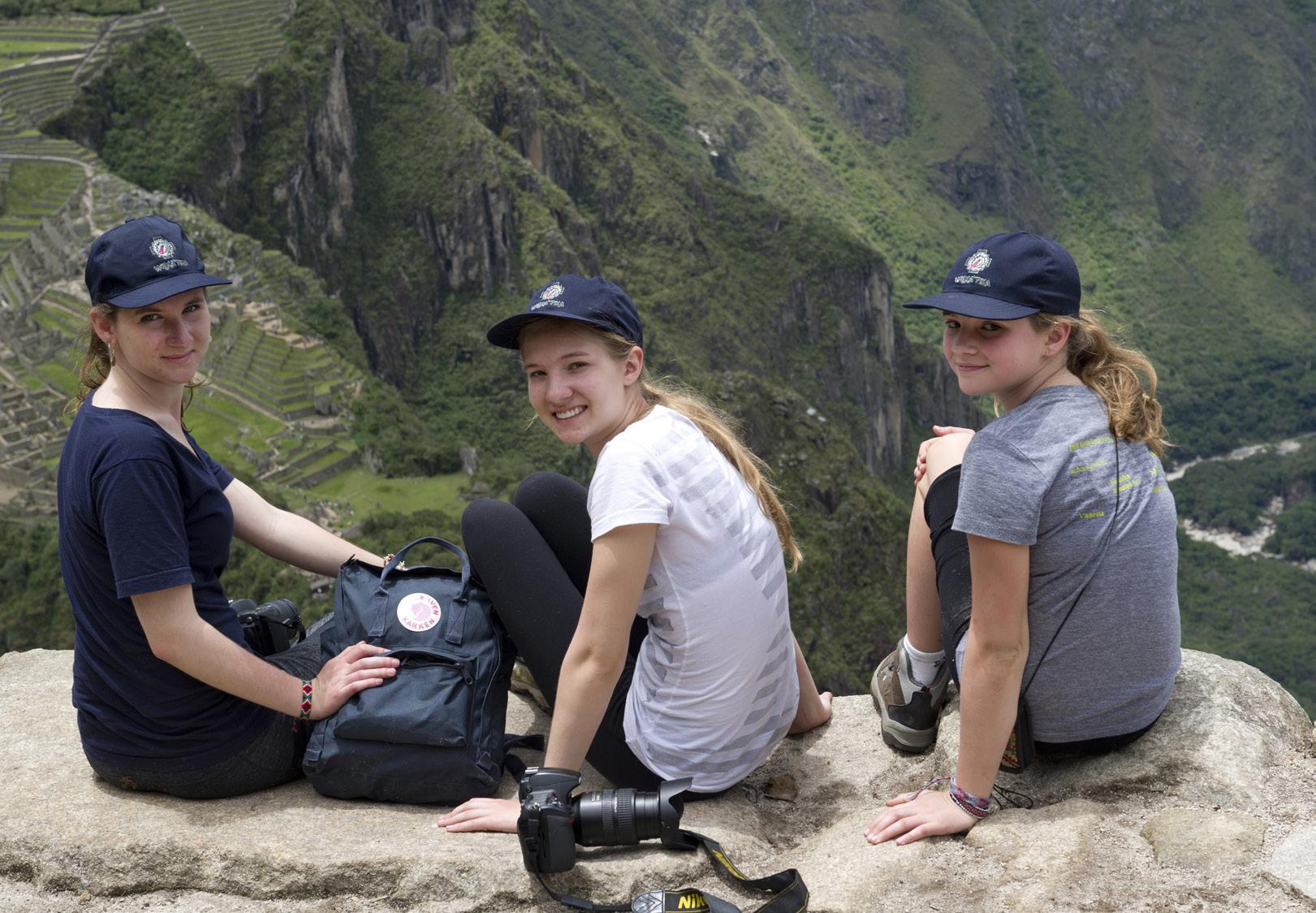
Applewild School
120 Prospect Street Fitchburg • (978) 342-6053 https://applewild.org
Bard Academy
30 Seminary Drive
Barrytown, NY • (413) 644-4400 www.simons-rock.edu
The Bement School
94 Old Main Street
Deerfield, MA • (413) 774-7061 https://bement.org
Berkshire School
245 North Undermountain Road
Sheffield, MA • 413-229-1003 www.berkshireschool.org
Cardigan Mountain School
62 Alumni Drive
Canaan, NH • 603-523-3548 www.cardigan.org
Choate Rosemary Hall
333 Christian Street
Wallingford, CT • 203-697-2239 www.choate.edu
/ 26
Eagle Hill School
242 Old Petersham Road
Hardwick, MA • 413-477-6000 www.eaglehill.school See pgs 21, 59
The Fessenden School
250 Waltham Street
West Newton • (617) 630-2300 www.fessenden.org
Hillside School
404 Robin Hill Street
Marlborough • (508) 485-2824 www.hillsideschool.net
Lexington Christian Academy 48 Bartlett Avenue
Lexington, MA • 781-862-7850
www.lca.edu See pgs 8, 55
The Newman School
247 Marlborough Street
Boston • (617) 267-4530 www.newmanboston.org See pgs 21, 54
Northfield Mount Hermon School One Lamplighter Way
8-12 All Gender 4:1 200 / 20
5-9
Boys Only 5:1 100/230
4-9 Boys Only 7:1 140
7-12
All Gender 8:1
7-12 & PG All Gender 6:1 50/266
Mount Hermon, MA • 413-498-3227 www.nmhschool.org 9-12
Oliverian School
28 Becket Drive Pike, NH • 888-922-5565 www.oliverianschool.org
Phillips Exeter Academy
20 Main Street
Exeter, NH • 603-777-3437 www.exeter.edu
Riverview School 551 Route 6A
East Sandwich • (508) 888-0489 www.riverviewschool.org
St. Paul’s School
325 Pleasant Street
Concord, NH • 603-229-4700 www.sps.edu
Walnut Hill School for the Arts
12 Highland Street
Natick • (508) 650-5020 www.walnuthillarts.org
Wilbraham & Monson Academy
423 Main Street
Wilbraham • (413) 596-9107 www.wma.us
Independent STEM, Arts, ADHD, Dyslexia, Learning Diversity
Independent Latin, Mandarin, and Spanish
Independent Spanish, French, Mandarin
Christian Summer Programs
$67,500 (Day) - $93,900 (Boarding) FA Available NEASC, NAIS, IB
$39,100$89,400 FA Available AISNE, NAIS, SBSA, TABS
$58,900$76,600 FA Available NAIS, TABS, AISNE
$62,750$67,250 FA Available ACSI, CSI, NAIS, NEASC
Independent French, Spanish Day $34,000$43,000 Boarding $68,000 FA Available AISNE, CSEE NEASC, NAIS, IB World School
/ 118
9-12 & PG
All Gender 1:1 40 / 0
9-12
Independent Spanish, Anxiety, Depression, ADHD, ASD, School Avoidance, Special Needs
$86,000$96,800 FA Available NEASC, TABS, NAIS, AISNE
All Gender 5:1 860 / 221 Independent Summer Program $69,537 FA Available NAIS, TABS
6-12 grade plus post HS
All Gender 8:1
200 Special Needs, Boarding and Day Options
9-12
Call for Info. FA Available DESE, EEC, NEASC
All Gender 5:1 535 / 0 Episcopal $71,800 FA Available
9-12, PG
All Gender 5:1
250
6-12, PG
All Gender 6:1
Non Denominational French, Spanish, ESL $62,150$79,960 FA Available NAIS, AISNE, TABS
400 Independent Spanish, French, Latin, Chinese
$47,000$78,000 FA Available NEASC, ACCIS, NAIS, NEASC, NACAC, NEACAC and SSATB

These local and national organizations offer information on a variety of educational options.
Association of Independent Schools in New England
781-843-8440; aisne.org
Provides services to members, including Massachusetts private schools, promotes educational leadership and offers an online directory of member schools.
Massachusetts Department of Education Information Services
doe.mass.edu/infoservices
Provides profiles of Massachusetts public school districts, and data on enrollment, dropout rates and plans of high school graduates.
Massachusetts Home Learning Association mhla.org
The oldest statewide home school organization in Massachusetts is a support, information and
advocacy group. Website offers resources on homeschooling, support groups and more.
Montessori Schools of Massachusetts
508-789-6546; msmresources.org
Explains the Montessori education method and offers a list of Massachusetts Montessori schools.
National Association of Independent Schools 202-973-9700; nais.org
Provides a database of member schools plus tips for choosing and applying to a school, obtaining financial aid and more.
National Catholic Educational Association 800-711-6232; ncea.org
Information on a private, Catholic education from educators and institutions serving students in elementary and secondary schools, colleges and universities.
Advocates for Autism of Massachusetts
781-891-6270
https://autismalliance.org/resources/afamadvocates-autism-massachusetts
Public advocacy organization offering resources regarding autism spectrum disorder. Click “links” for support centers in your area.
The Arc of Massachusetts
781-891-6270
www.thearcofmass.org
The Arc of Massachusetts provides education and systems advocacy to consumers, families, human services organizations, the public, legislators, other public officials, and the executive branch.
Association for Autism and Neurodiversity
617-393-3824
https://aane.org
The Association for Autism and Neurodiversity works with individuals, families, and professionals to help people with Autism build meaningful, connected lives.
Autism Services Association, Inc. (ASA)
781-237-0272
www.autismservicesassociation.org
Autism Services Association (ASA) provides community employment services, supported employment, Day Habilitation Program, and other clinical supports to young adults and adults with autism and other challenging developmental disabilities.
Federation for Children with Special Needs
617-236-7210; 800-331-0688 (in Mass.)
www.fcsn.org
Advocacy, resources and information for parents and professionals.
Learning Disabilities Worldwide 978-897-5399
www.ldworldwide.org
This professional organization (for researchers, educators, clinicians and others) has a “parents” section on its website with current articles.
MAAPS: Massachusetts Association of Approved Special Education Schools
781-245-1220
www.maaps.org
MAAPS represents private education schools serving approximately 6,800 children with special needs from Massachusetts and other states and countries. MAAPS’ mission is to represent private special education schools in their goal of providing the highest quality education to students with special needs.
Massachusetts Branch of The International Dyslexia Association
617-650-0011
https://ma.dyslexiaida.org
Information and links to resources, such as recommended reading for parents and kids, as well as professional development workshops.
Massachusetts Commission for the Deaf and Hard of Hearing
617-740-1600
www.mass.gov/mcdhh
Services for deaf and hard of hearing, including interpreting, case management and technology.
Massachusetts Department of Elementary & Secondary Education 781-338-3000
www.doe.mass.edu
The State’s education website offers information on special education, standardized testing, public schools and related topics.
Here is a list of the most used acronyms of accrediting, affiliation, and association bodies.
ACCIS —Assoc. of College Counselors in Independent Schools, www.accisnet.org
ACSI — Assoc. of Christian Schools International, www.acsi.org
AISNE — Assoc. of Independent Schools in New England, aisne.org
AISAP — Assoc. of Independent School Admission Professionals, www.aisap.org
AMI — American Montessori International, www.montessori-ami.org
AMS — American Montessori Society, www.amshq.org
AWSNA — Assoc. of Waldorf Schools of North America, www.waldorfeducation.org
CASE — Council for Advancement and Support of Education, www.case.org
CSEE — Center for Spiritual and Ethical Education, www.csee.org
CSI — Christian Schools International, csionline.org
DAS — Deutsche Auslandsschulen Intl., www.auslandsschulwesen.de
DESE — MA Department of Elementary and Secondary Education, doe.mass.edu
EEC — MA Department of Early Education and Care, www.mass.gov/orgs/department-of-earlyeducation-and-care
EMA — Enrollment Management Assoc., www.enrollment.org
IB, IBO — International Baccalaureate, www.ibo.org
ICGS — International Coalition of Girl’s Schools, girlsschools.org
ISSANNE — Independent Schools of Northern New England, aisne.org
MAGE — MA Assoc. of Gifted Education, https://massgifted.org
MAPPS — MA Assoc. of Approved Special Education Schools, www.mapps.org
MINT— German National Excellence Network of Secondary Schools, www.siemens-stiftung.org/en/projects/mint-ec/
MSM — Montessori Schools of Massachusetts, msmresources.org
NAEYC — National Assoc. for the Education of Young Children, www.naeyc.org
NAIS — National Assoc. of Independent Schools, www.nais.org
NACAC — National Assoc. for College Admission Counseling, www.nacacnet.org
NAPSEC — National Assoc. of Private Special Education, www.napsec.org
NCEA — National Catholic Educational Assoc., www.ncea.org
NACAC — National Assoc. for College Admission Counseling, www.nacacnet.org
NCASES — National Assoc. for Accreditation of Special Education Services, www.napsec.org/ncases-accreditation
NEACAC — New England Assoc. for College Admission Counseling, www.neacac.org
NEASC — New England Assoc. of Schools and Colleges, www.neasc.org
NEPSAC — New England Preparatory School Athletic Council, www.nepsac.org
NIPSA — National Independent Private Schools Assoc., www.nipsa.org
SBSA — Small Boarding Schools Assoc., www.sbsaonline.org
SSATB — Enrollment Management Assoc., www.admission.org
TABS — The Assoc. of Boarding Schools, www.tabs.org

The Russian School of Mathematics is an award winning after-school math enrichment program for K-12 students.
Our math classes help children of all levels build a solid math foundation and develop critical-thinking and problem solving skills.
RSM is “among the top 10 schools in the world.” -Johns Hopkins Center for Talented Youth
